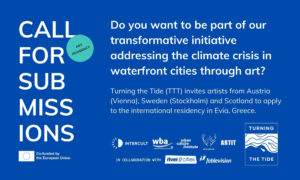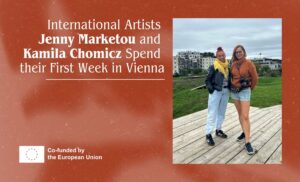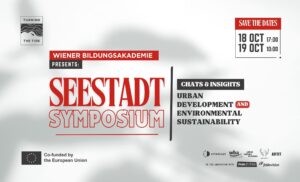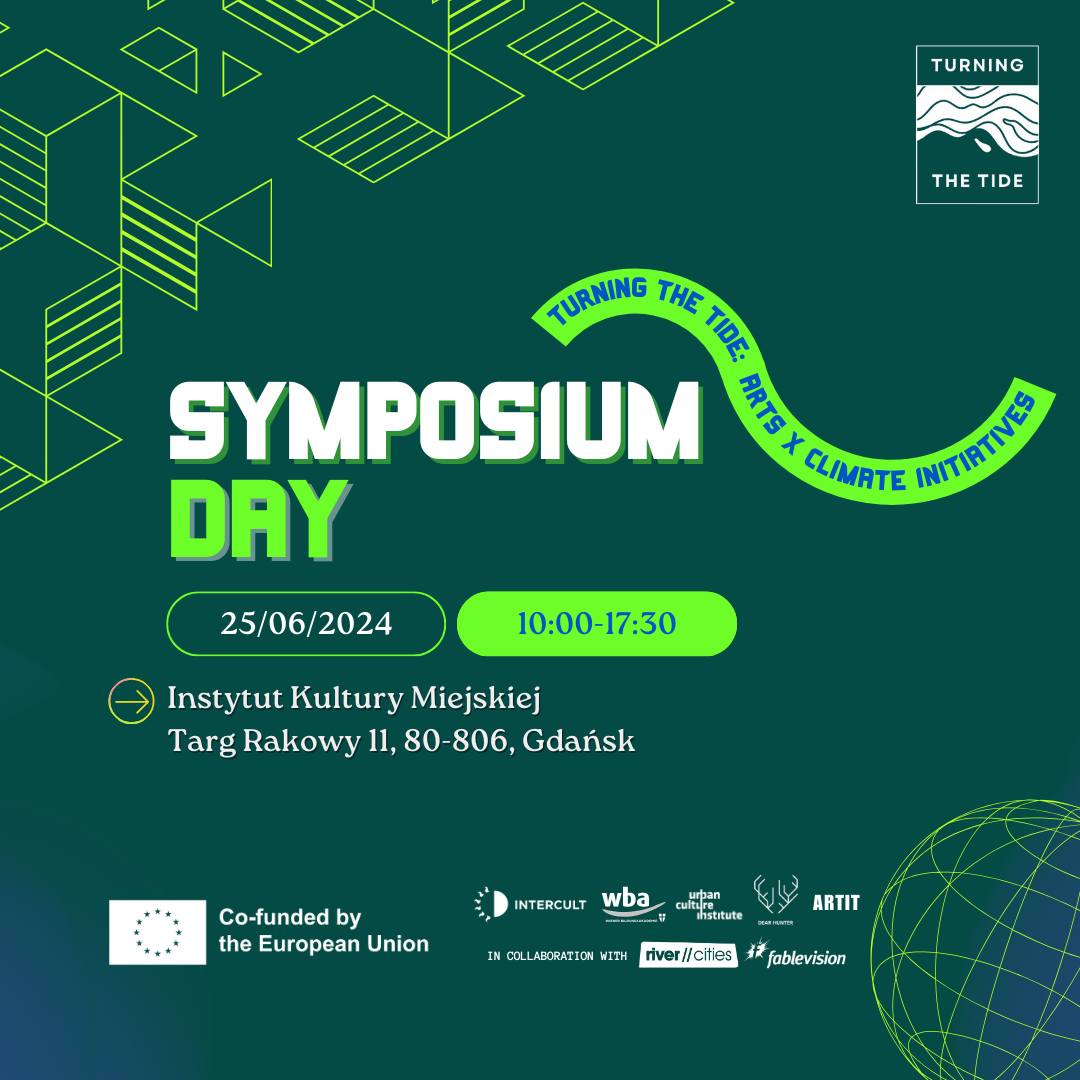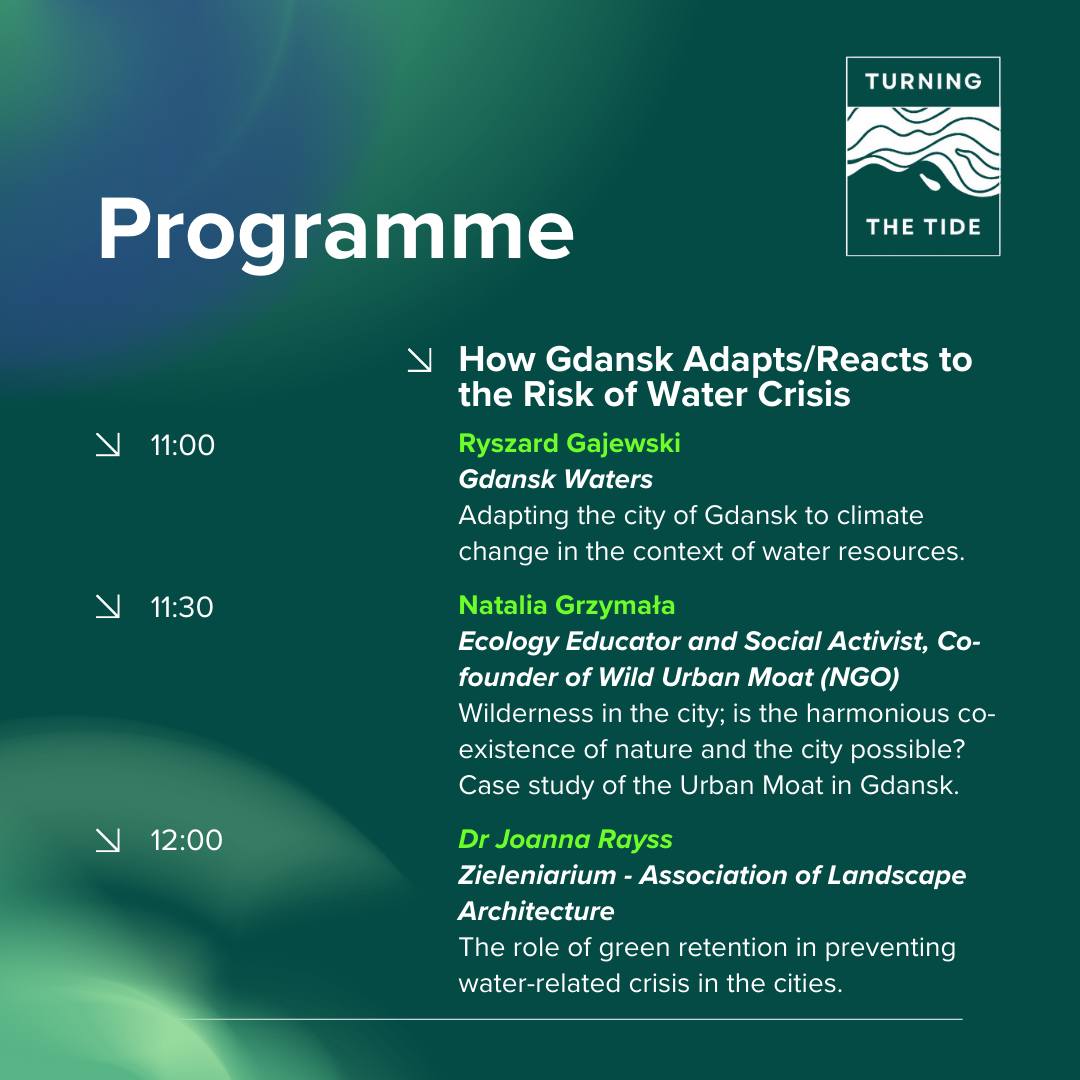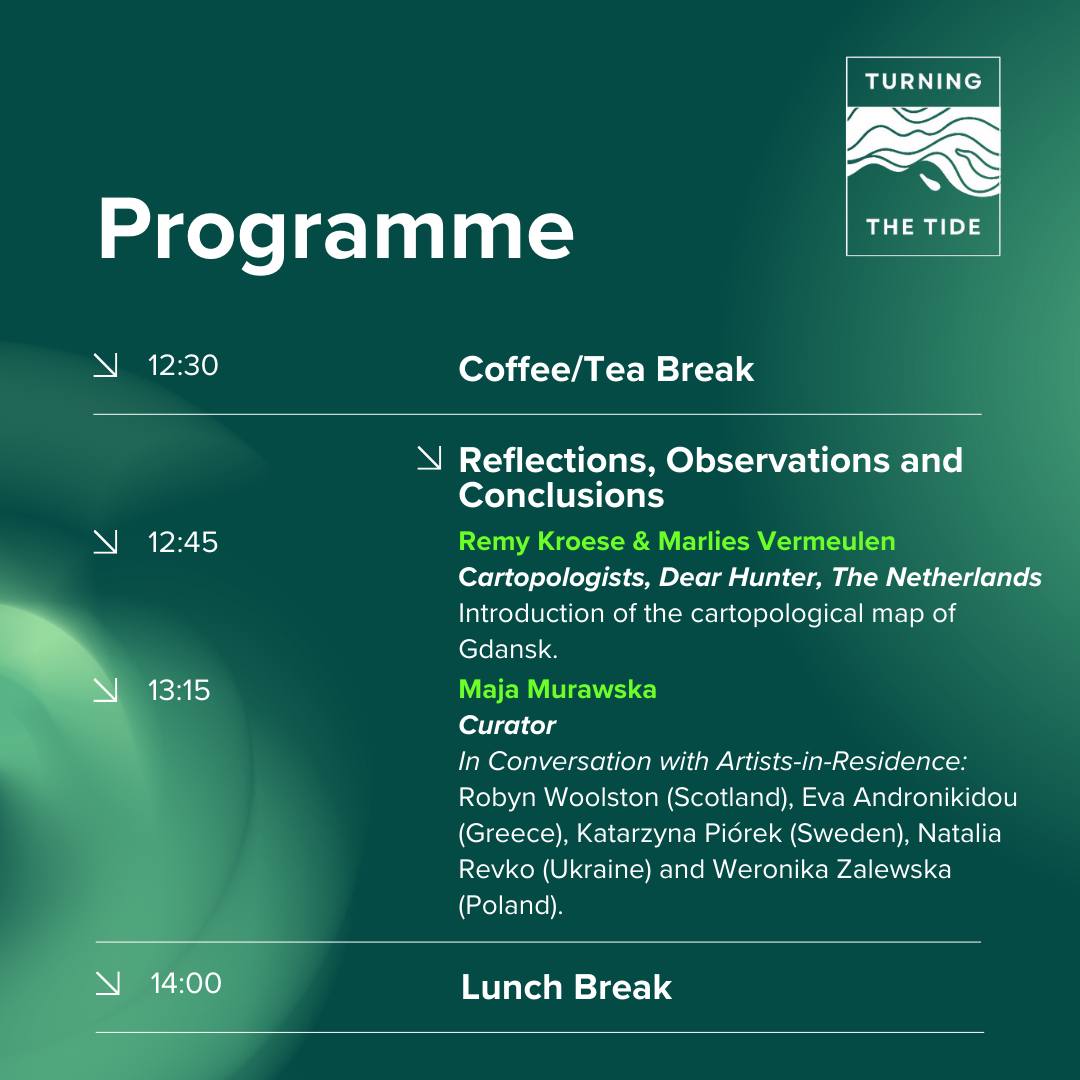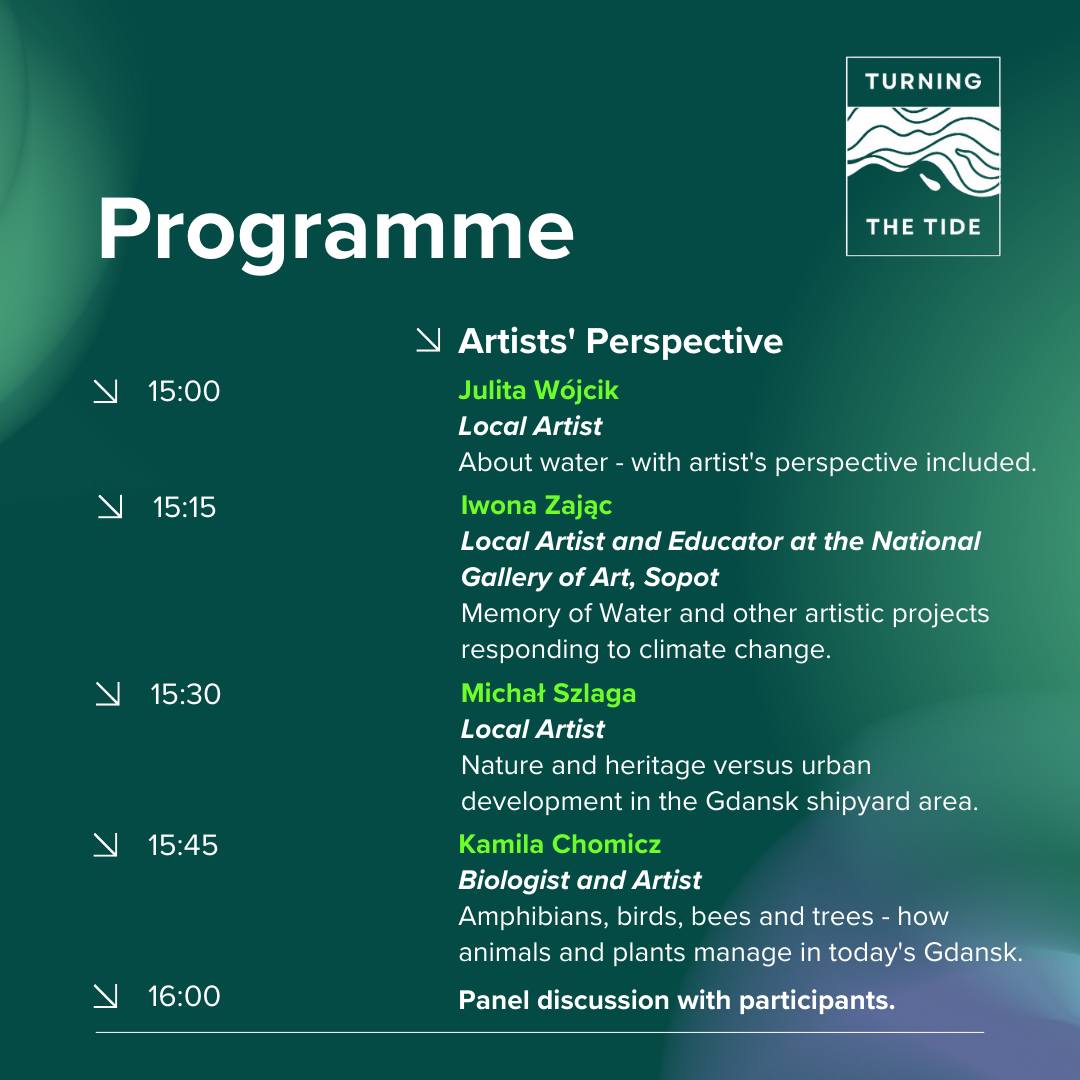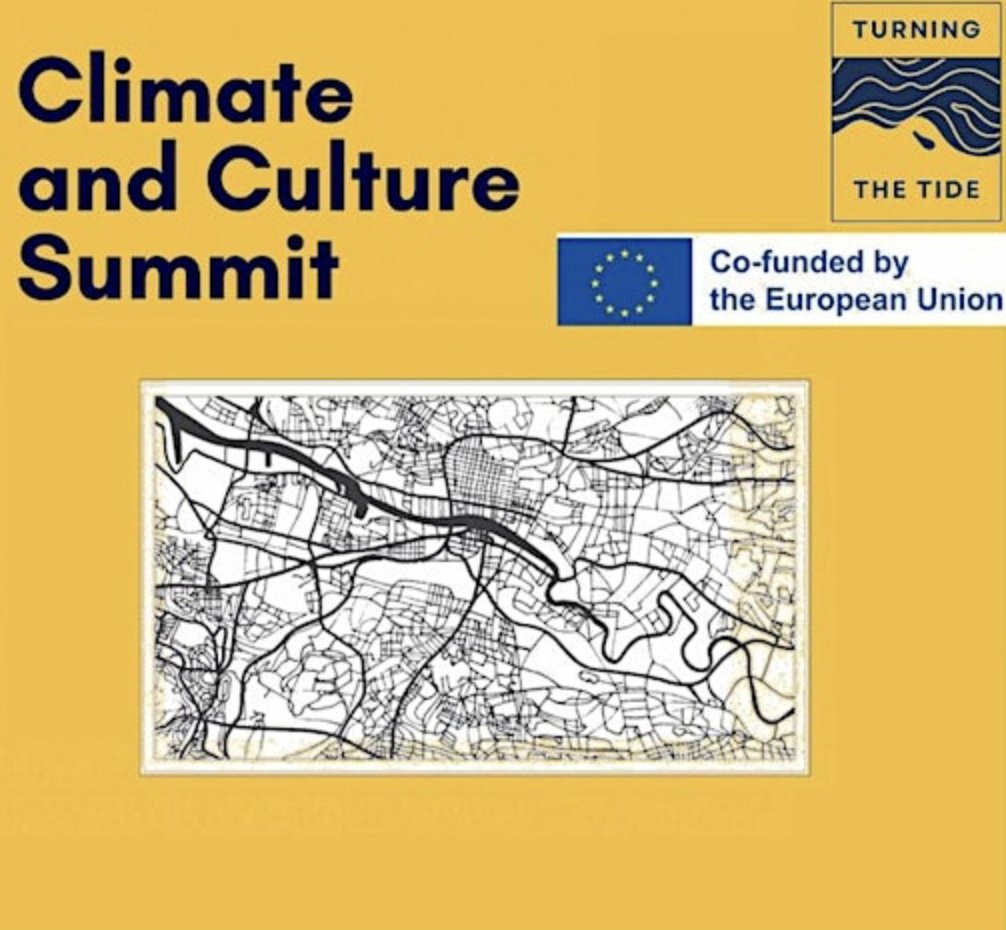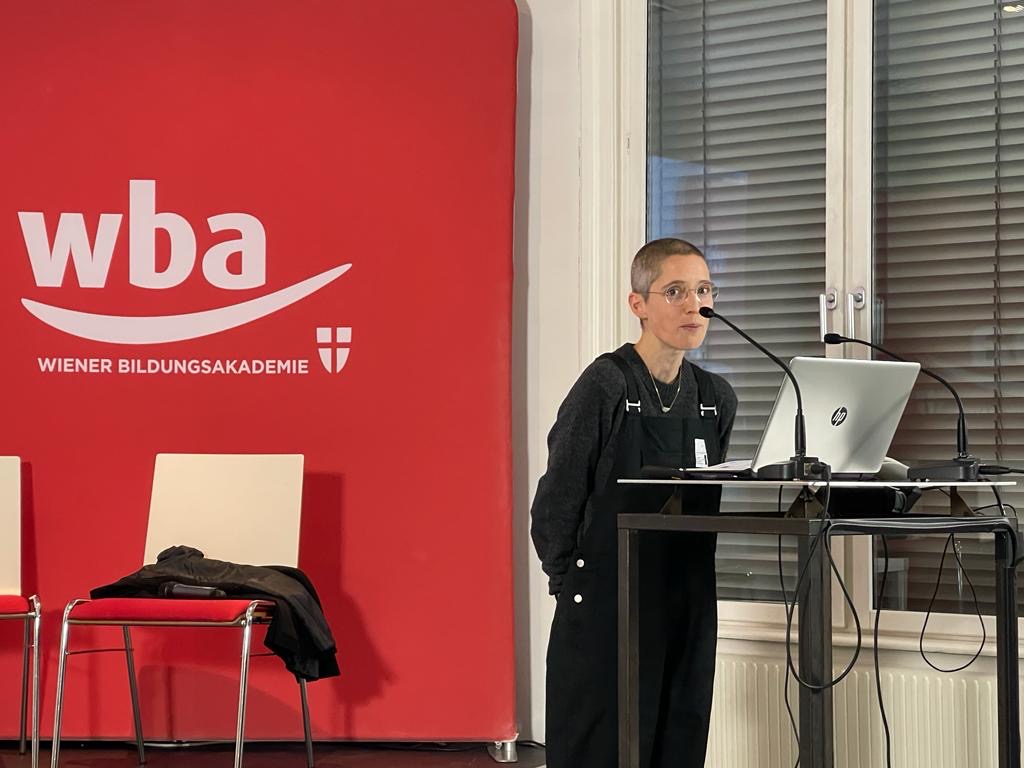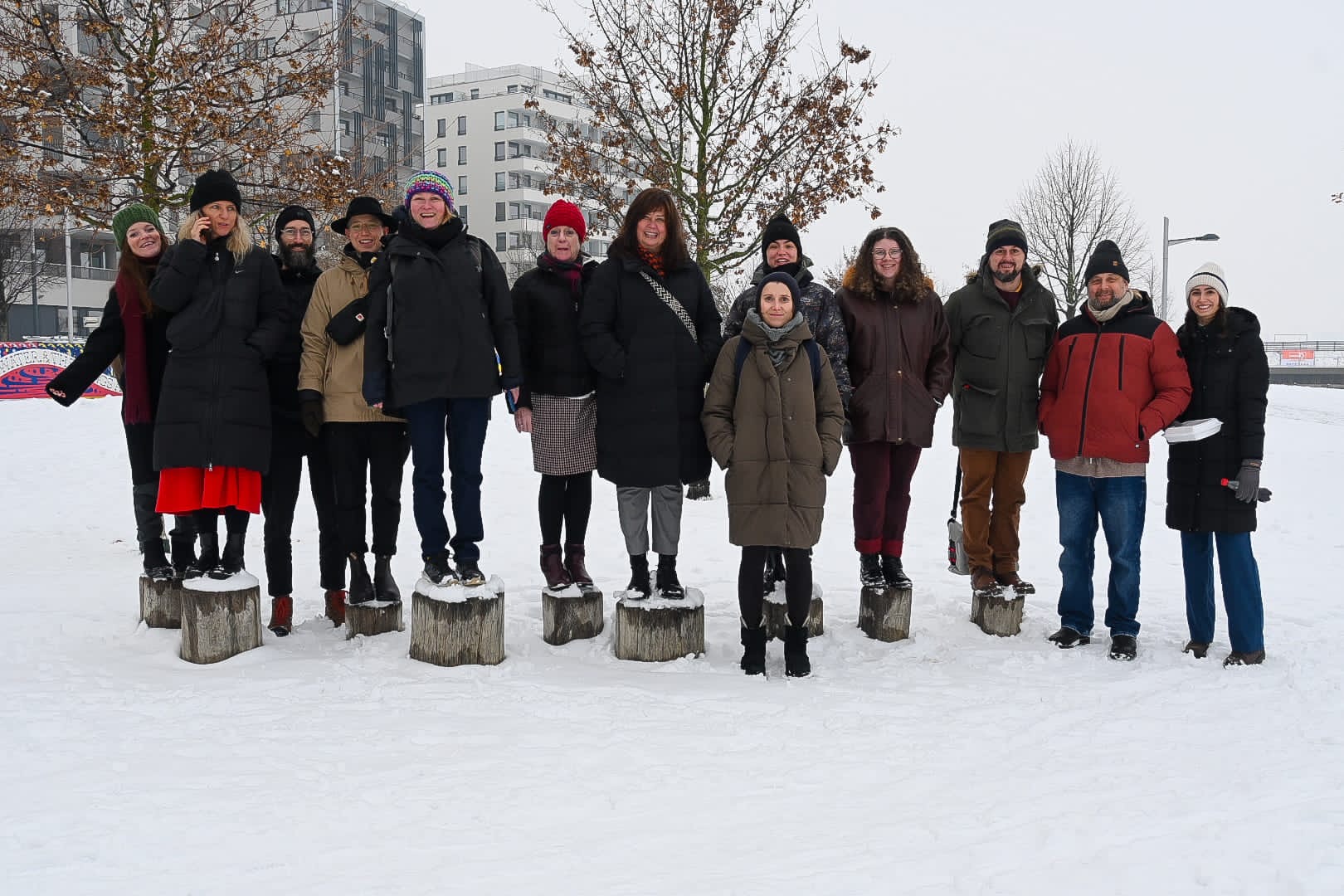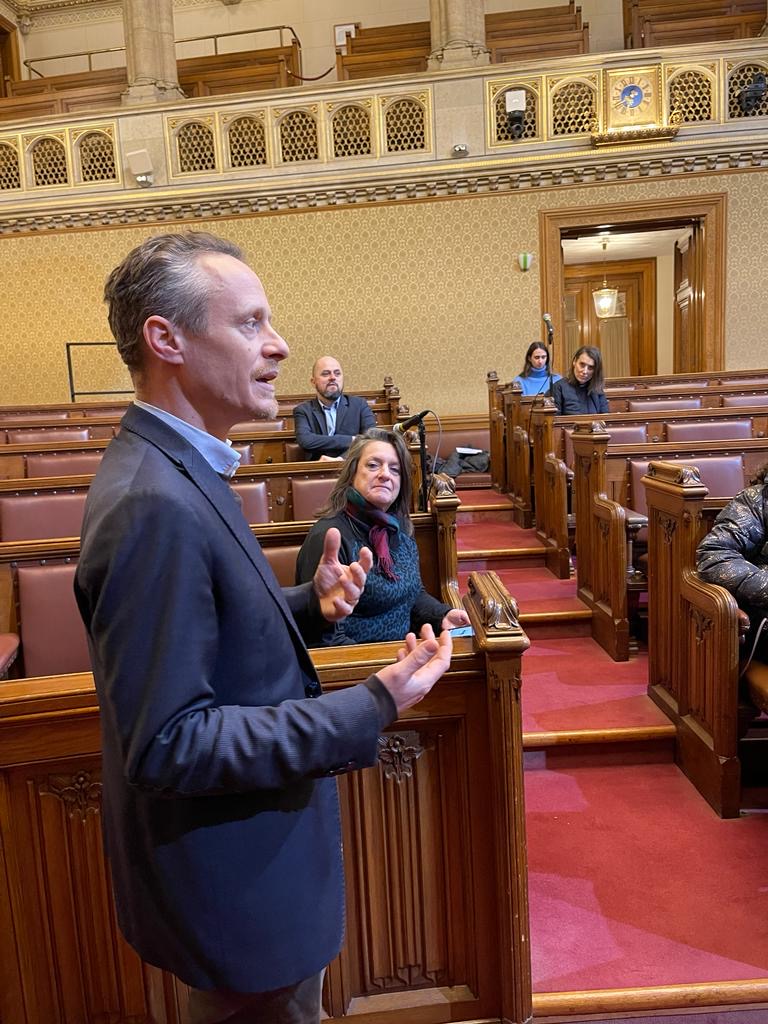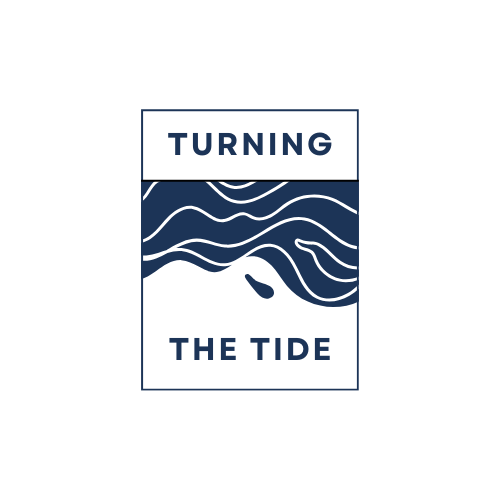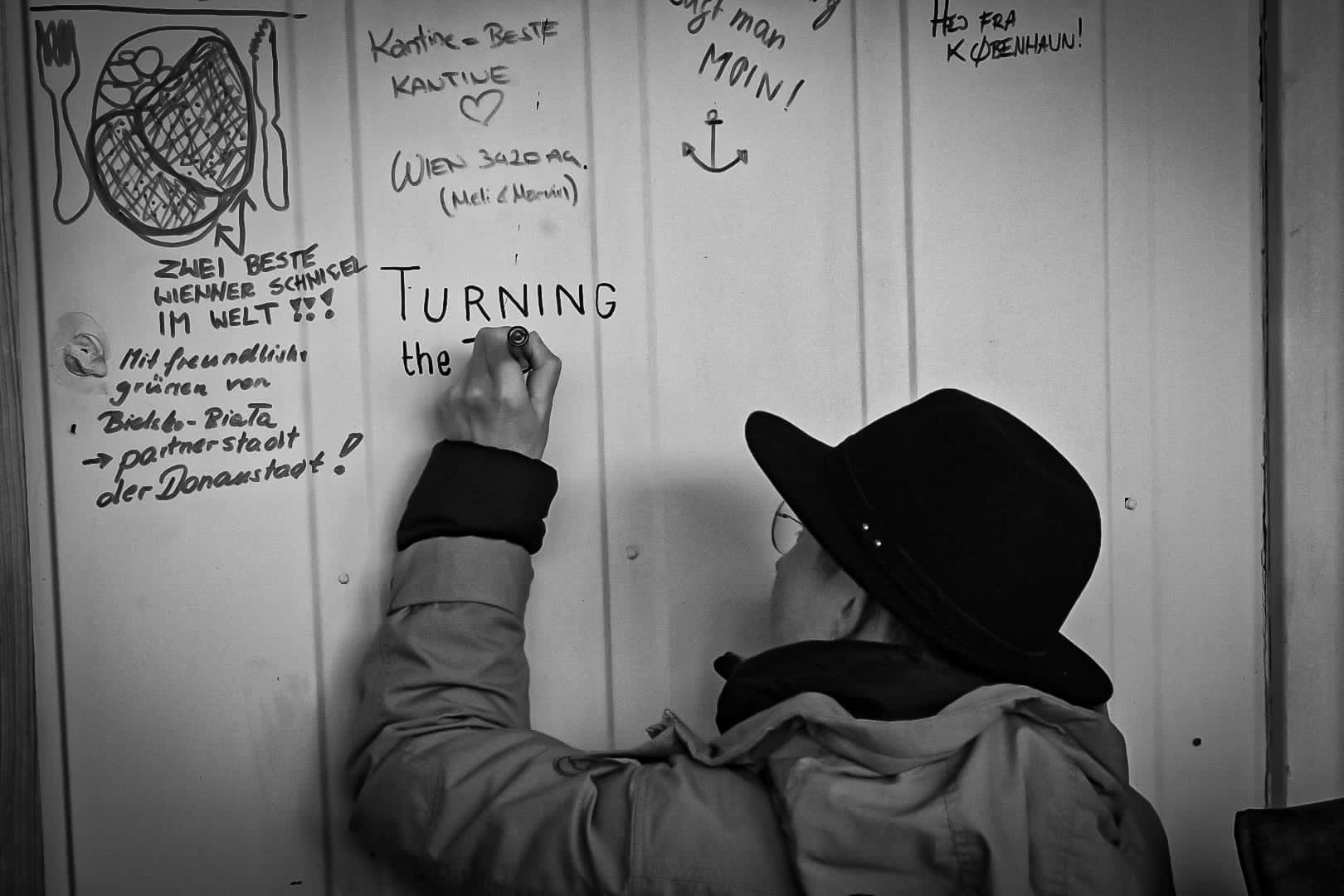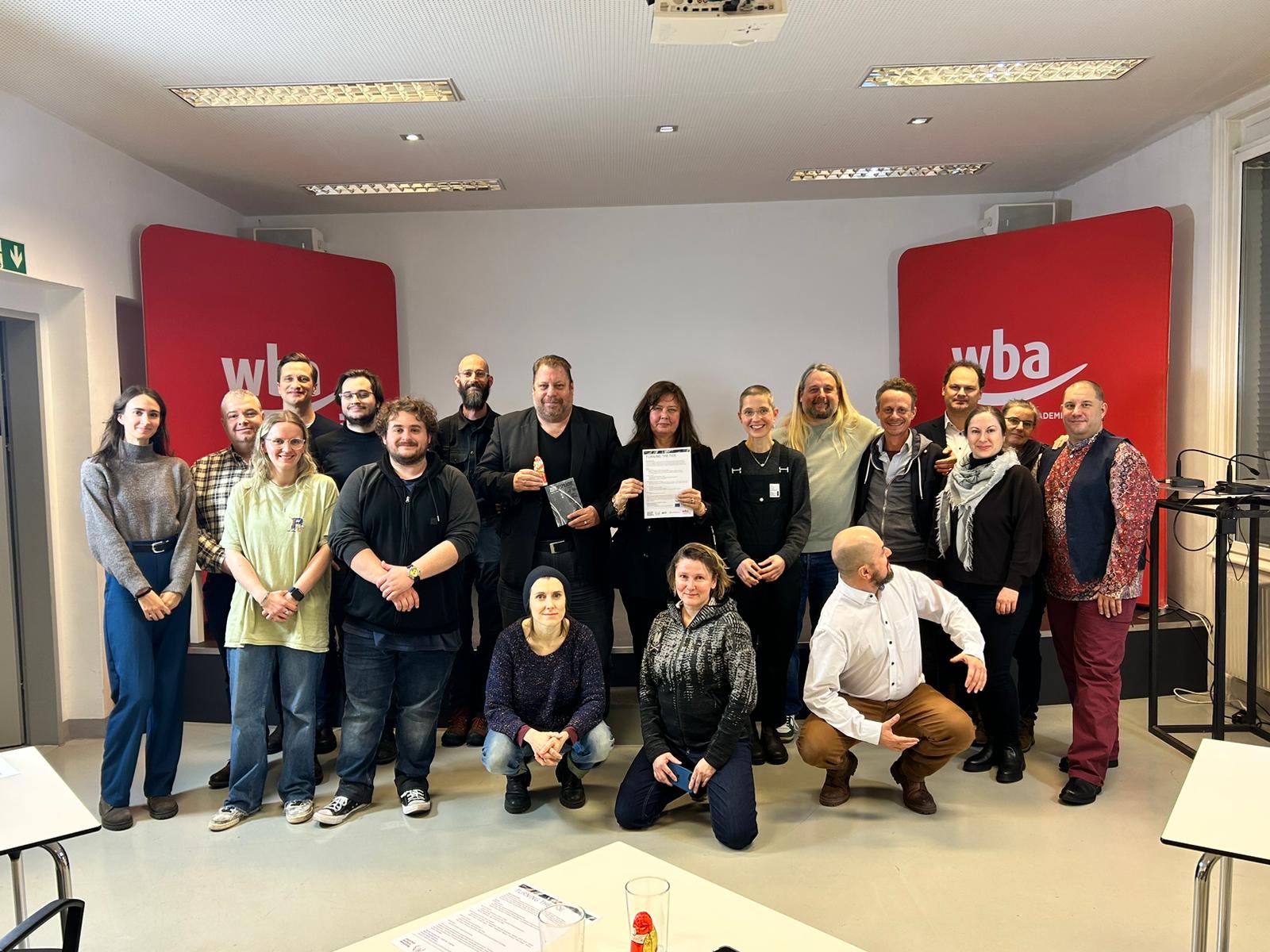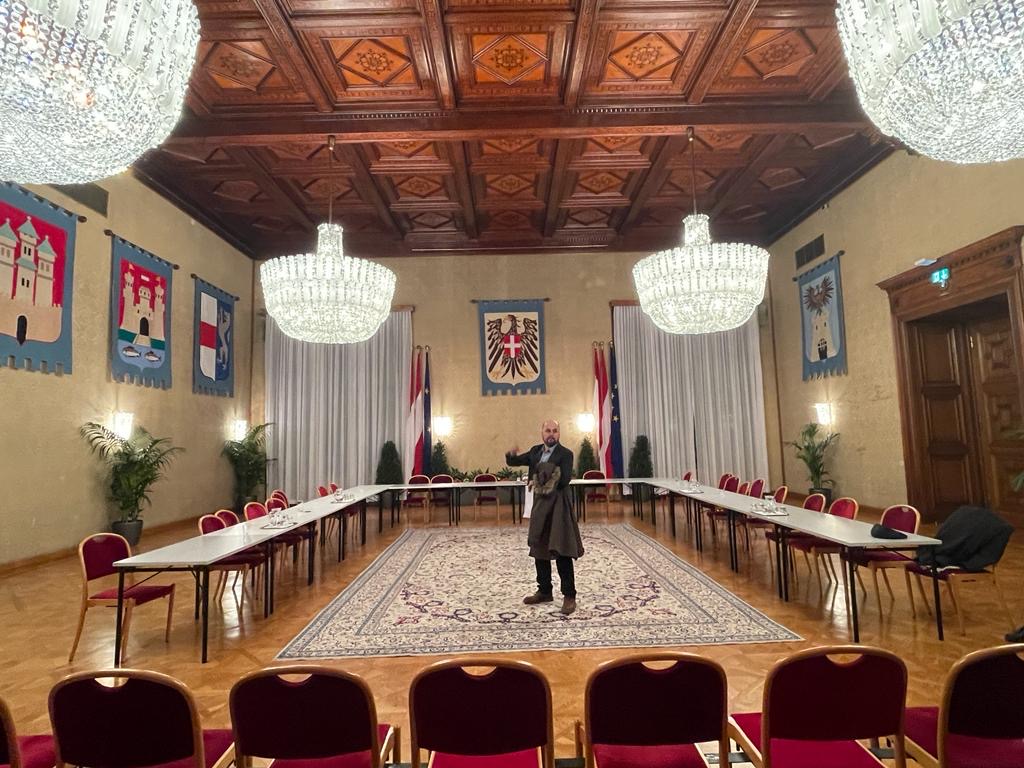International Lab & Artistic Exhibition
Chalcis, Evoia, Greece | May 14-16, 2025
From May 14–16, 2025 ARTIT had the honour of hosting the International Lab in Chalcis, Evia — as part of the wider Turning the Tide initiative, co-funded by Creative Europe. This three-day gathering brought together cultural organisations, artists, academics, and local voices from across Sweden, Austria, Poland, Greece, Scotland, and the Netherlands.
In the month leading up to the final event, a group of international and local artists took part in a month-long residency across Evia — living in the region, engaging directly with communities, and listening to their experiences. Through conversations, site visits, and shared time, they encountered firsthand the trauma and resilience that have shaped the land since the devastating wildfires of 2021 and the floods that followed. These exchanges became the foundation for the artworks and ideas presented during the public programme.
Day 1: European Perspectives on Art, Crisis, and Care
The first day of the Íchni Lab began with a series of powerful presentations and conversations that brought into focus the urgency, diversity, and shared responsibility at the heart of this project. Opened by Danai Papadimitriou and moderated by Anaïs Roussou, partners from across Europe took the floor to share how their organisations are leveraging art, education, storytelling, and public engagement to address the complex impacts of climate change, particularly in coastal and environmentally vulnerable regions.
✧ Wiener Bildungsakademie (Austria): Bernd Herger and Karin Moser shared educational strategies used with youth to foster ecological awareness and social participation.
✧ Intercult (Sweden): Iwona Preis and Elisavet Papageorgiou presented intercultural practices for engaging local communities in Sweden through socially engaged arts.
✧ Instytut Kultury Miejskiej (Poland): Natalia Cyrzan highlighted artistic approaches to cultural regeneration and placemaking, particularly in post-industrial contexts.
✧ Fablevision (Scotland): Liz Gardiner spoke about long-term work in environmental storytelling and rural community development through the arts.
✧ Dear Hunter (Netherlands): Marlies Vermeulen and Remy Kroese explained their practice of cartopological research — mapping lived experiences and systems that shape landscape and response.
Moments from Partners’ Presentations. Photo Credits: © WBA Herger/Seidl
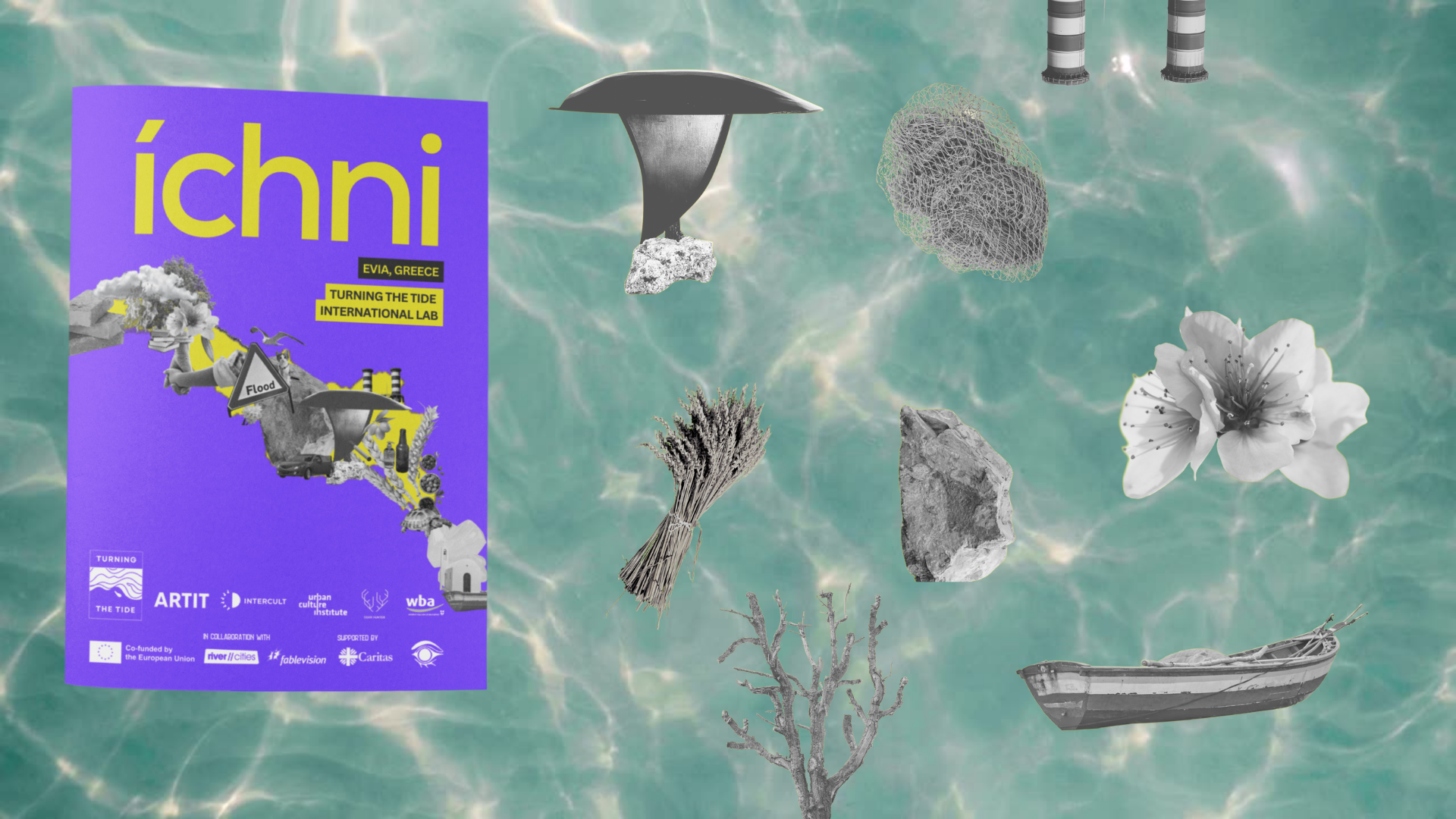
Day 1: European Perspectives on Art, Crisis, and Care
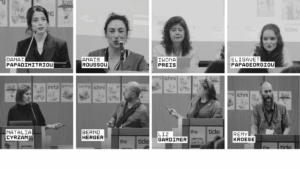
The first day of the Íchni Lab began with a series of powerful presentations and conversations that brought into focus the urgency, diversity, and shared responsibility at the heart of this project. Opened by Danai Papadimitriou and moderated by Anaïs Roussou, partners from across Europe took the floor to share how their organisations are leveraging art, education, storytelling, and public engagement to address the complex impacts of climate change, particularly in coastal and environmentally vulnerable regions.
✧ Wiener Bildungsakademie (Austria): Bernd Herger and Karin Moser shared educational strategies used with youth to foster ecological awareness and social participation.
✧ Intercult (Sweden): Iwona Preis and Elisavet Papageorgiou presented intercultural practices for engaging local communities in Sweden through socially engaged arts.
✧ Instytut Kultury Miejskiej (Poland): Natalia Cyrzan highlighted artistic approaches to cultural regeneration and placemaking, particularly in post-industrial contexts.
✧ Fablevision (Scotland): Liz Gardiner spoke about long-term work in environmental storytelling and rural community development through the arts.
✧ Dear Hunter (Netherlands): Marlies Vermeulen and Remy Kroese explained their practice of cartopological research — mapping lived experiences and systems that shape landscape and response.
Moments from Partners’ Presentations. Photo Credits: © WBA Herger/Seidl
Guest speakers expanded the conversation. Christina Leigh Geros from the Royal College of Art spoke about “knowledge infrastructures” — the ways we gather, visualise, and communicate data about climate change — and how these systems can be ethical, imaginative, and grounded in place.
Paris Papagrigoriou from Caritas Hellas offered community-based strategies for post-crisis recovery, focusing on trust-building, local wisdom, and participatory engagement. The photographer, Thodoris Nikolaou, reminded us that behind every environmental disaster there are human stories — of loss, endurance, and identity — and that photography, when used with care, can become a form of witnessing and repair.
The day surfaced key questions that would echo throughout the lab: How do we avoid extractive cultural practices? What does long-term accountability look like? And how can we build transnational solidarity through art? Rather than offering easy answers, the discussions opened space for nuance, reflection, and collective responsibility, setting the foundation for the work and conversations that followed.
Moments from our Guest Speakers. Photo Credits: © WBA Herger/Seidl
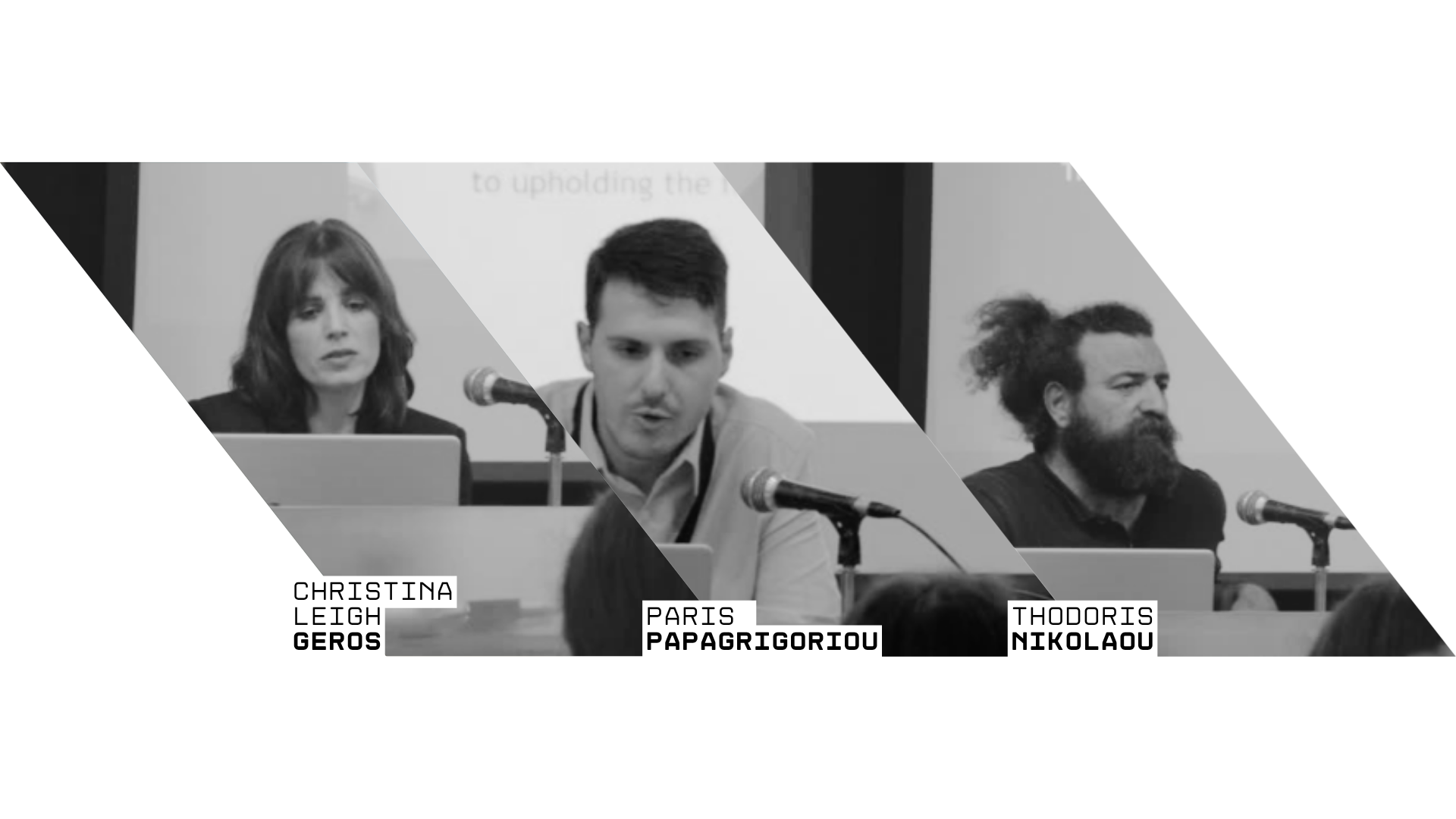
Day 2: Listening to the Landscape
The second day of the Íchni Lab was dedicated to direct engagement with the region — an immersive field visit across Northern Evia, where the aftermath of wildfires and floods is still deeply felt, both physically and emotionally. The group visited Agia Anna, a village severely affected by recent environmental disasters, where we were warmly welcomed by the team from Caritas Hellas. Together, we walked through the village, learning firsthand about the challenges of rebuilding — not just homes and infrastructure, but trust, community life, and future prospects. These were not formal presentations, but informal, human conversations — the kind that stay with you.
In Limni, participants encountered another layer of the local story — one marked by beauty, displacement, and resilience. Here, artist Angela Liosi shared a site-specific presentation of her work, which explored the emotional landscape of the town through movement, sound, and memory. The visit concluded with a stop at the Forest Museum of Prokopi, run by the local association of volunteer fire fighters, a space filled with images, tools, and testimonies which provided ecological context to the region’s vulnerability, offering insight into the relationship between deforestation, water flow, and the disasters that followed. It also reminded participants of the long-term, systemic nature of environmental fragility — and the importance of thinking beyond quick solutions.
What made the day unforgettable, however, was not part of the official agenda. As the group walked through one of the villages, a local woman, Ms. Sofia approached us unprompted and began to share her story. She spoke about the fear she felt as the fires approached, the damage the floods caused to her home and land, and how her family was still trying to recover. Her words, spoken quietly and from the heart, were a powerful reminder that collective trauma lives in people, not just policies — and that healing begins with being heard.
Angela Liosi presents her Artwork. Partners meet with Ms. Sofia in Agia Anna.
Photo Credits: © WBA Herger/Seidl
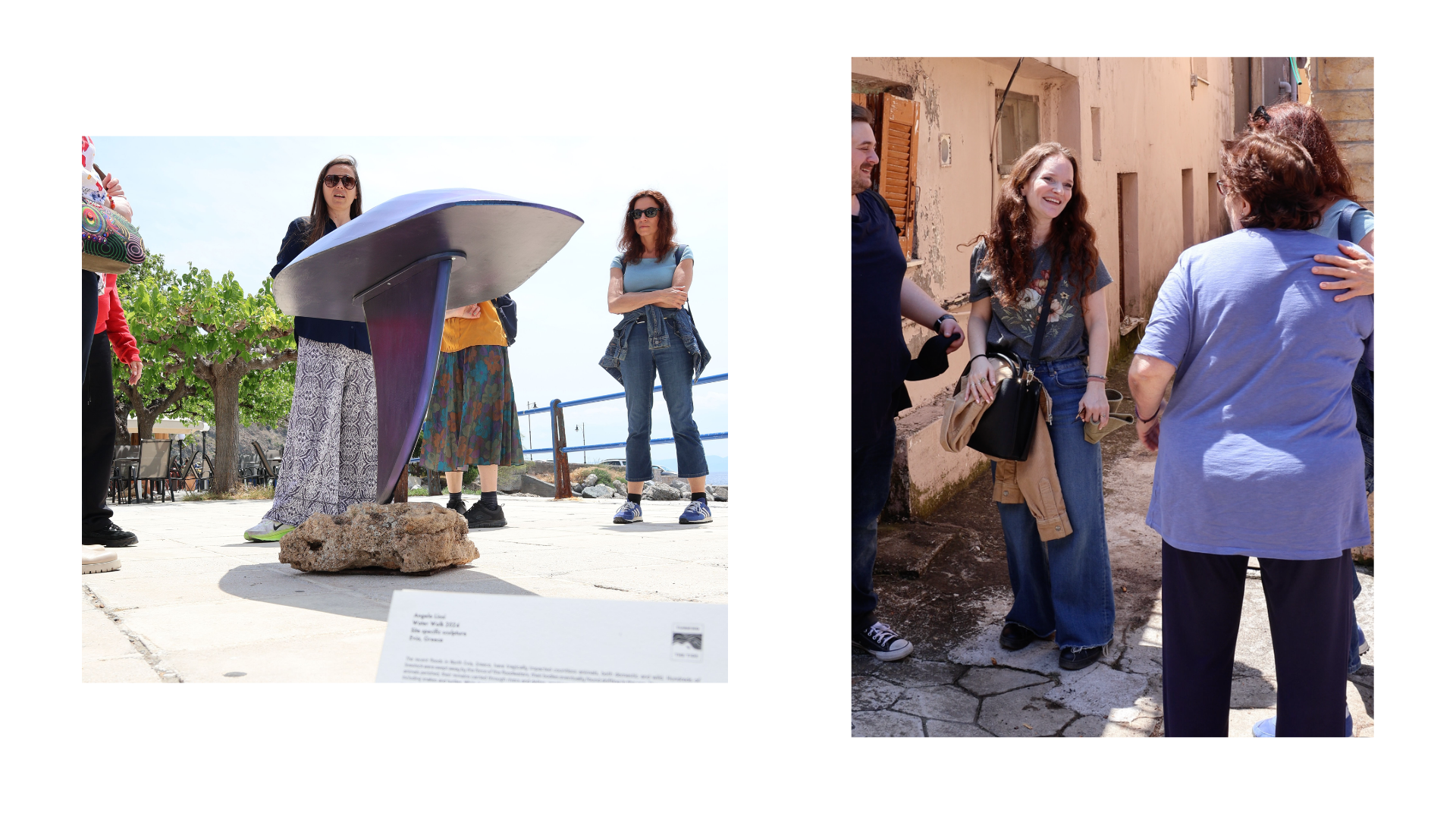
Day 3: Exhibition
The exhibition, curated by Valia Almpani, brought together seven incredible artists who created new, site-responsive works inspired by the lived and ecological realities of Evia. Each artist spent a month immersed in the regio – walking its landscapes, meeting its people, and absorbing the emotional and environmental layers of a place shaped by wildfires, floods, and long-standing challenges.

Curious to learn more? Our upcoming newsletters will take you behind the scenes of the Íchni exhibition—unpacking the stories, inspirations, and powerful works created by each of the international and local artists.
Stay tuned!
Artists Explore Resilience and Response to Climate Change
Evoia, Greece – Third Turning the Tide residency
Participatory artist duo Jo Hodges and Robbie Coleman represented Scotland on the island of Evoia, Greece for the third residency of Turning the Tide.
Working with sensitivity and respect in an area devastated by floods and fire, their work was redolent with the voices of the people they encountered, the natural smells, touch and taste of the unique landscape and the words, images and documentation shared by local residents themselves. Taking audience members on an interactive journey of provocation and oracle style inquiry we were presented with choices. Whichever route we chose, we were guided ever deeper in the world of ‘before and after’ the disaster – encountering the grief of loss; the mistrust of those in power and the proud resilience of a people determined to build back their communities. The experience was raw and visceral but the final message was one of hope and aspiration for the future.
The triumph of the 6 bowls is also in its longitudinal value as an educational tool for communities, schools and any groups wanting to gain a fuller understanding of the trauma of disasters caused by climate change.
We entrust the future of the work in Evoia to the local partner, Artit and the work in Scotland begins now with colleagues in Culture for Climate Scotland and The Stove Network to share the impact here. Images used courtesy of ©WBA Herger/Seidl.

Upcoming Event: SPRINGBOARD Local Assembly – Connecting Cultural and Climate Action in Renfrewshire
Friday, 25 April 2025 | 09:30 AM – 4:45 PM BST
P Block, University of West Scotland, Paisley, PA1 2EB
As Turning the Tide continues to explore the powerful intersection of art, climate, and community across Evia, we’re pleased to highlight an upcoming sister event in Scotland that extends these themes into the local context of Renfrewshire.
Hosted by Culture for Climate Scotland and partners, the SPRINGBOARD Local Assembly invites artists, cultural practitioners, sustainability professionals, climate workers, and community organizations to come together for a day of dialogue and collaboration. The goal: to build stronger local networks and activate creative responses to the climate emergency.
The program will feature case studies, workshops, and networking sessions aimed at sparking cross-sector partnerships and imagining new pathways for cultural climate action.
This event is free and open to all.
Organized by Culture for Climate Scotland in collaboration with Turning the Tide, Fablevision, Creative Renfrewshire, University of West Scotland, and RENCAN, the Assembly underscores our collective commitment to using creativity as a force for environmental and social transformation.
To reserve a place click on the link.

Webinar introduces Evoi Residency Artists
Today, 13th March, 2025, sees the coming together of the all the artists who will be involved in the Turning the Tide residency in Evoi, Greece.
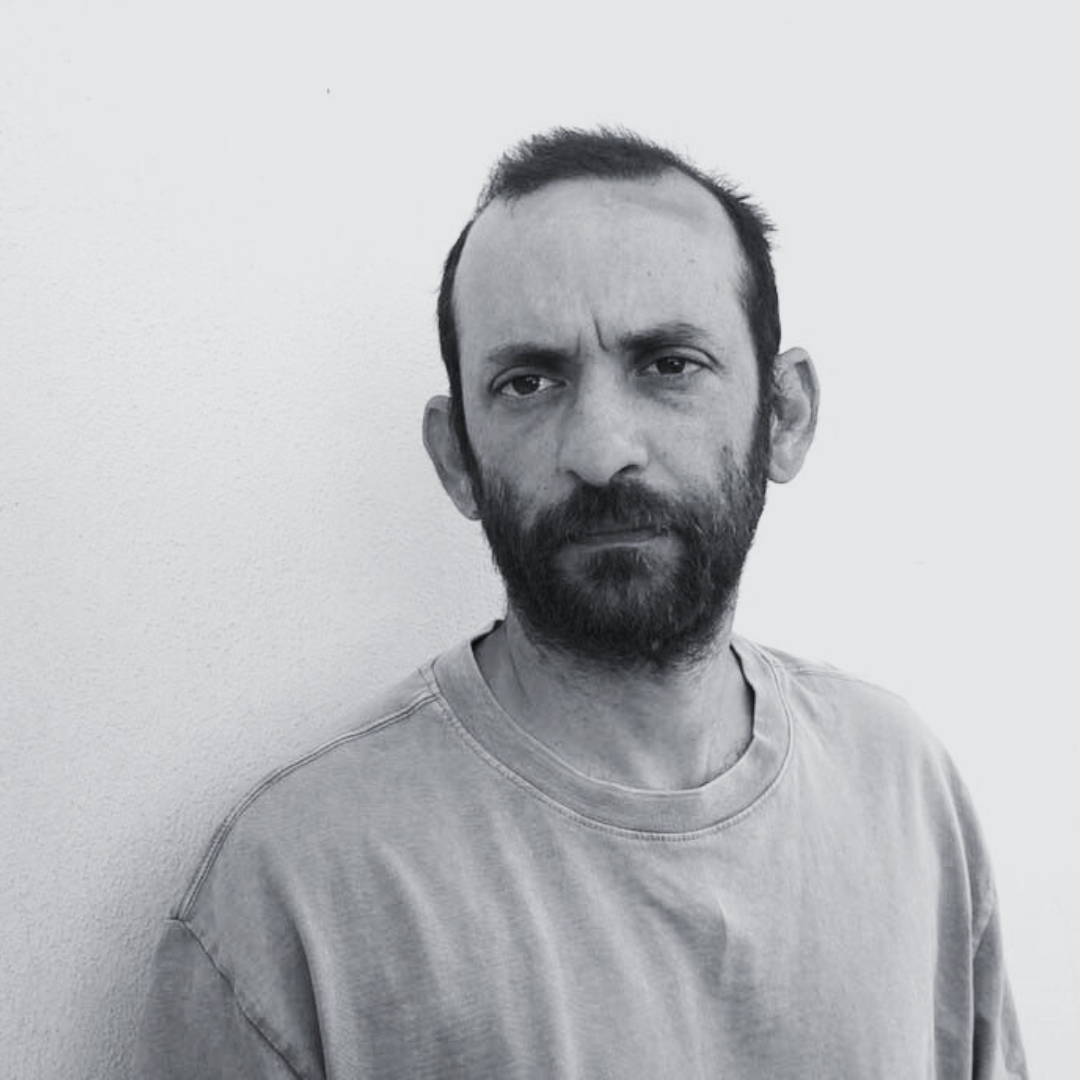
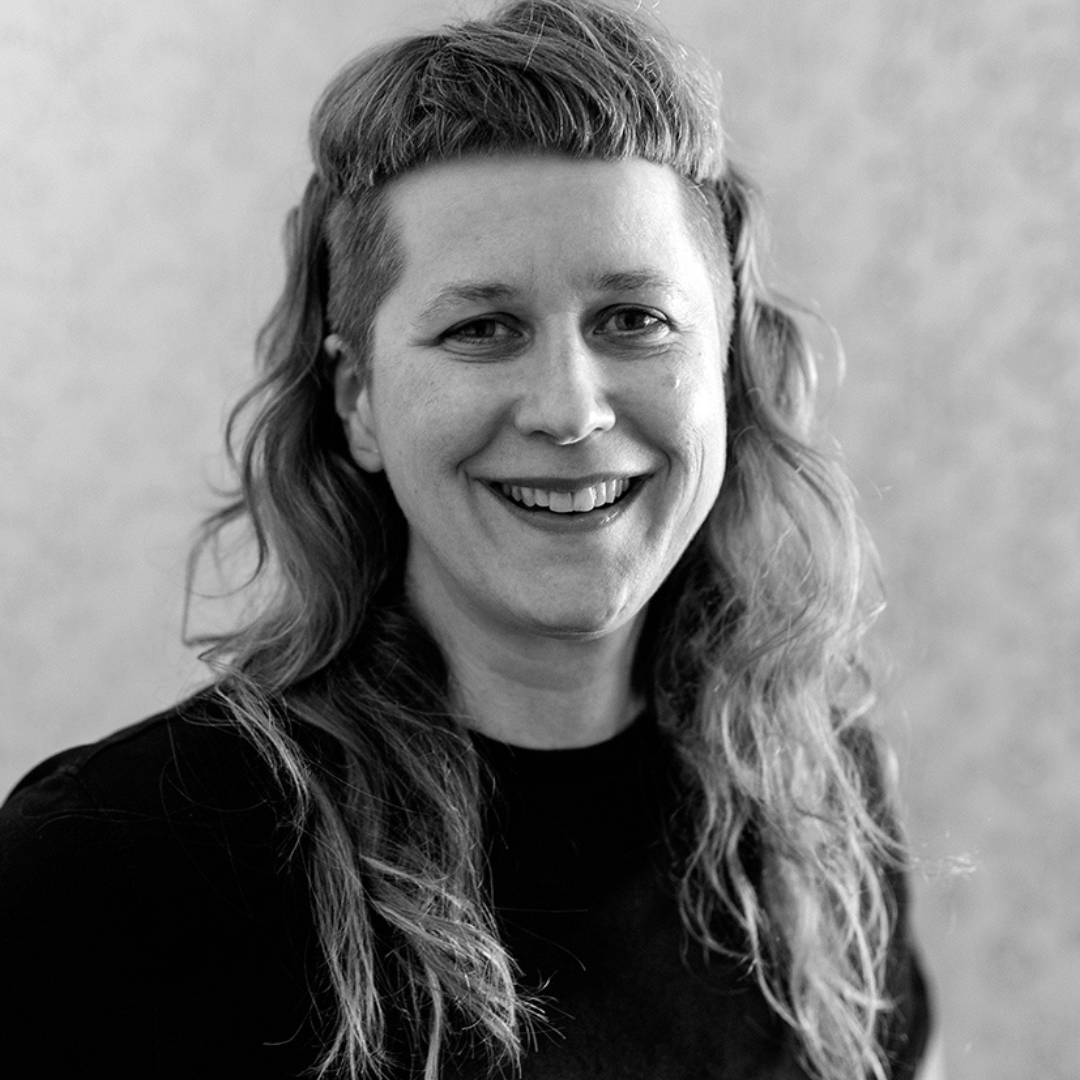
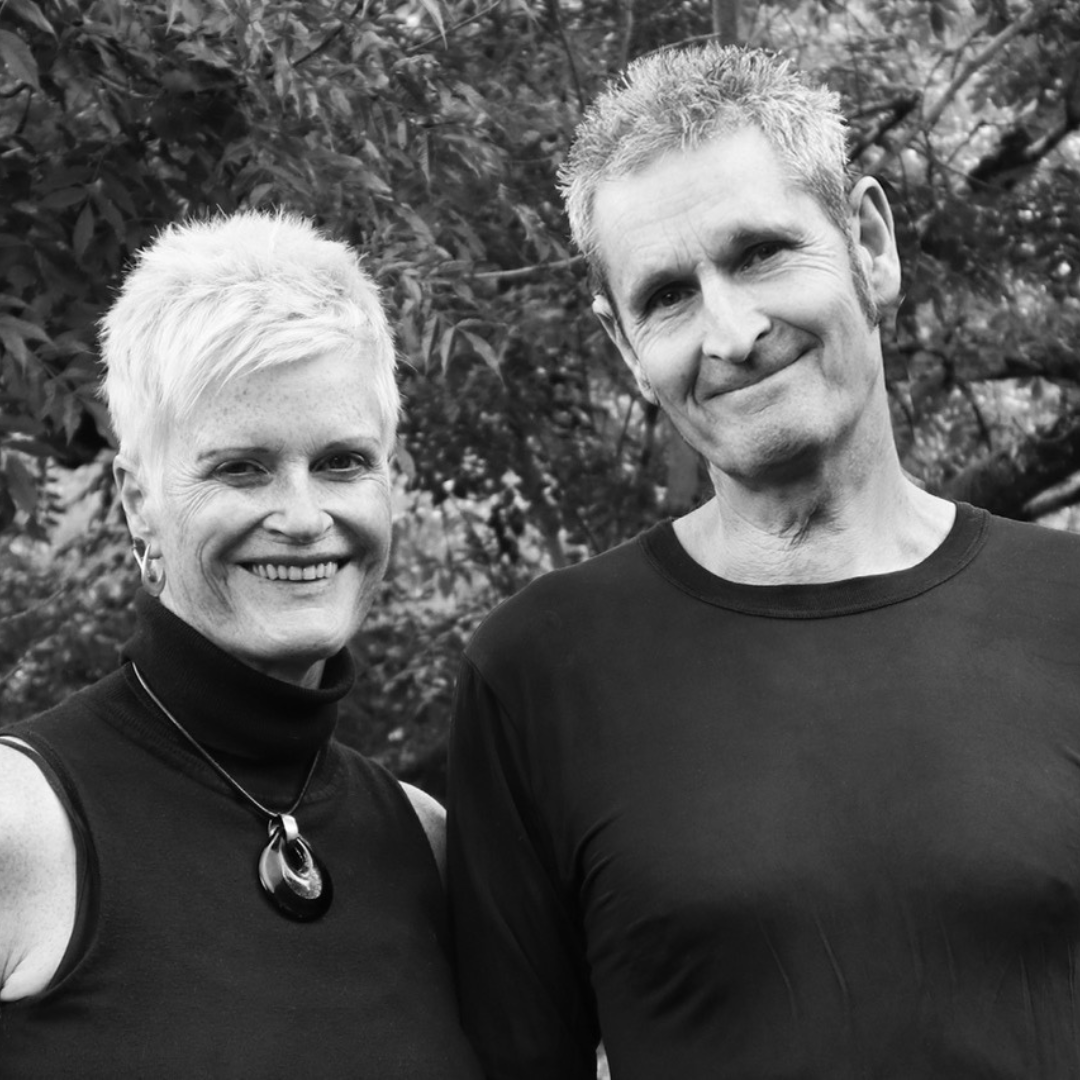
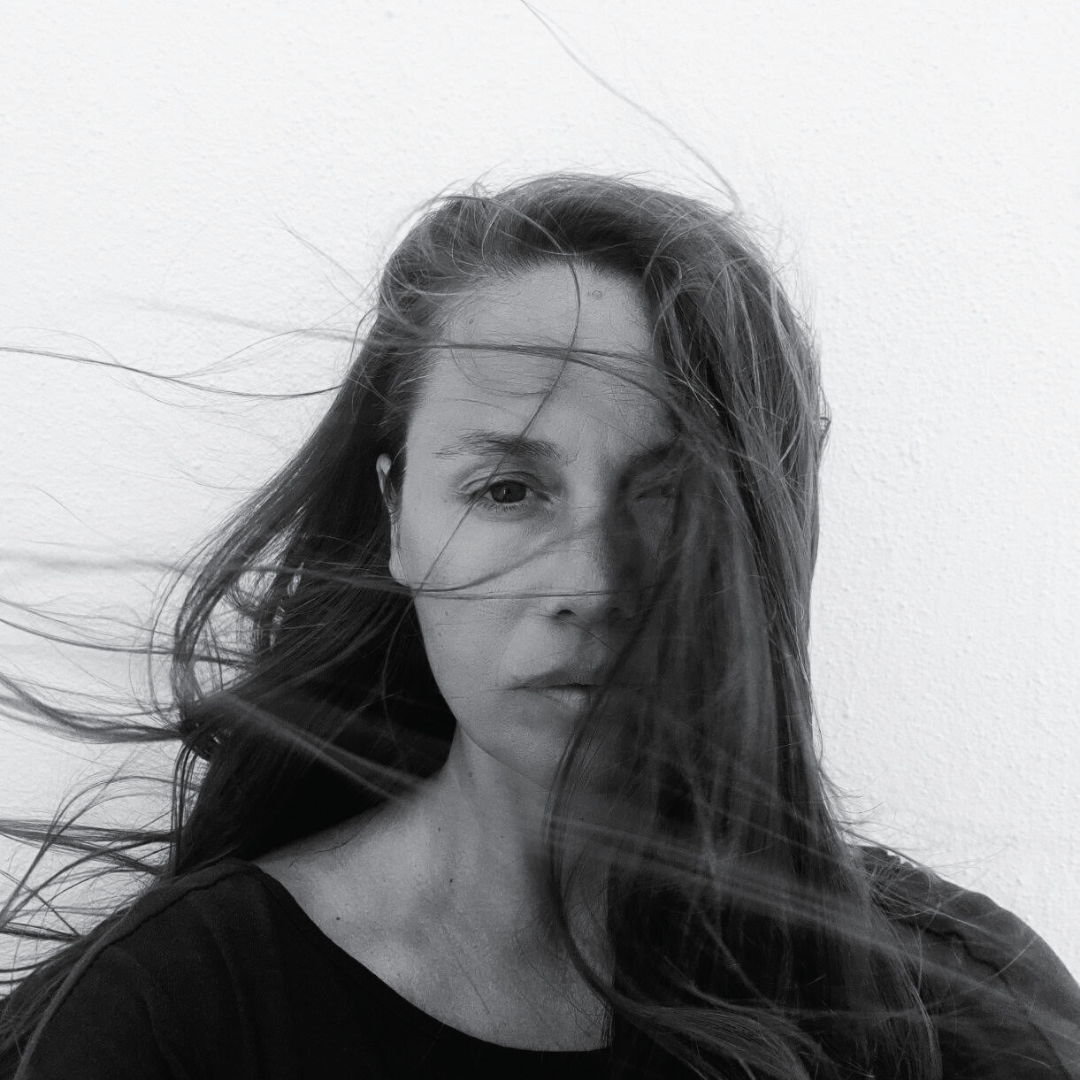
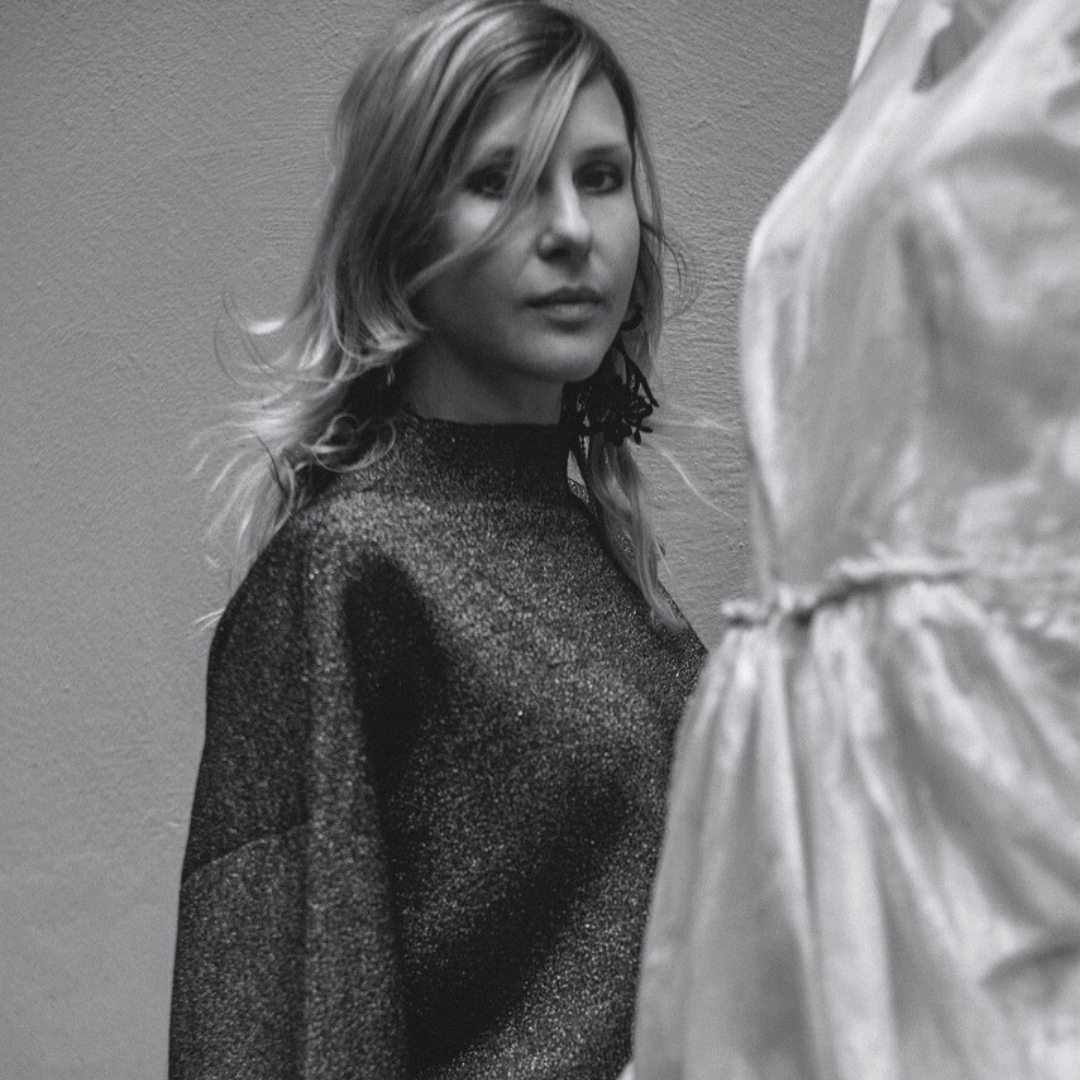
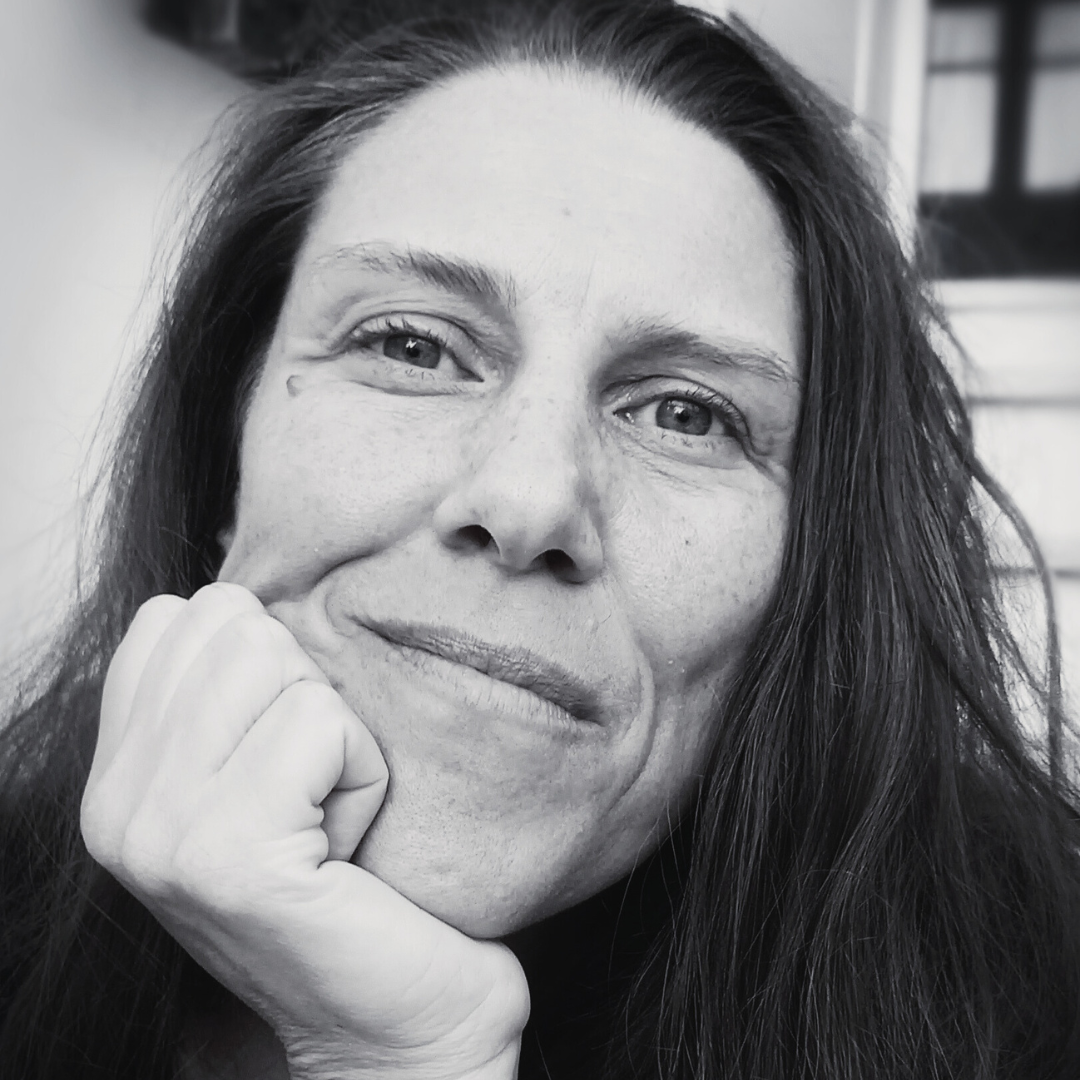
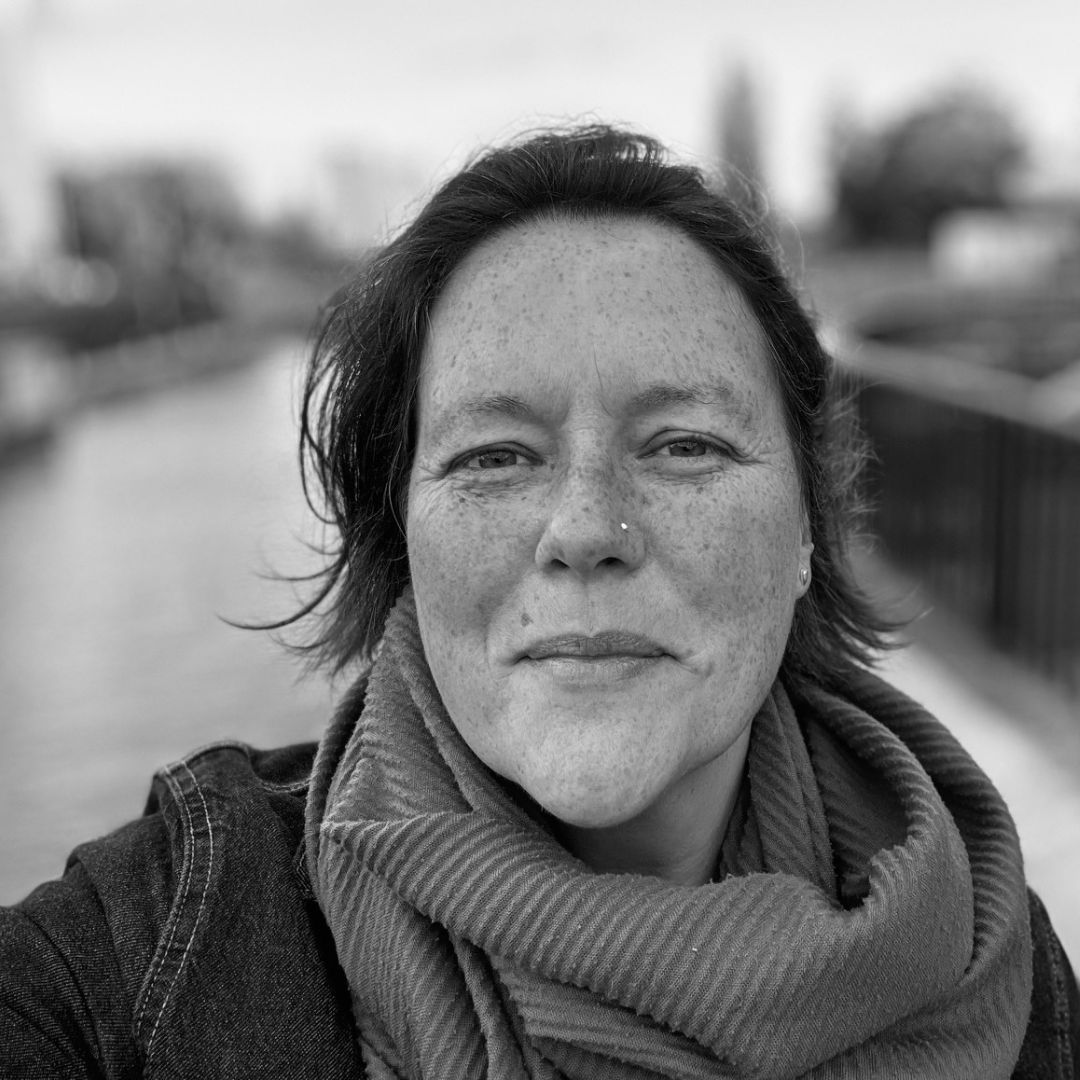
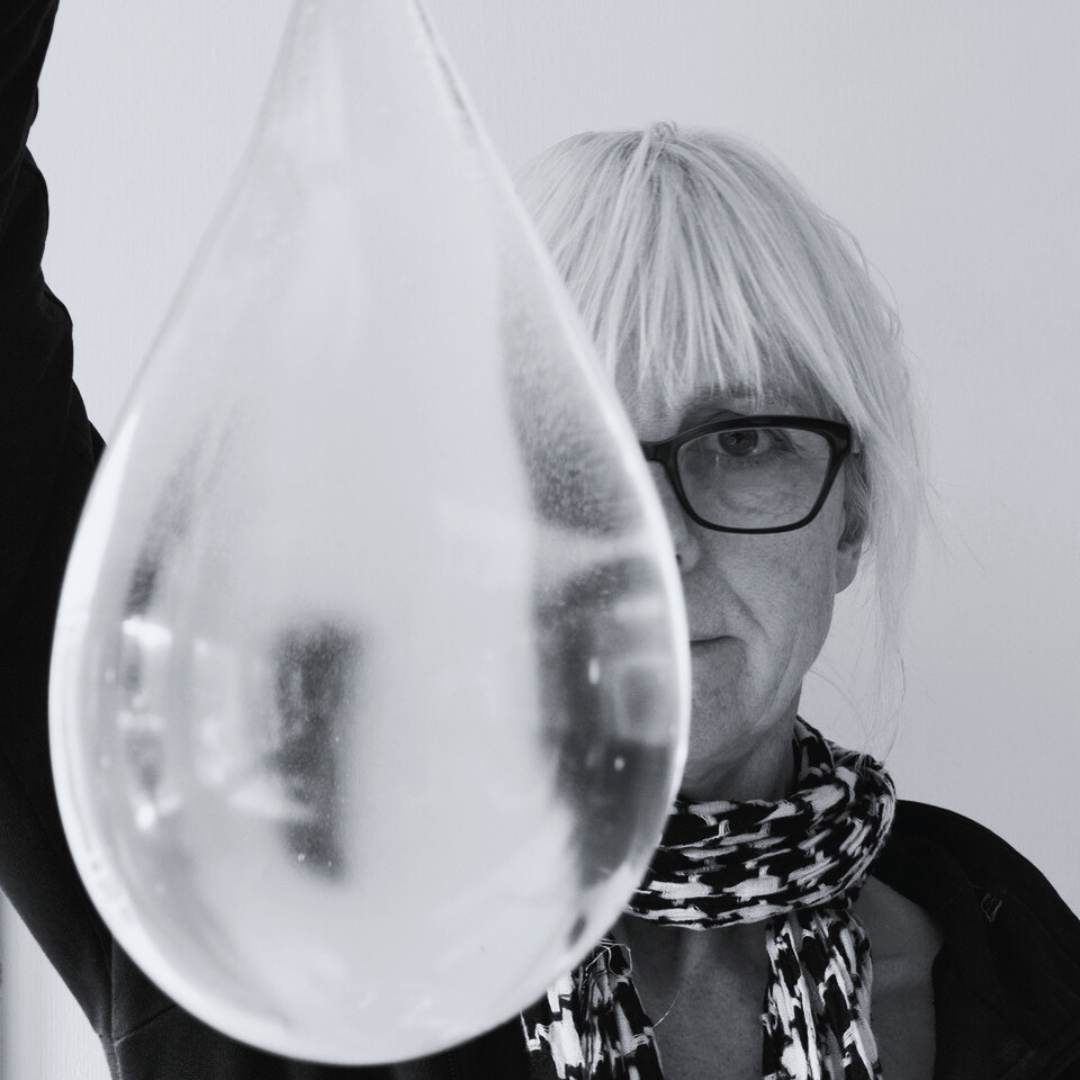
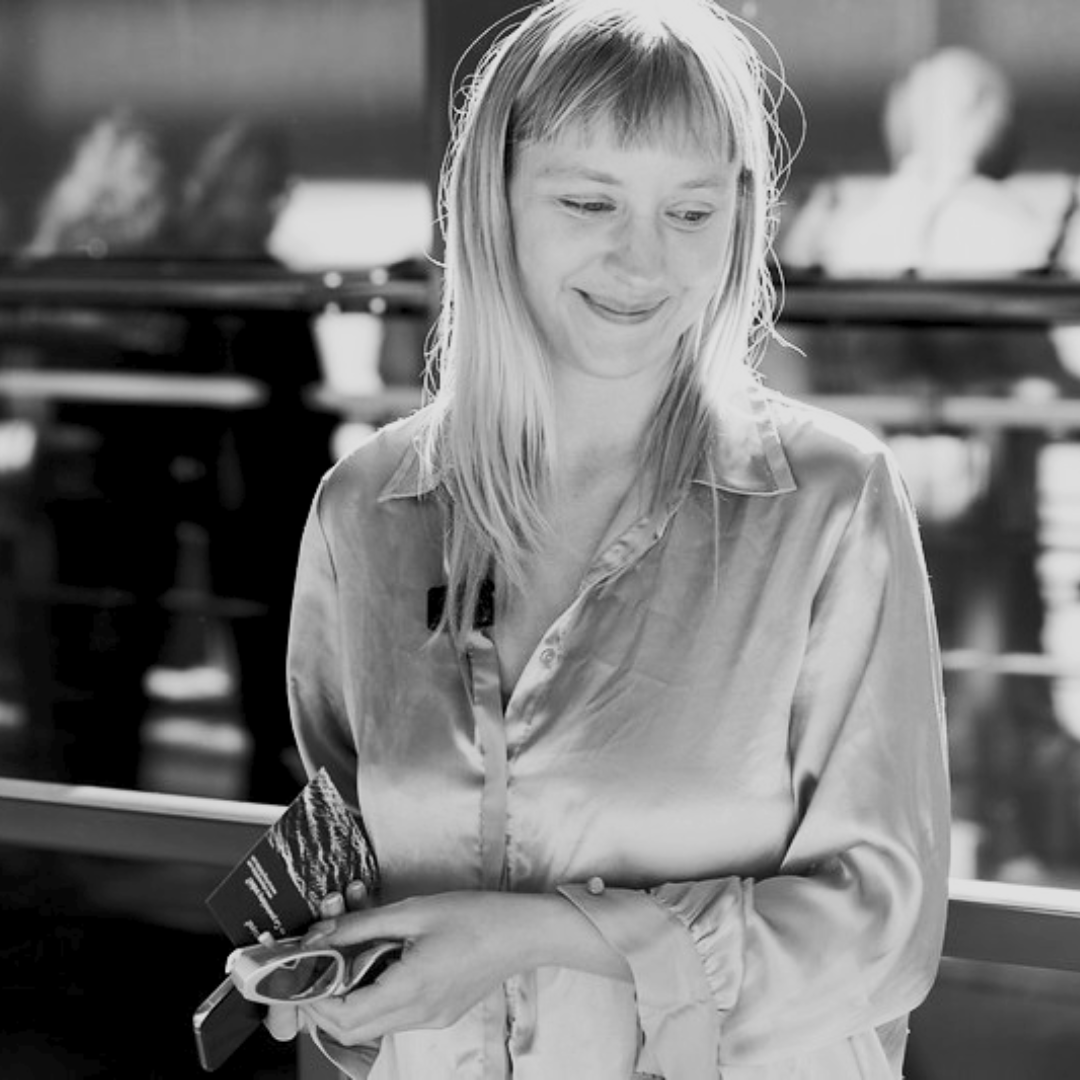
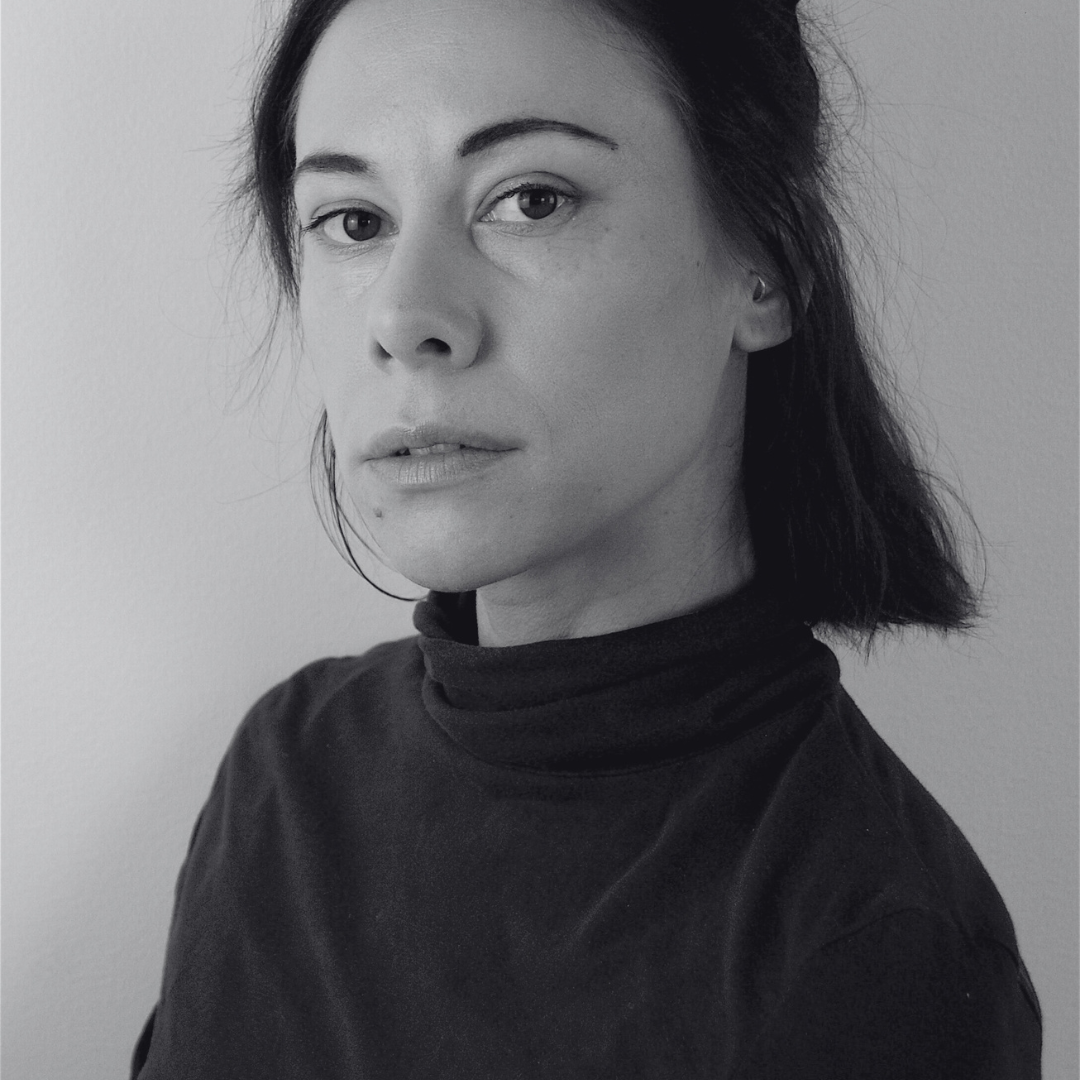
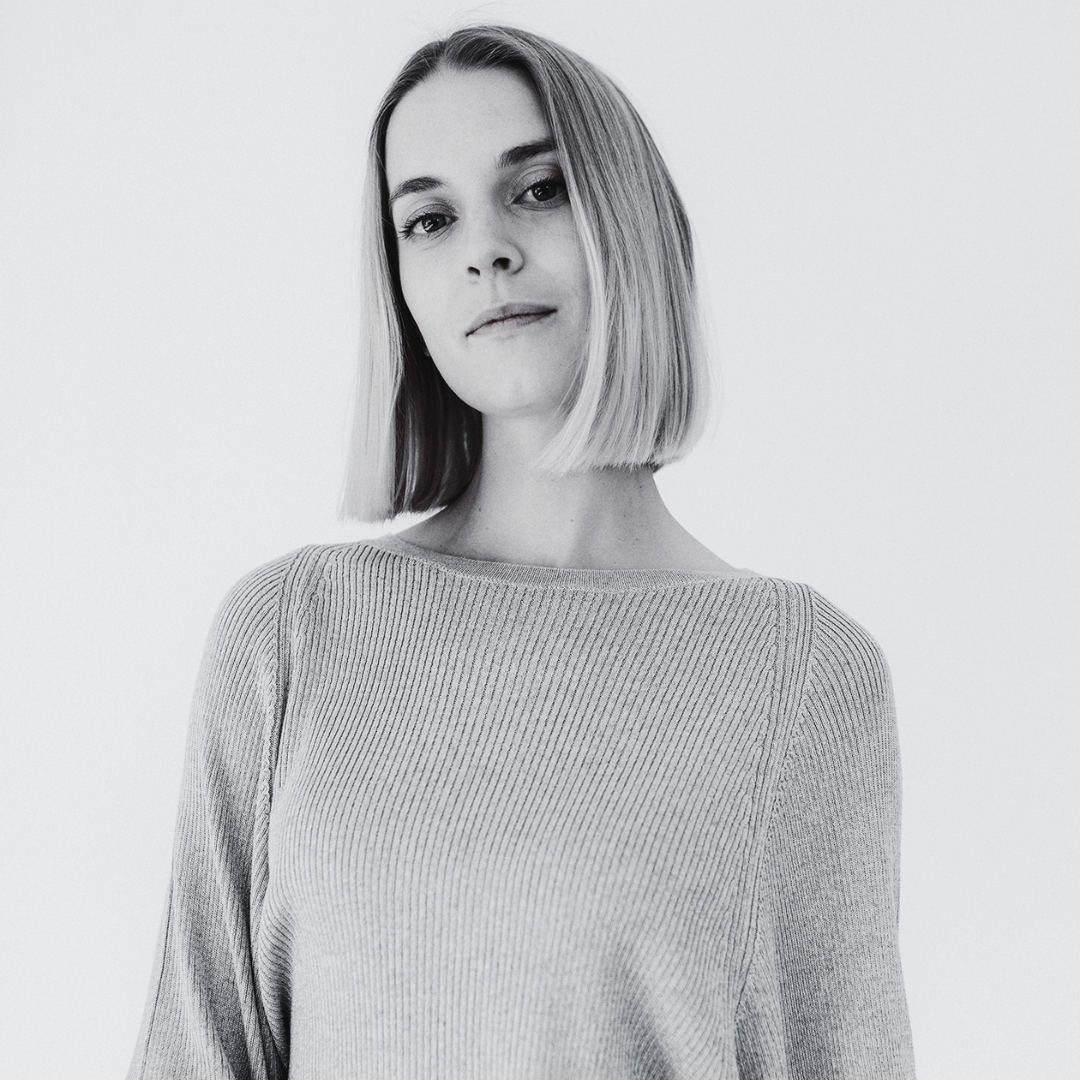
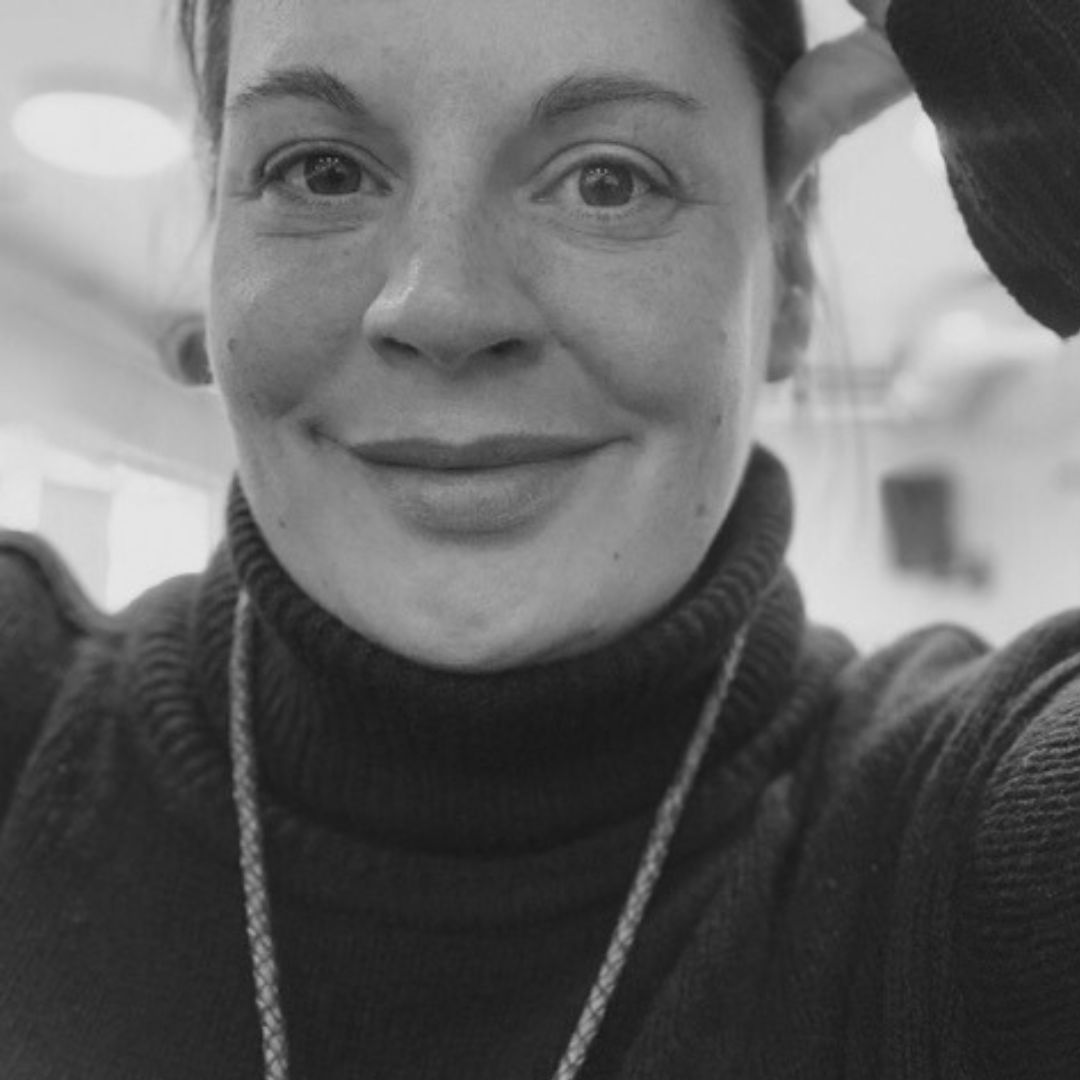
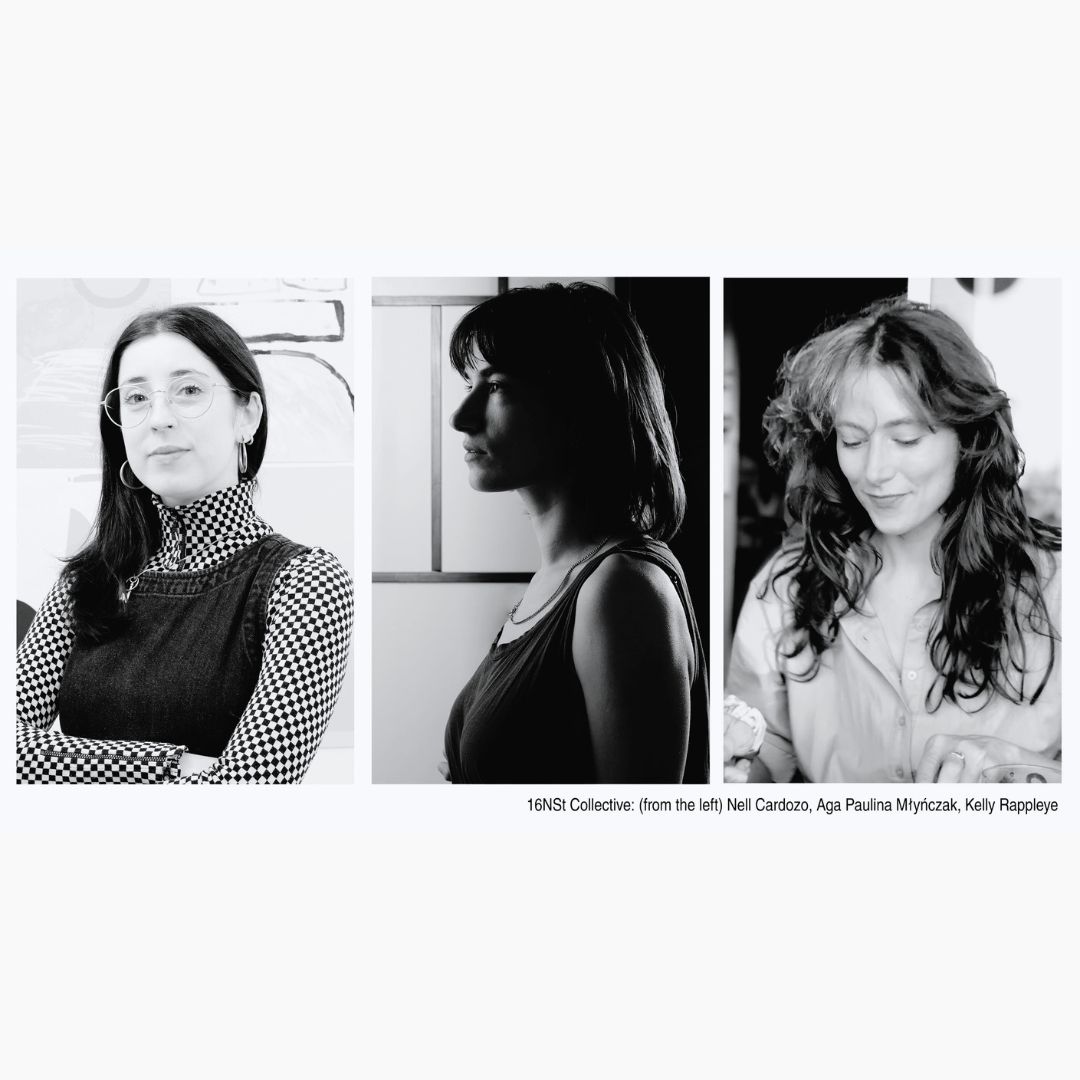
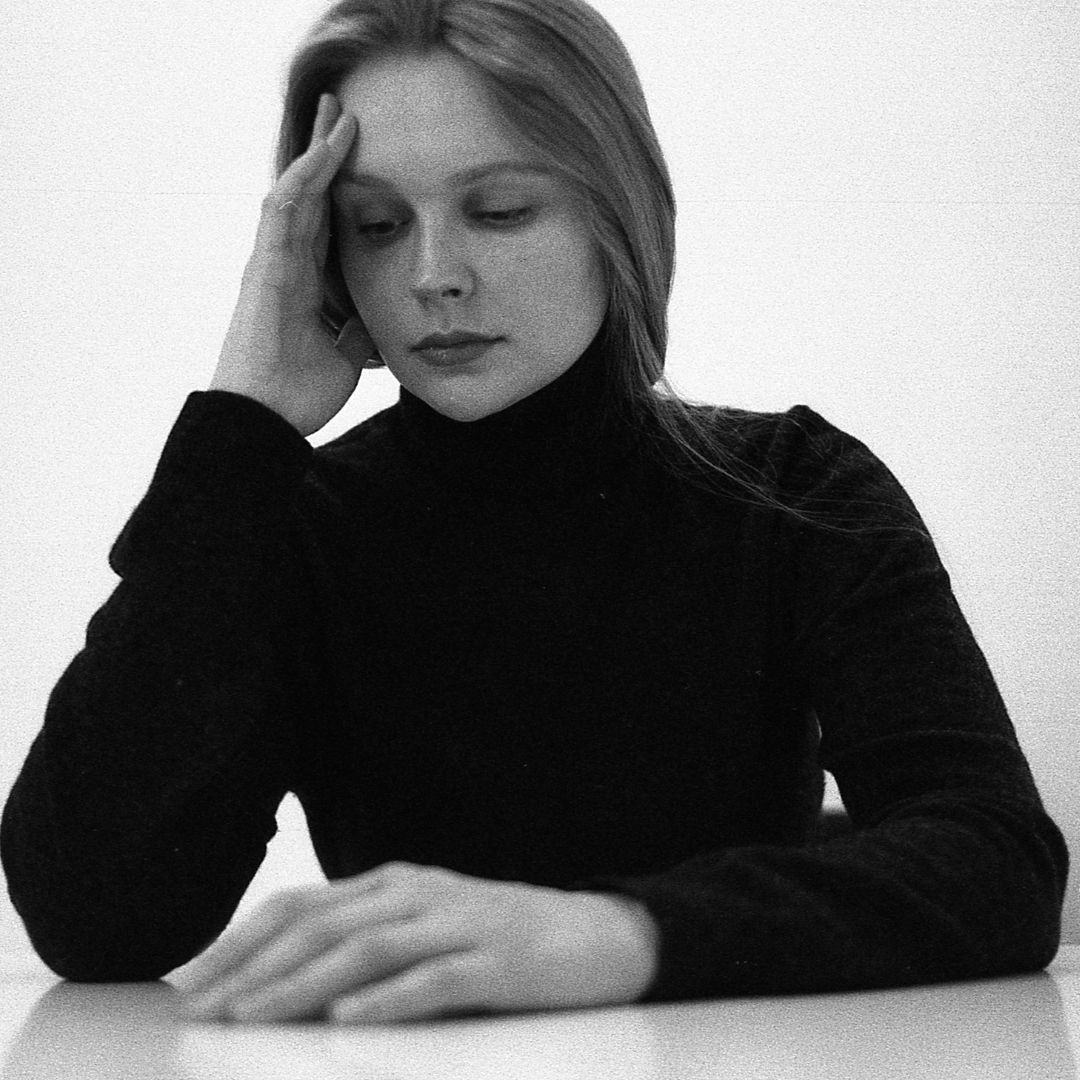
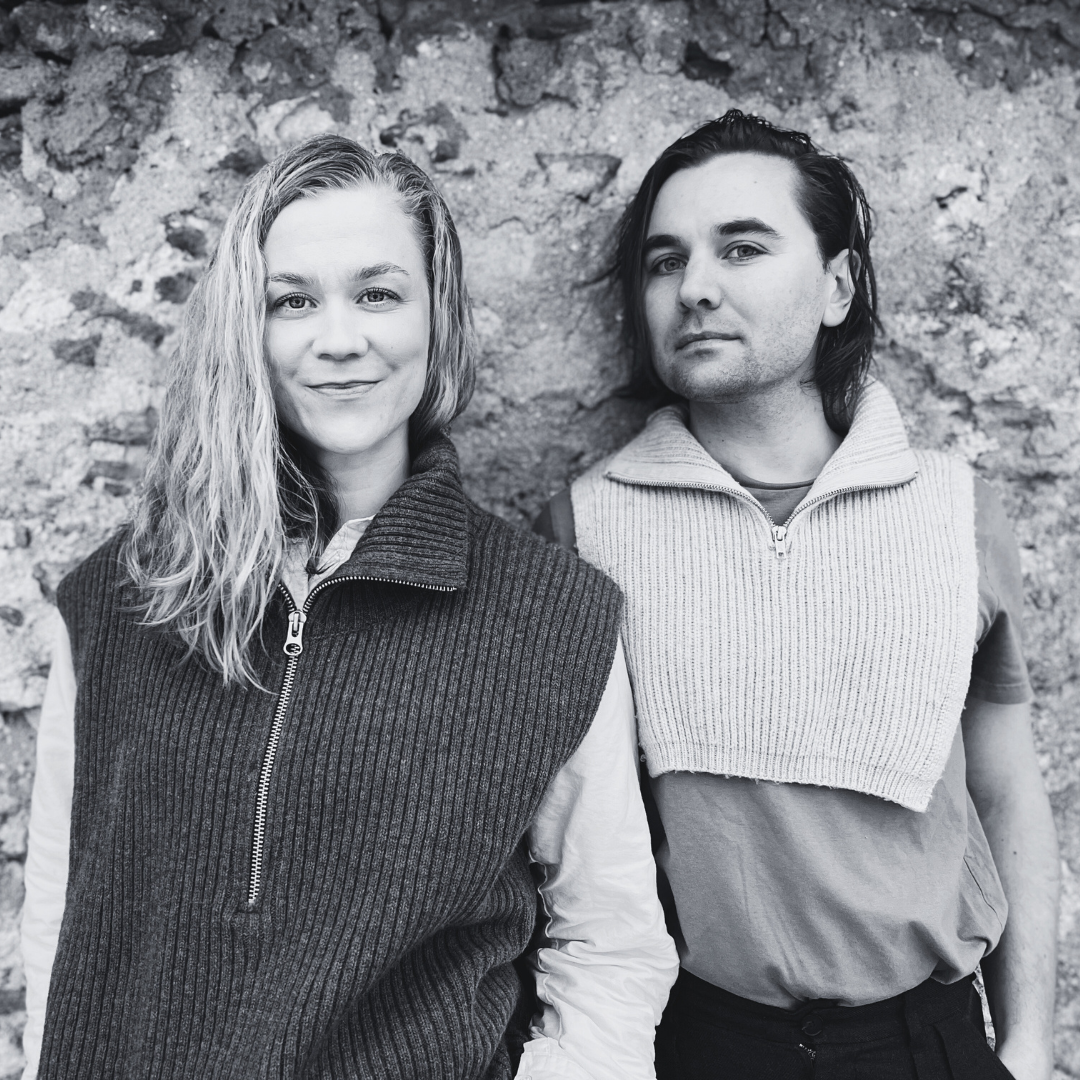
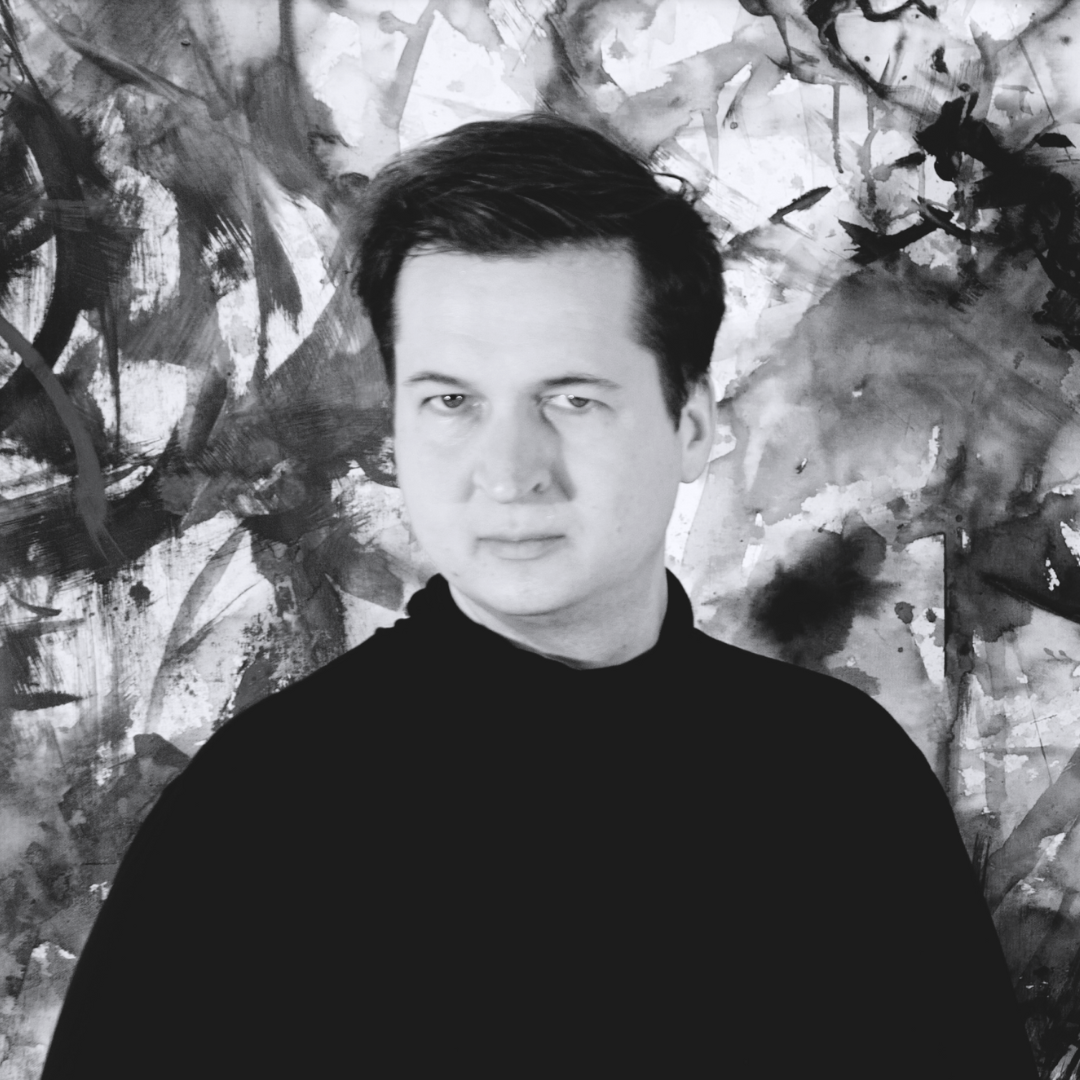
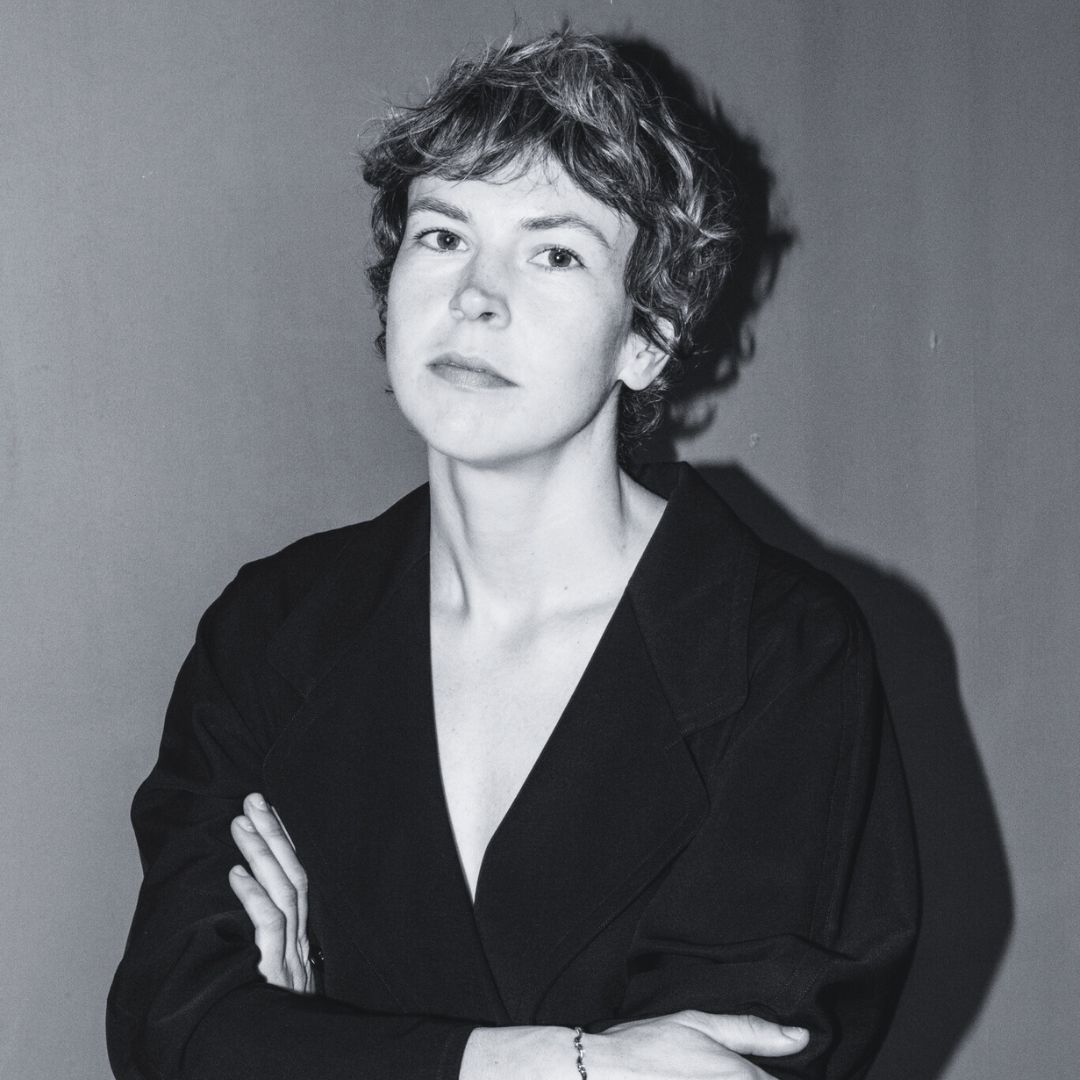
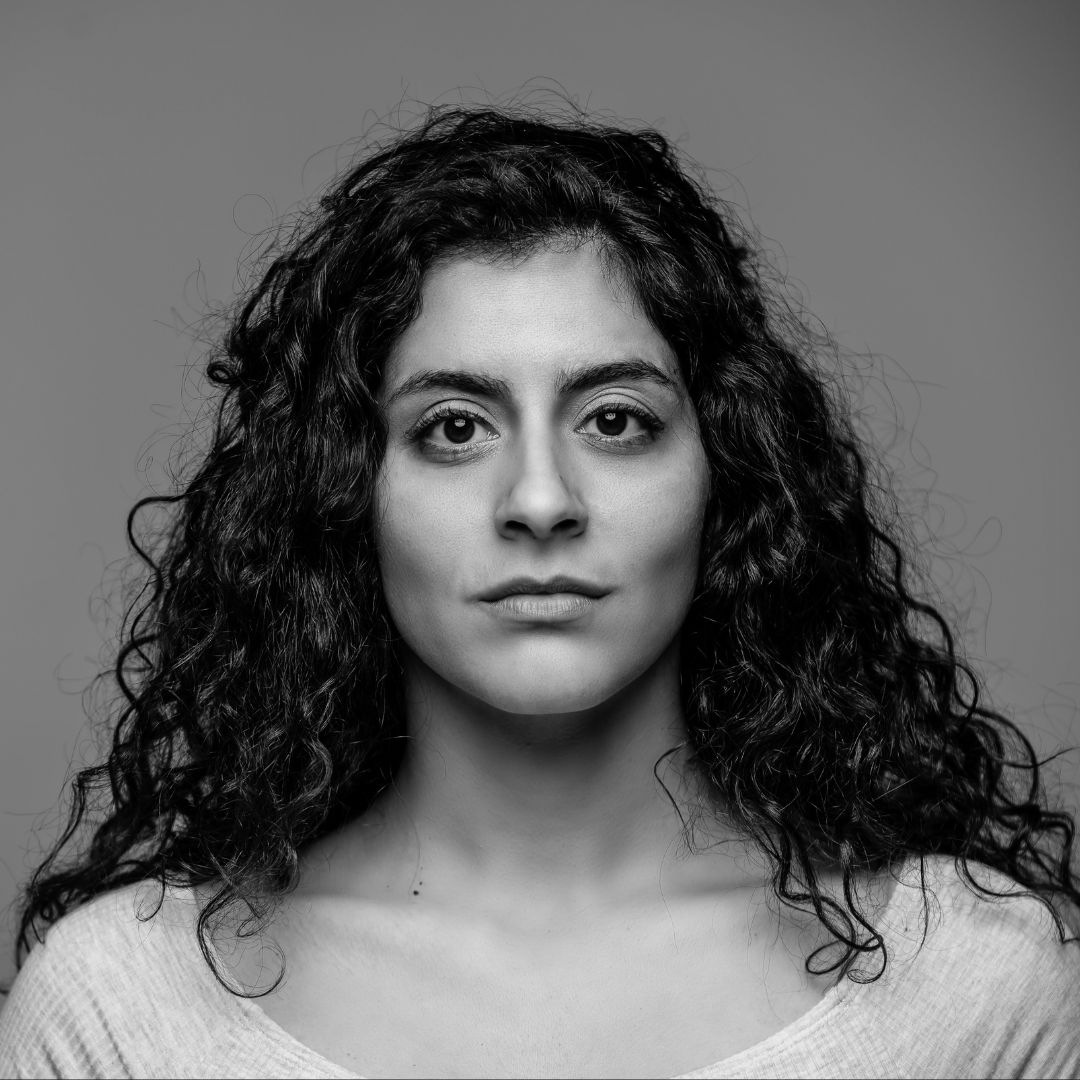
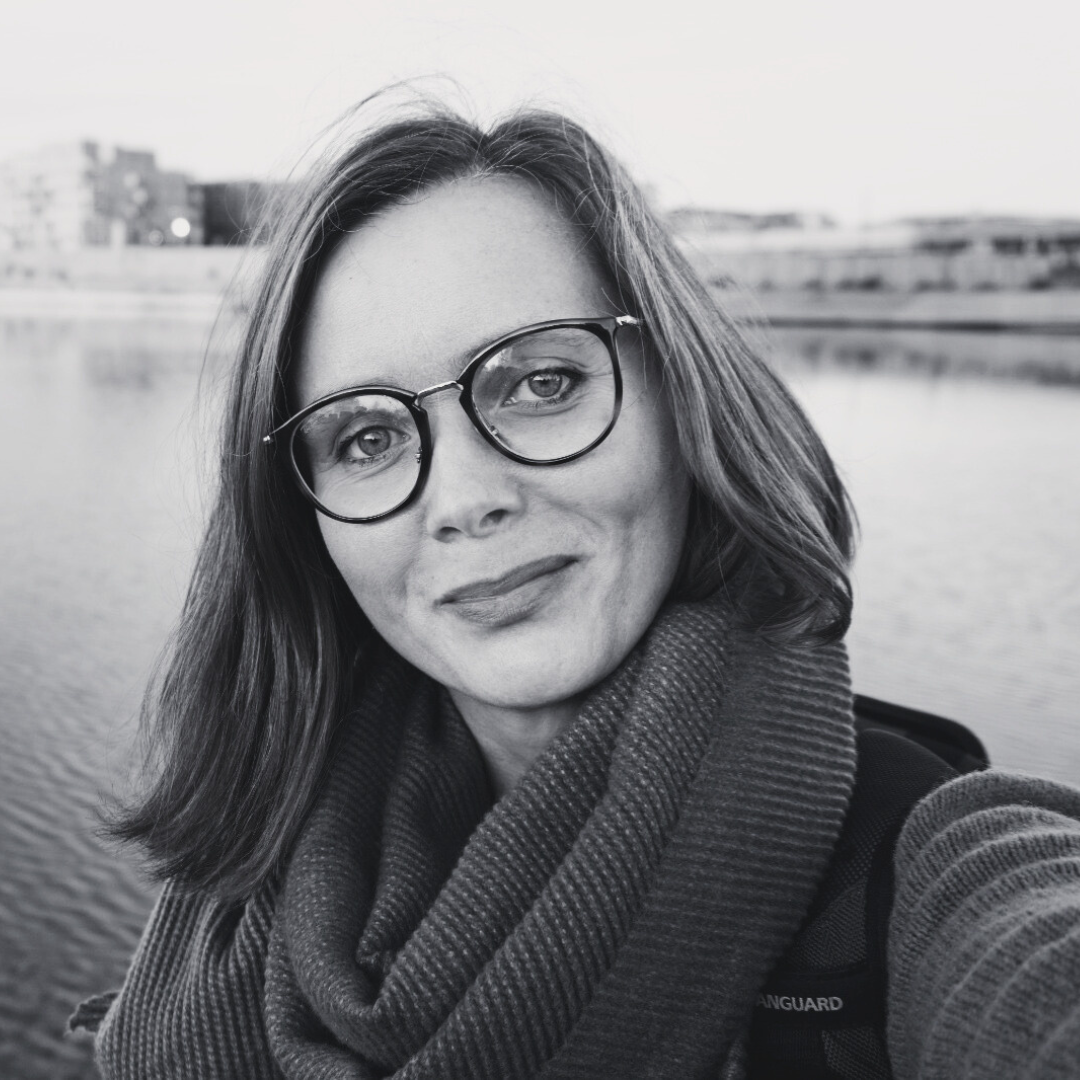
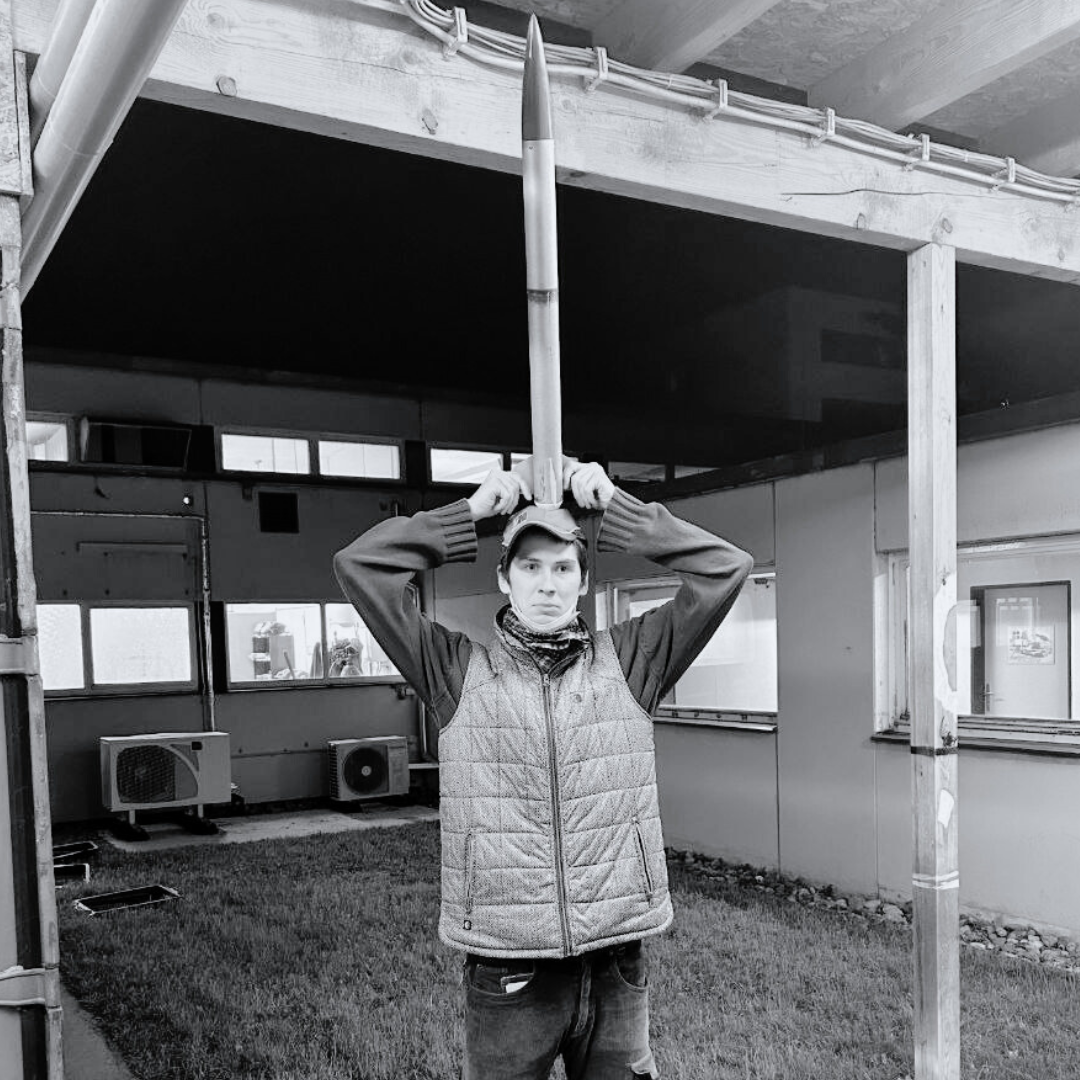
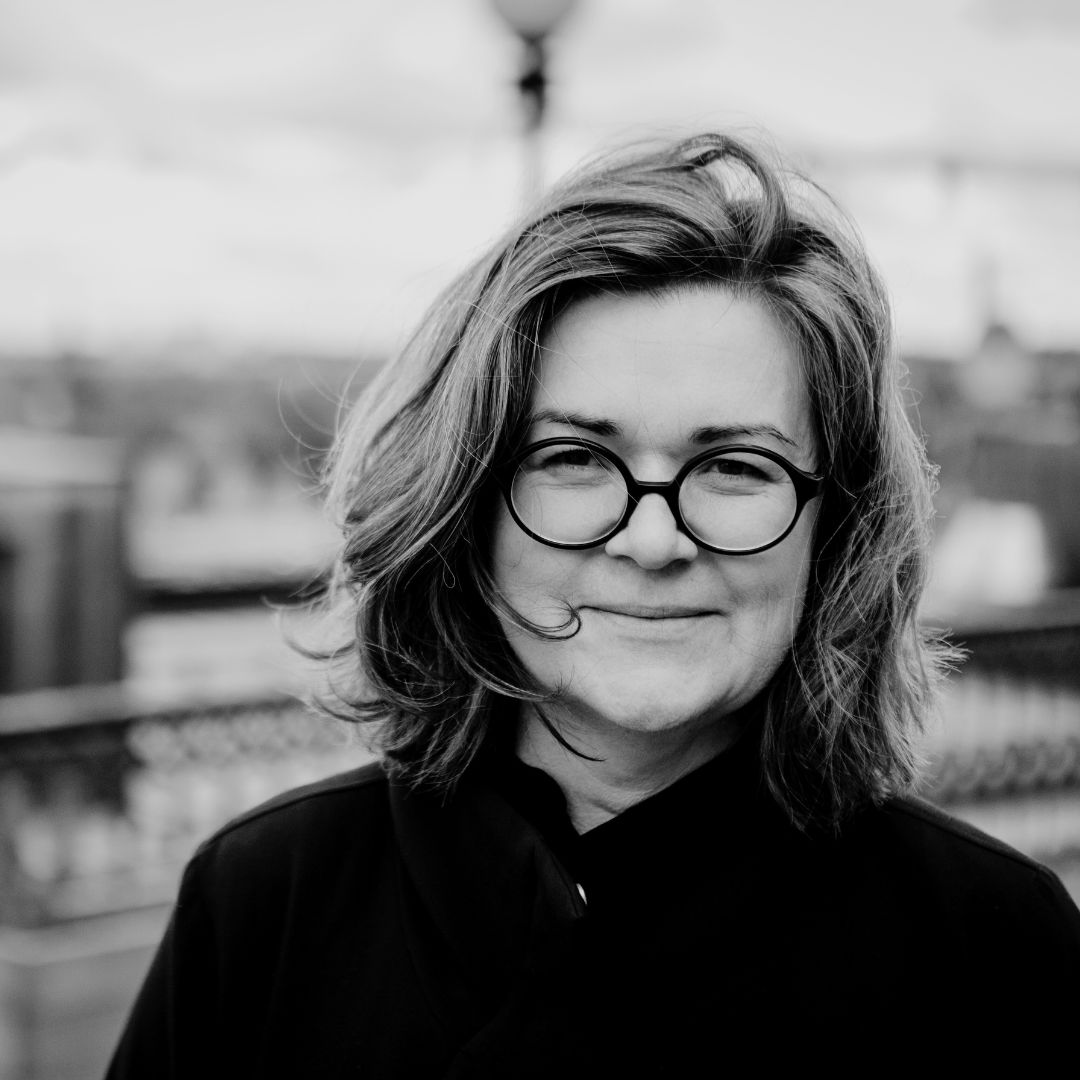
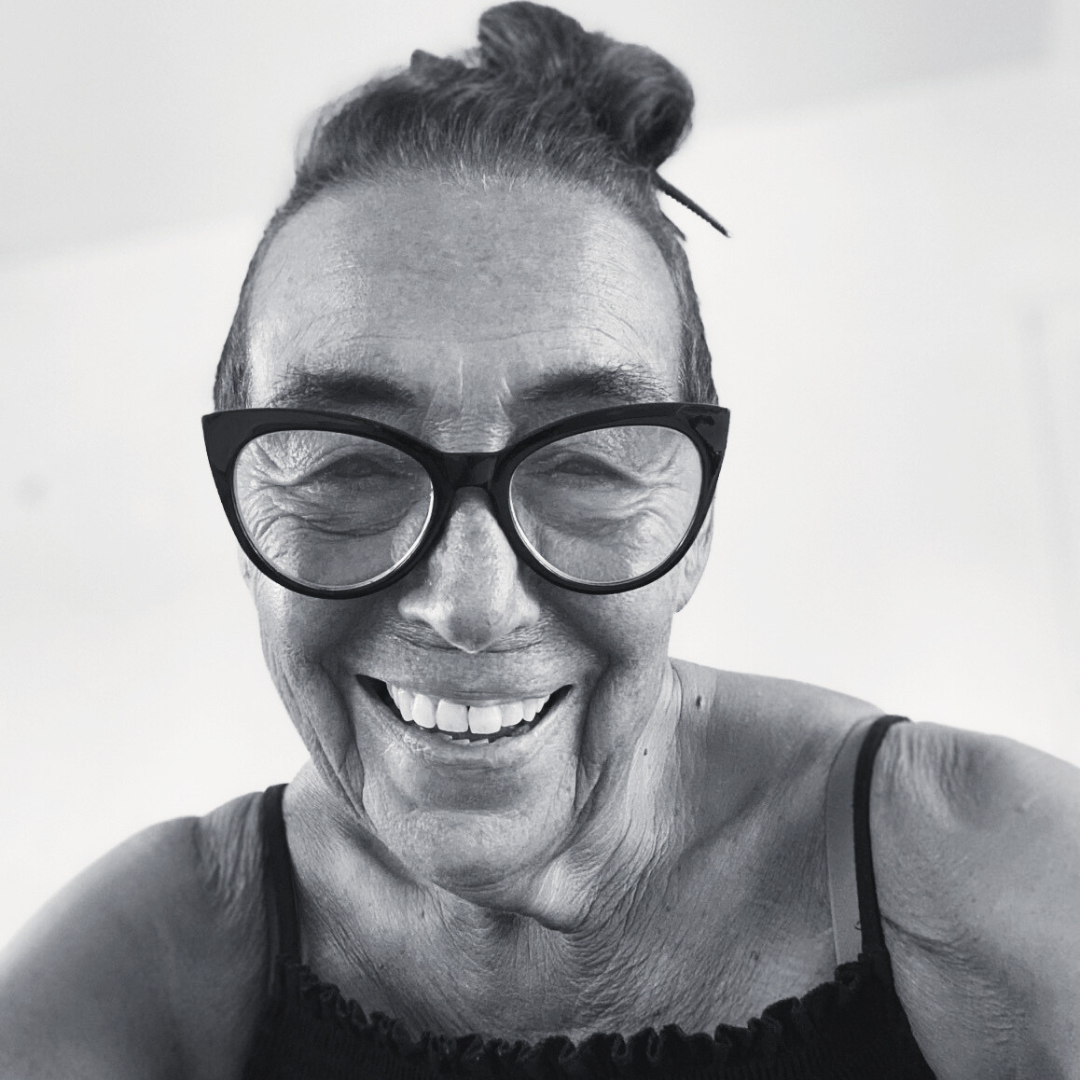
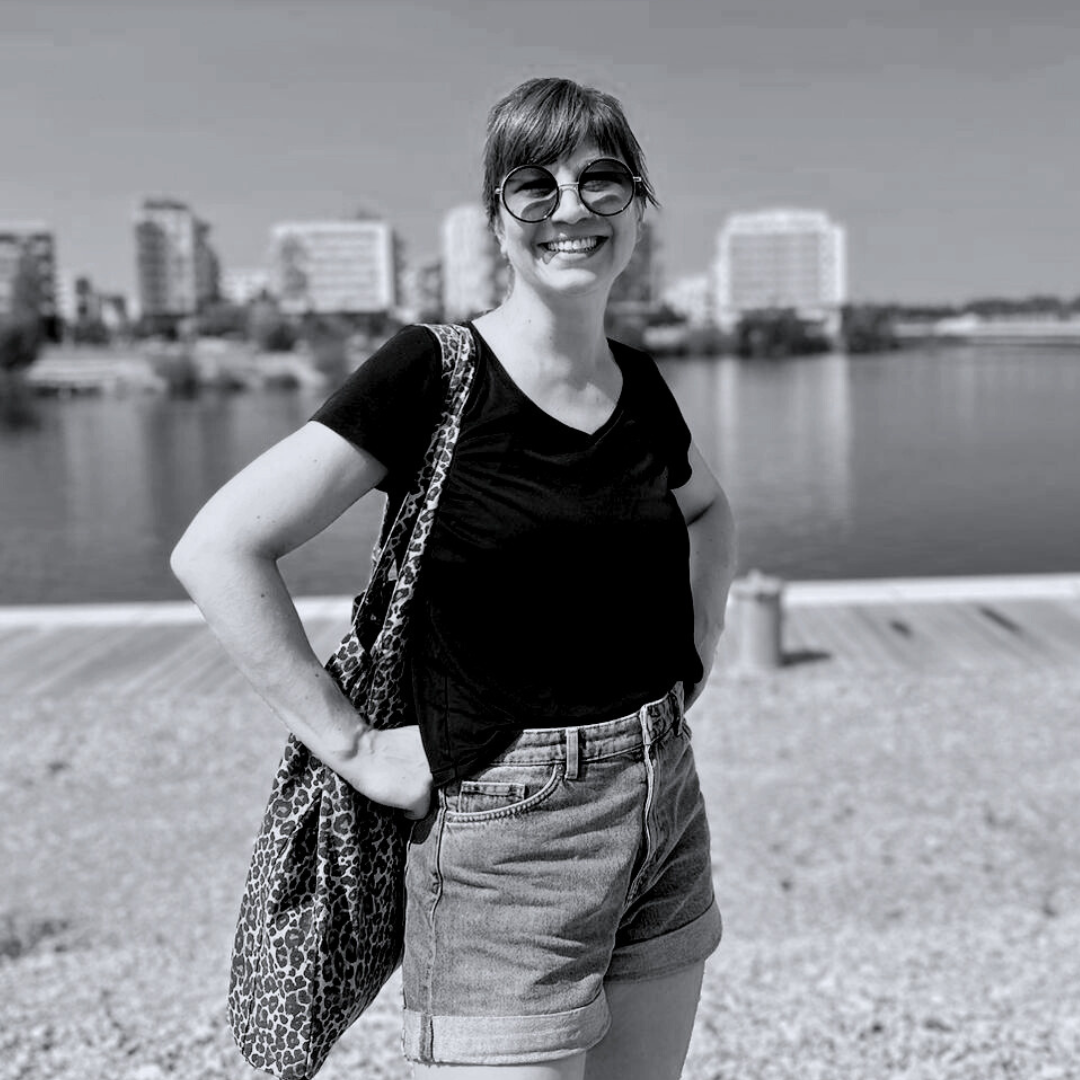
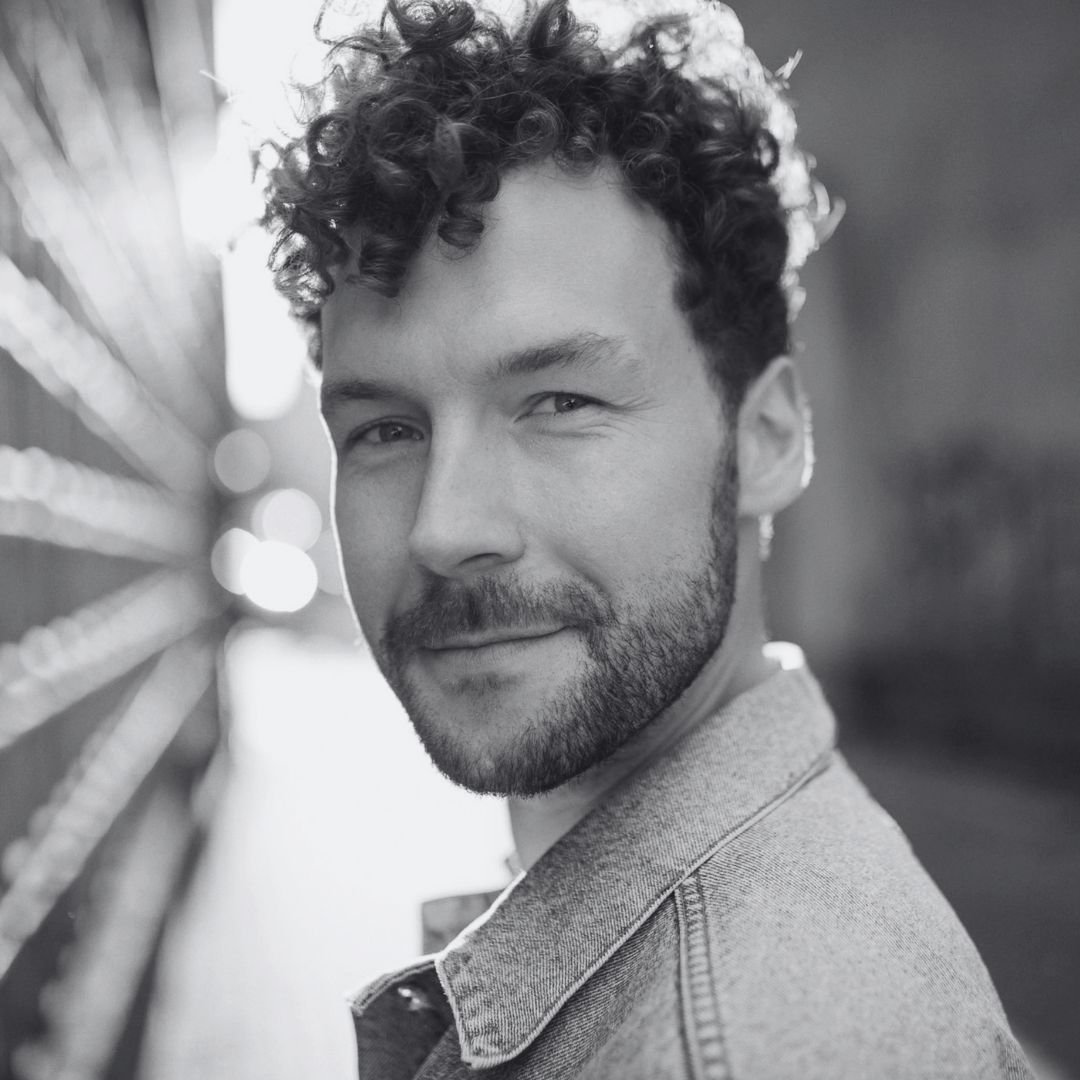
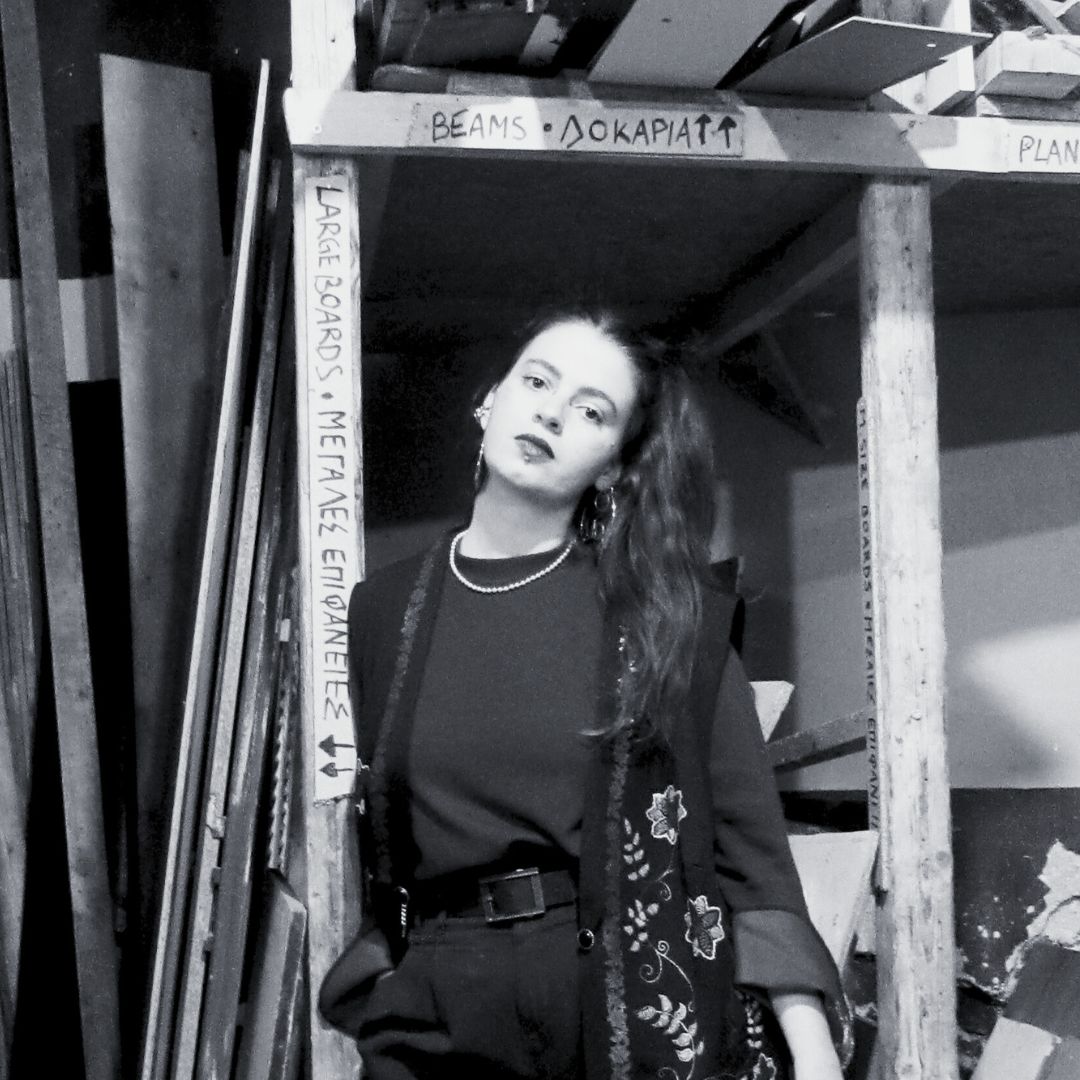
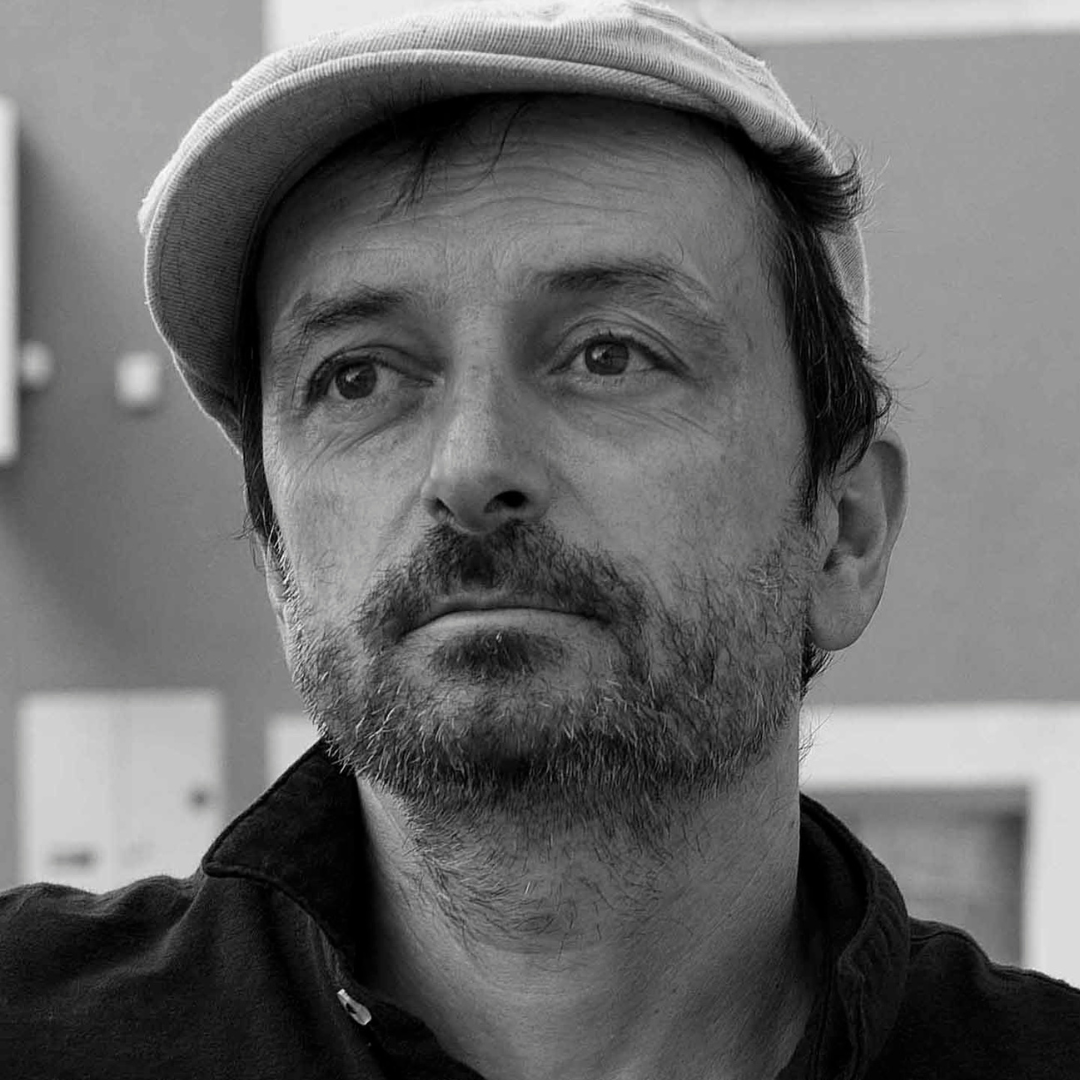
Artists Appointed for Turning the Tide Evoi Residency
Fablevision is delighted to announce the next stages of our involvement in the 5 cities European Collaboration, Turning the Tide. Turning the Tide in Scotland, in partnership with UWS, Culture for Climate Scotland and the Stove, have appointed artists Jo Hodges and Robbie Coleman as the artists who will represent Scotland – traveling to Evoi in Greece for the third residency of Turning the Tide. The residency will take place during April and May with a planned dissemination/information/knowledge sharing event in Dumfries on their return.
Coleman & Hodges are public artists based in Dumfries and Galloway, Scotland working in collaboration on trans-disciplinary public art works. Their work investigates ecological and socio-cultural systems, processes, relationships and change. Their interests span speculative futures, adaptation and resilience, global relationships to the local, participatory culture and the role of art in social and ecological change. Their practice is based in research, experimentation and collaboration and the resulting work takes many forms including temporary and permanent works, site specific installations, socially engaged and participatory processes and explorations of new strategies for working in public space. They are creator directors of The Museums of the FutureNow and Sanctuary Lab.
Images from their previous work can be found via the following links: Glimpses of Utopia; Laden; Micro-Utopias; and Babe.
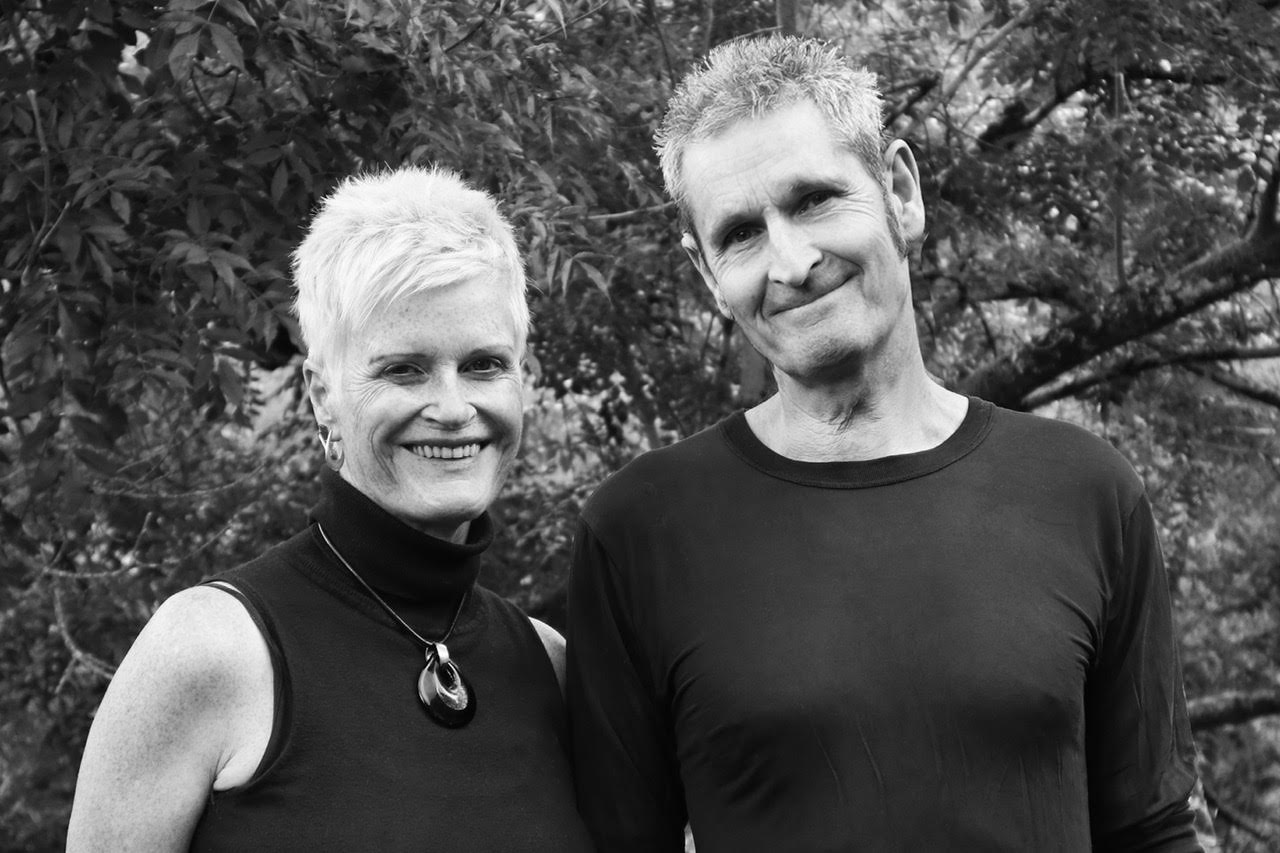
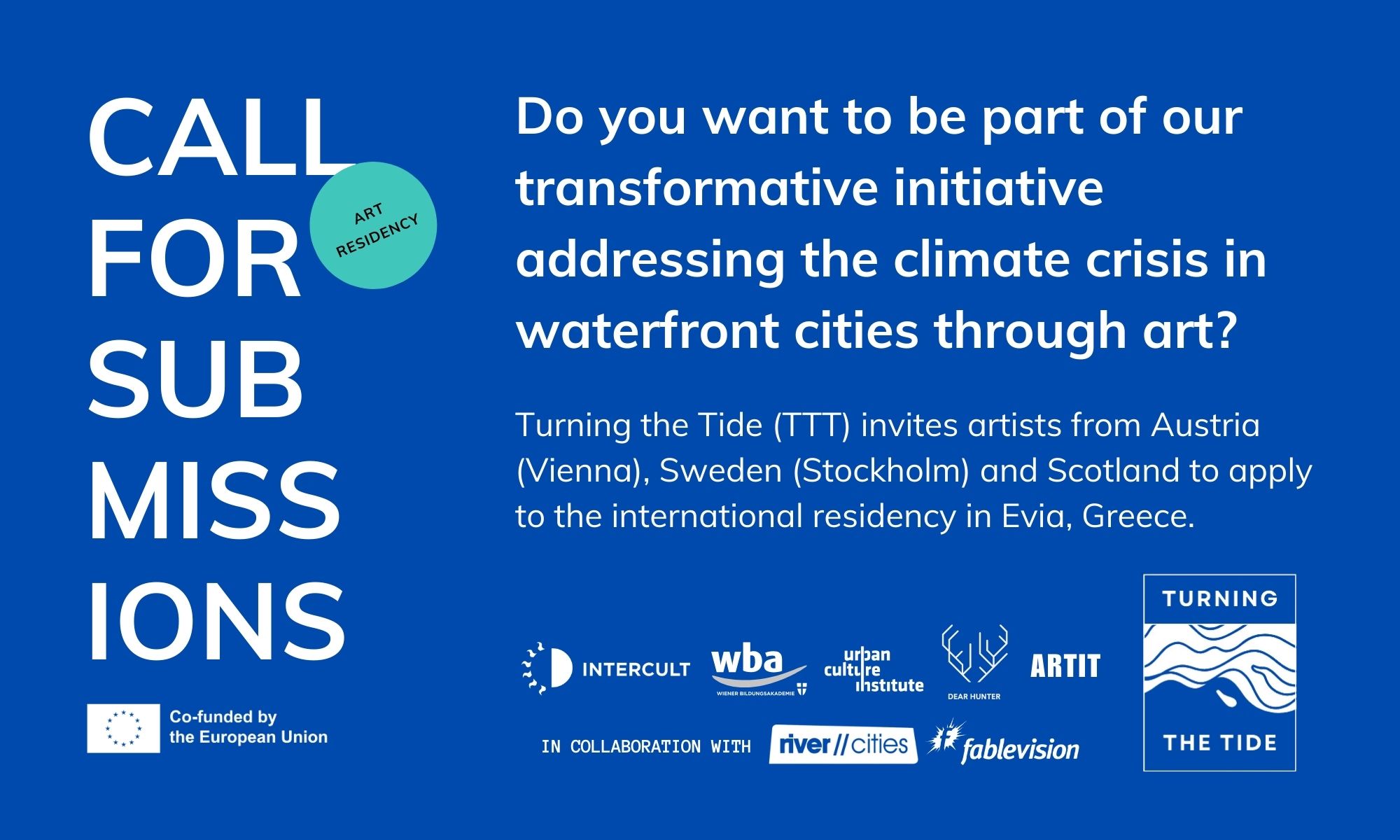
Open Call – Turning The Tide 2025 residencies in Evia, Greece
Are you an artist based in Austria (Vienna), Sweden (Stockholm) or Scotland who is passionate about leveraging art to address pressing environmental challenges in waterfront cities? Join us in our Climate x Art initiative, Turning the Tide (TTT), which seeks to creatively respond to the climate crisis and its threat to waterfront communities.
Through this unique residency opportunity, 3 international artists (one from each country) will have the opportunity to contribute to a transdisciplinary dialogue and create tangible works of art that amplify the local voices of Evia, Greece and raise awareness about the region’s climate challenges.
About Turning the Tide (TTT)
TTT is an ambitious artistic intervention and transdisciplinary dialogue project, designed to harness the power of art to spark conversations and drive action on climate change and climate justice. By collaborating with socially engaged artists and local communities in four waterfront cities, TTT aims to explore the role of art in reshaping the narrative on climate issues.
Turning the Tide is an initiative by Intercult (Sweden), Artit (Greece), Wiener Bildungsakademie (Austria), Dear Hunter (Netherlands), Urban Culture Institute (Poland), in collaboration with Fablevision (Scotland) and River//Cities network. For more information, please visit TTT’s website.
Residency Details
The residency in Evia, the second-largest island of Greece offers three selected artists a 28-day residency from April 19th, 2025 until May 17th, 2025. During this time, artists will have the opportunity to conduct cultural mapping, research, engage with the local community and co-create artistic works with the public’s support, inspired by their experiences and the insights gained during the residency. The final works will be presented in the planned Evia International Lab in the presence of all stakeholders between May 14-16th, 2025.
Expectations and Engagement
The selected artists participating in the residency are expected to produce tangible artistic works that reflect their engagement with the local context and climate-related themes. These works will be showcased both during the Evia International Lab in mid-May 2025, and digitally, via the TTT website thereafter, providing a platform for artists to share their perspectives with a global audience.
Artists will be further invited to actively participate in online meetings before, during, and after their residency to meet the team, discuss their ideas, and receive feedback and guidance. Moreover, they will be expected to engage in any upcoming local labs (in their respective country), facilitating artistic and social interactions with the local community and the other selected artists. These labs offer artists valuable opportunities to collaborate, exchange ideas, and gain insights into the cultural and environmental context of Evia.
Accommodation and Support
During the residency, the selected artists will be accommodated in designated spaces within Evia, providing a conducive environment for artistic exploration and community engagement. Our team will provide support and guidance throughout the residency to ensure that artists have a fulfilling and enriching experience.
So, join us in Evia and be part of a transformative journey where art meets activism to address the urgent challenges waterfront cities are facing.
Eligibility and Selection Criteria
This opportunity is exclusively open to Austria (Vienna)-based, Sweden (Stockholm)-based and Scotland-based artists who aspire to contribute to our transformative initiative in addressing climate change through art. Artists who wish to explore the intersection of art and environmental sustainability are encouraged to apply.
The selection process will be a joint effort – involving leading art organisations and curators from all associated partners. These esteemed professionals will collectively review applications and ensure a fair and inclusive selection process. The artist selection will be based on:
- The participant’s genuine interest and relevance to the theme of addressing the climate crisis through art.
- Their ability and readiness to actively participate in the art residency and offer diverse perspectives.
- Their focus on community engagement and participative processes.
- Their collaborative spirit and willingness to contribute to the overall project and work alongside fellow local and international artists during the residency.
- Their ability to demonstrate strong time management and excellent communication skills.
- Proficiency in English.
Previous experience in similar projects will be considered a plus but is not required.
Residency Awards and Artist Benefits
Three selected international artists will get to travel to Evia, Greece and will receive the following:
- Compensation: A gross amount of €2600, to cover the costs of stay and artist compensation during the residency. The final amount paid to the artist will be subject to deductions based on the national tax regulations of the country in which the artist resides, as well as the national law of the organising body.
- Residency Logistics Support: Additional comprehensive coverage for travel expenses and accommodation throughout the residency period.
- Production Budget: A production budget (up to €600), upon approval, to support the creative process and the realization of artistic projects.
- Participation in Physical & Online Exhibition: Showcase your artwork at the end of the International Lab and to a global audience by digitally exhibiting your process and final works on TTT’s platform, amplifying your voice on climate action.
- Media Exposure: Gain exposure through media channels, sharing your perspectives and artistic vision with a broader audience.
- Networking and Educational Opportunities: Engage in workshops, discussions, and networking events and activities with fellow artists, scholars, activists and experts, fostering collaboration and growth.
- Community Engagement: Participate in local labs and community events, fostering meaningful connections and collaboration with the local community.
- Professional Development: Enhance your artistic practice and broaden your horizons through diverse cultural experiences and exchanges.
This residency is not just an award – it’s a transformative experience that empowers artists to make a difference through their creativity. Join us in Evia and be part of a global movement using art to drive positive change.
If you are interested in the residency in Evia, Greece (April 19th, 2025 until May 17th, 2025) you are welcome to apply via these links by the 1st of February 2025.
- Google form – Austria (Vienna): https://shorturl.at/vI3Qp
- Google form – Sweden (Stockholm): https://shorturl.at/cqpNl
- Google form – Scotland: https://shorturl.at/uSoEY
The applicants will get information about the decision by the second week of February.
Turning the Tide -Glasgow Urban Lab2 – November 2024
Fablevision-hosted Glasgow Urban Lab 2 – part of the Turning the Tide Project – had senior planners from Glasgow City Council, two artists, an architect, an activist and two academics in the room and everyone concurred.
Some of the findings of the discussion – and something that everyone present could agree on – were:
- the climate crisis has changed the context of the debate and the imperative is now that profit can no longer trump sustainability.
- the UN concept of the river as a legal entity is worth pursuing. Could that context upturn the power dynamic? If the river has rights (for access, use, protection from flooding etc.) could the river then charge for access, fine for pollution and take back control?
- these conversations are vital to be conducted in a European context. We can find out how all these other cities deal with their rivers.
We suspect Glasgow is unique in having allowed so many of its riverine assets to be transferred into private ownership. In Vienna, on the other hand, it is public ownership that delivers.
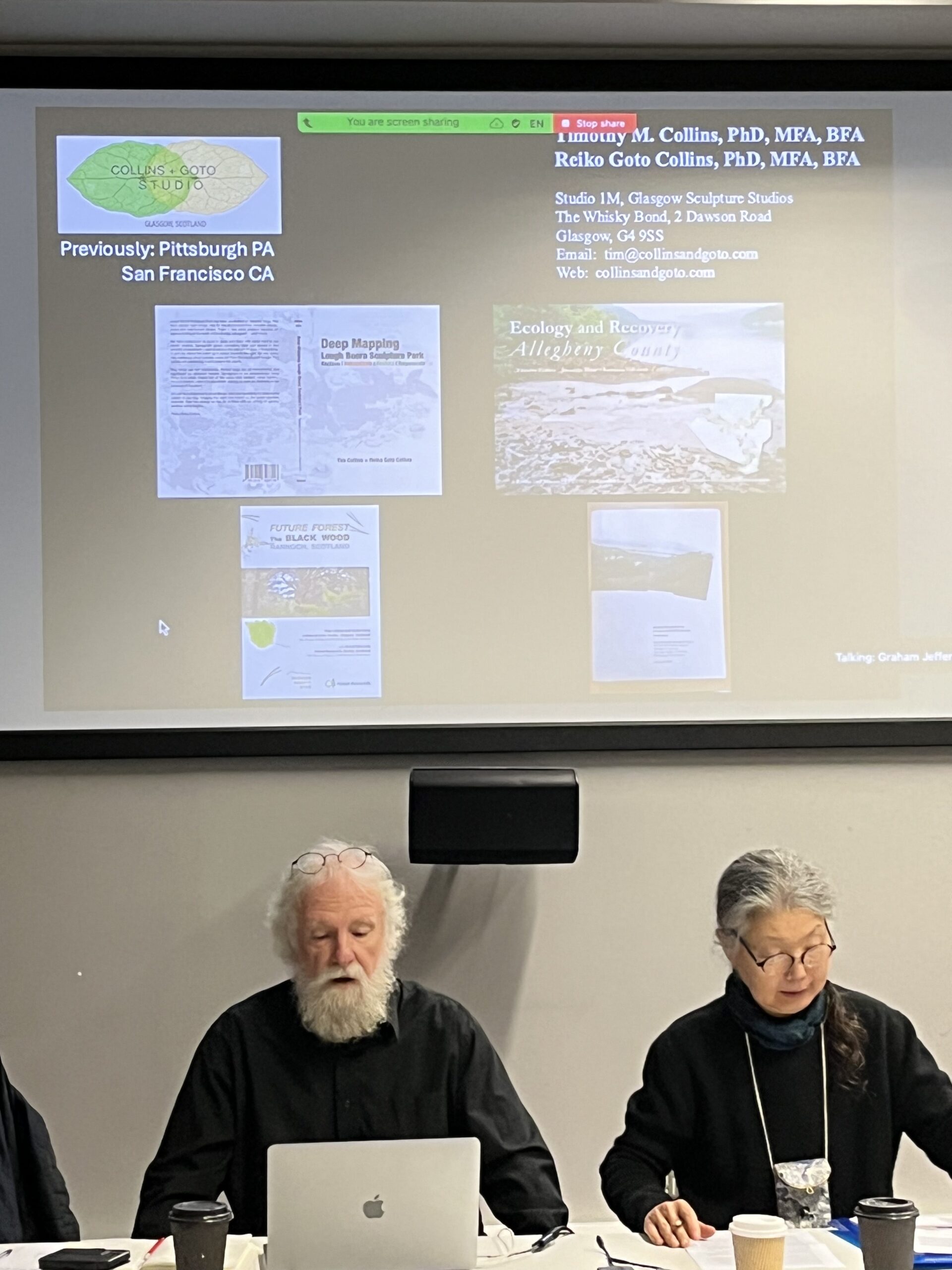
Turning the Tide –Glasgow Urban Lab2 – October 2024
Fablevision Highlights Social Engaged Artists and Sustainable Urban Development
We’re excited to share the incredible work of socially engaged artists Tim Collins, Reiko Goto, and Louise Nolan, who presented their practices and methods to the Turning the Tide Local Urban Lab in Govan, on the 13th of November 2024. Their embedded approaches have made a lasting impact on the Forth-Clyde Canal development, empowering local communities to have a voice in planning processes.
Working hand-in-hand with local residents, planners, developers, and authorities, these artists have helped establish governance structures that amplify community influence. Through sustainable and organic planning, prioritising green spaces and nurturing natural environments, they’ve showcased how thoughtful development can prevent issues like flooding, often exacerbated by dense, concrete-heavy riverside projects.
Meet the Artists – Reiko Goto and Tim Collins
Reiko and Tim are artist-researchers interested in our changing environment. They focus on how art shifts meaning and values in relationship to new ideas and experiences. They work across sculpture, media and technology. They are interested in the experience and documentation of a sense of significant otherness through creative practice. Reiko and Tim are visiting research fellows at Bath Spa University; they have just completed their research fellowships at the Leitrim Sculpture Centre in Ireland. In 2024, they presented work in Dusseldorf, Cologne, Glasgow, and Ireland. They were artists in Residence for two months at the Museum Quarter in Vienna. They seek research and development fellowships and opportunities to present, perform and exhibit work anywhere that an interesting conversation might occur.
Have a look at the Hamiltonhill Claypits Local Nature Reserve.
Meet the Artist – Louise Nolan
Louise is a ceramicist and artist based in her community of Maryhill in Glasgow UK. She is also the cofounder and Director of Make it Glasgow a community interest compmapant established in 2022 to facilitate ongoing local development work and the building of the “Beithir” and establish other cultural enterprises at Stockingfield Bridge, Ruchill, Glasgow.
Her practice centres around community networks and collaborative design led practice, community, clay, heritage and making. Louise is passionate about leadership and building vibrant and creative places to live, work and play. With an Mphil in Art and Design in organisational contexts from Glasgow School of Art and over 30 year’s experience working in communities facilitating experiential learning, emergent making and doing, Louise believes in getting alongside local people to make meaningful change. Bringing a bit of hope and delight into communities navigating and evolving through difficult social and environmental transformations.
Have a look at Louise’s work here.
Their work highlights the power of art and community collaboration in shaping more resilient, inclusive, and environmentally conscious urban spaces.
We are proud to celebrate these collaborations and the positive changes they bring to our communities. Wishing everyone a Merry Christmas and a joyful holiday season!
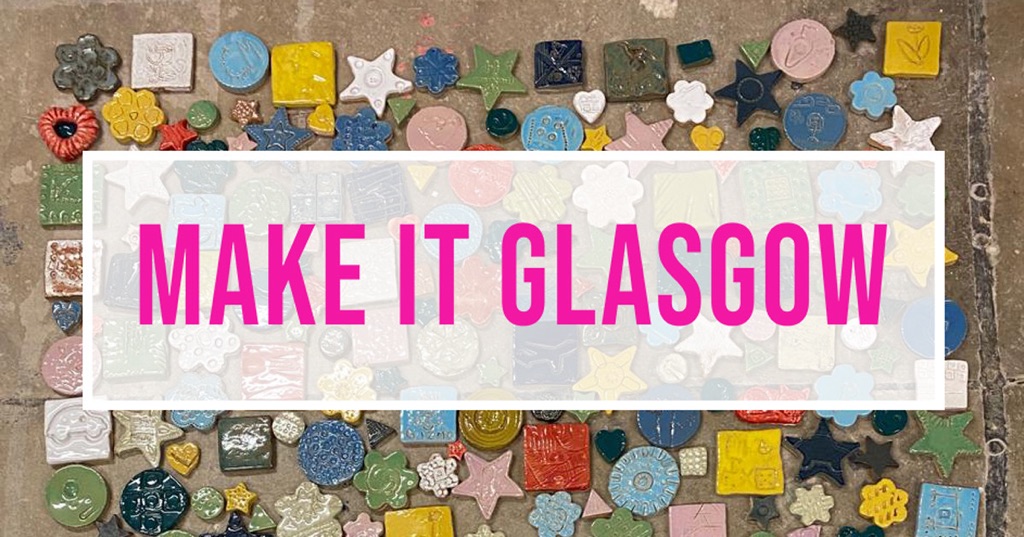
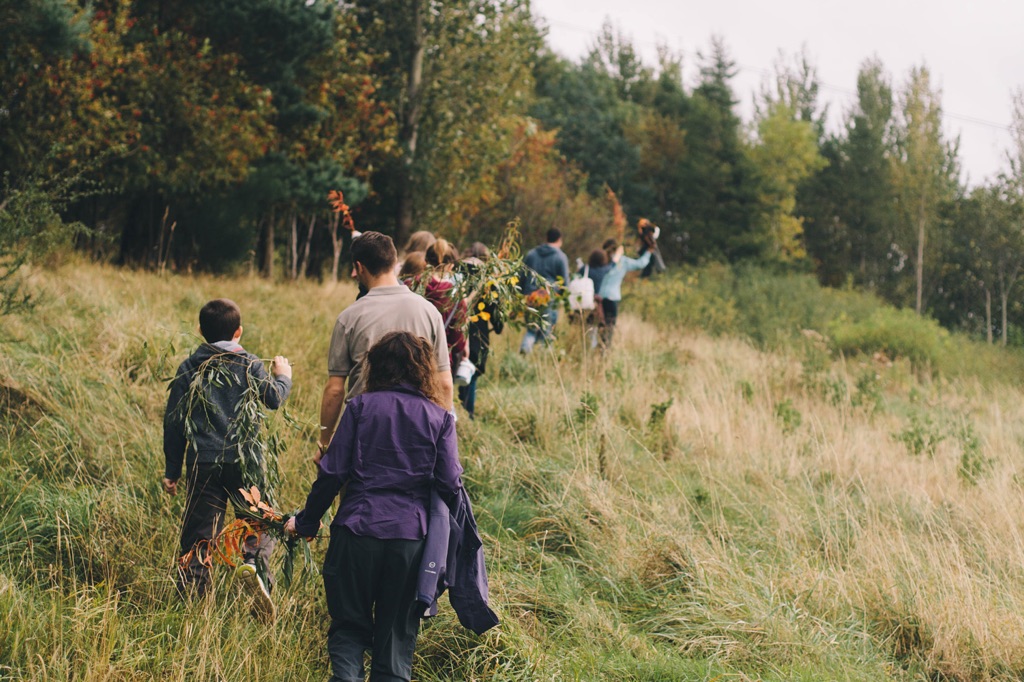
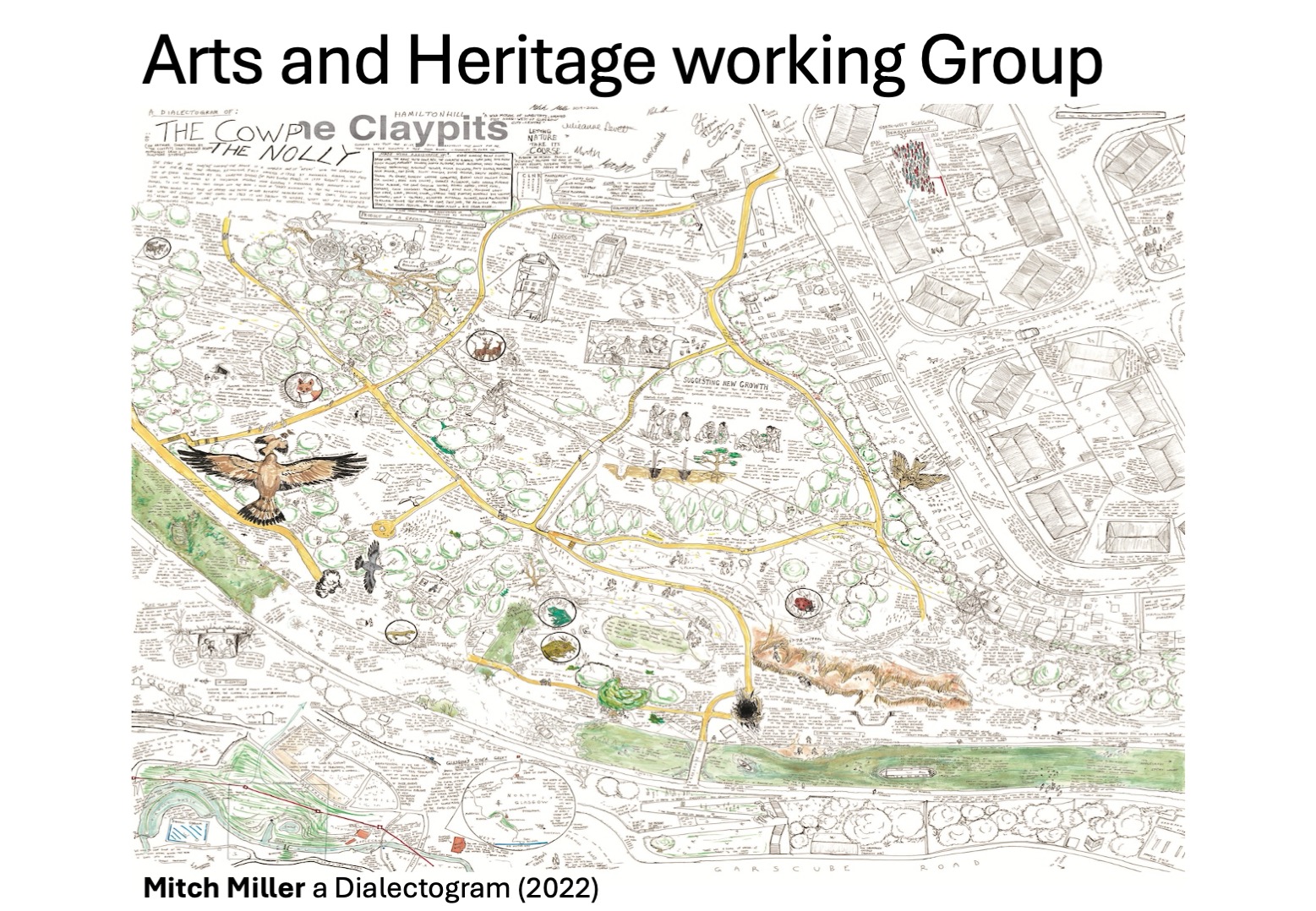
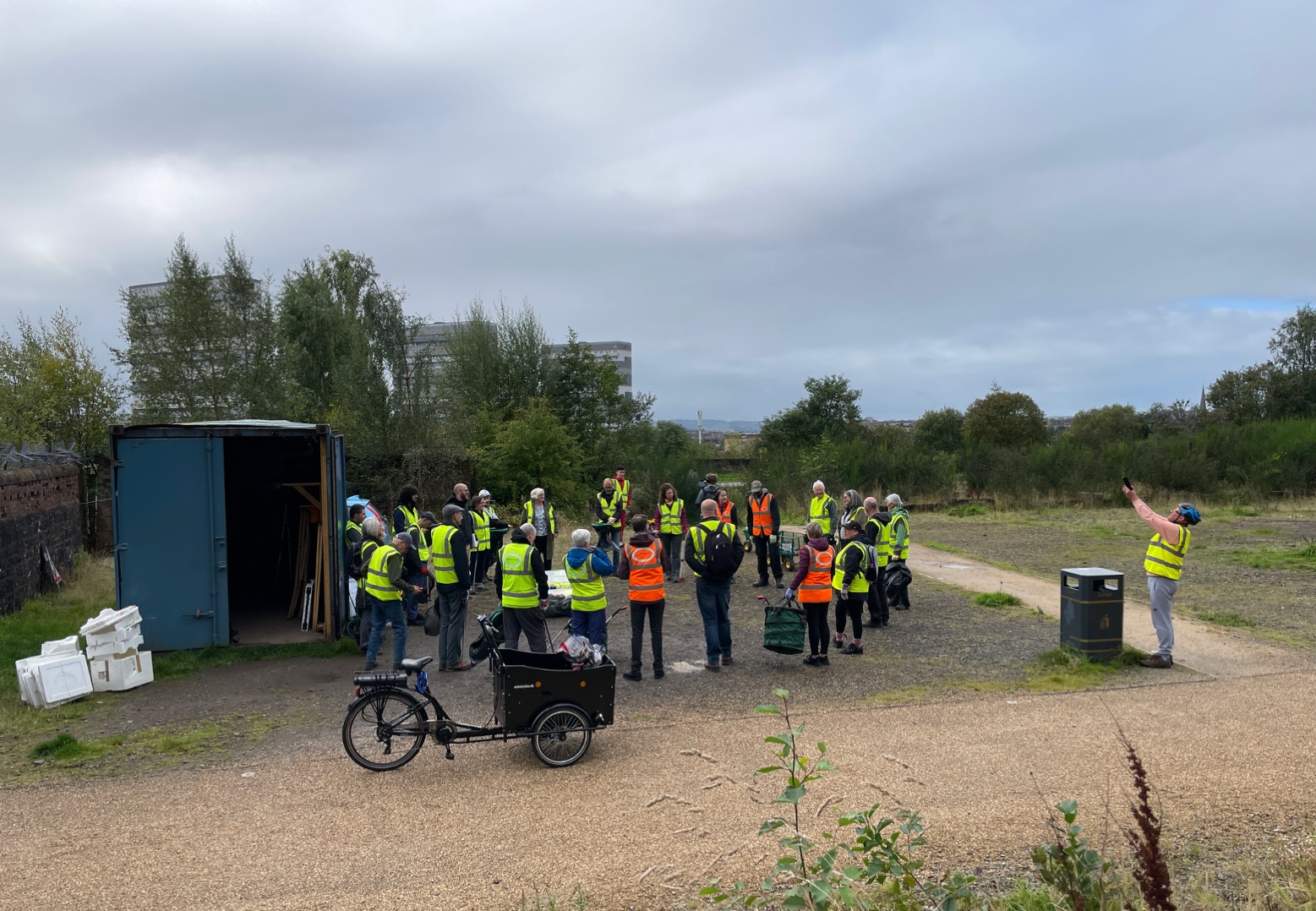
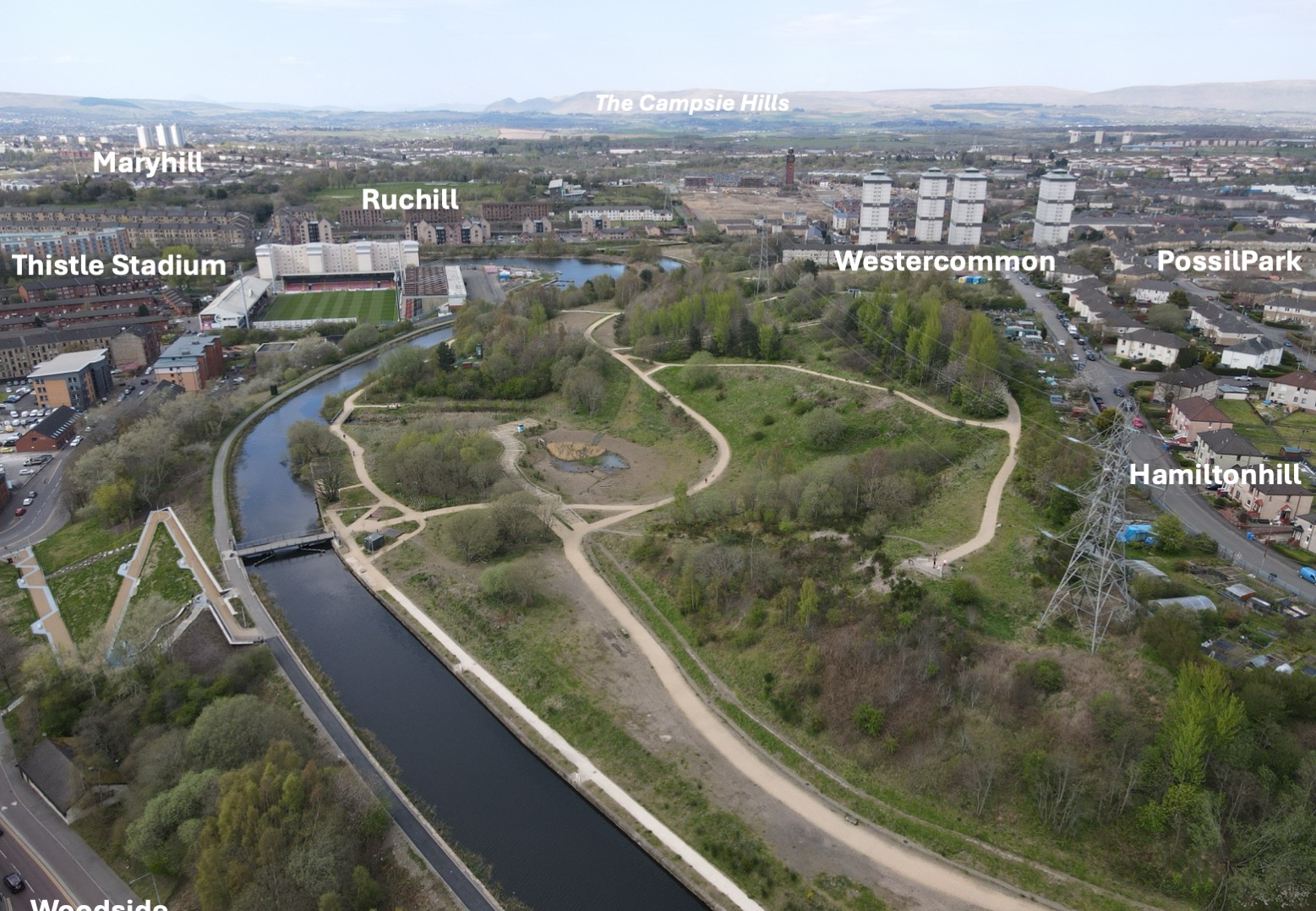
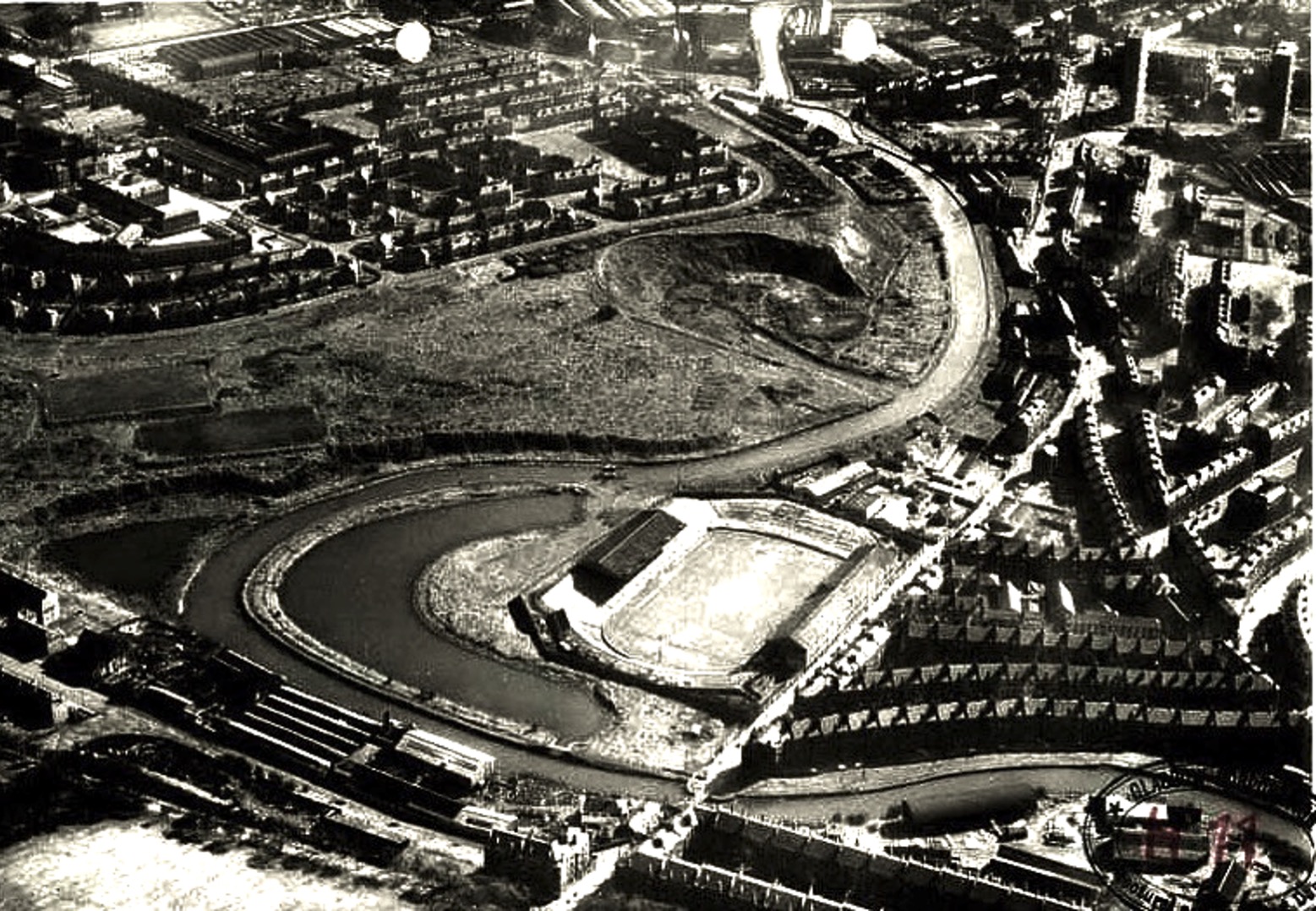
Urban Labs – Evia – Round 2
The artists Angela Liosi and Maria Gouveli, selected by Artit, participated in the second residency of our Evia-based Local Urban Labs (LUL).
The talented artists Zuzanna Kołodziej and Bartosh Zimniak, selected by Instytut Kultury Miejskiej, participated in the second residency of our Gdańsk-based Local Urban Labs (LUL).
Angela’s final art work, the sculpture “Water Walk” pays tribute to the wild and domestic animals that perished in recent catastrophes in Evia. The shape of the ark mirrors the image of floating carcasses of livestock, as well as the thousands of burned and drowned turtles from recent years in Evia. The vessel itself resembles an amphibious being, incorporating elements from many non-human species, creating a new creature able to navigate both land and water, adapting to two worlds. “Water Walk” will remain in Mela’s building in Limni, Evia, until September 2027.
Maria’s final art project, ”Nexus” is an attempt to creatively explore a landscape and a community. It is a way to map the artist’s physical and mental journey in which she creates real and imaginary trails to evoke and share a sense of place.
It is an art project without clear dividing lines between artwork, research, social engagement and documentation. Like a plexus, it is an interwoven combination of elements in one structure. All elements are correlated and mingled in a dynamic mapping process.
Meet the Artist – Angela Liosi
Angela Liosi is a Greek artist who lives and works between Athens and Iraklia, Greece, and is a graduate of the Athens School of Fine Arts. Her work has been featured in solo and group exhibitions internationally. Liosi’s drawings and sculptures explore the intersection of landscape, nature, and the unseen. Using materials such as wood, stone, and clay, her works investigate the counterpoint between the organic and the man-made, examining how landscapes and their materials are shaped in the absence of human interference.
The concept of an island holds significant allegorical weight in Liosi’s work, symbolising a deep connection with the natural world while simultaneously evoking a sense of loss and displacement. Her intention is not to represent a landscape in a literal sense but to explore it through abstraction. Working amidst the expanse of water, the sea features prominently in her creations and has long been a central theme.
Liosi focuses on what lies hidden in the sea’s depths—the mystery of the unseen, the transformation of objects, and the processes they undergo. Her works aim to bridge the physical and metaphysical realms, creating dioramas that merge real places with imagined ones. She describes this process as “ceremonial,” reflecting the profound and ritualistic nature of her artistic practice.
Meet the Artist – Maria Gouveli
Maria Gouveli was born in Piraeus, Greece and grew up in Heidelberg (Germany) and Komotini (Greece). Maria holds an Intergrated Masters degree from the Department of Visual and Applied Arts of the School of Fine Arts of the Aristotle University of Thessaloniki. Her work received the award of Excellence and Innovation by the Macedonian Museum of Contemporary Art and became part of the permanent collection.
Maria studied at the Akademie der Bildende Künste in Munich (Erasmus) and in 2007, funded by the Greek State Scholarship Foundation, completed a Masters of Arts in Art, Design and Education at Norwich University of the Arts (UK). Maria was selected in artist residency programs in England, Bulgaria, Italy, Slovakia and Greece.
She co-curated with Andriani Ventouri Kimolos Visual Art Walk on Kimolos island (2015-2017). Maria’s art practice is concerned with relational aesthetics and participation. Her projects often reflect her interest in the relationship between the natural and the cultural, developing notions of “becoming” and integration.
Maria lives in Oropos, is married, has two children and works in primary education. She loves gardening and learning to grow food. She is a certified yoga instructor and member of Filhos de Angola capoeira group.
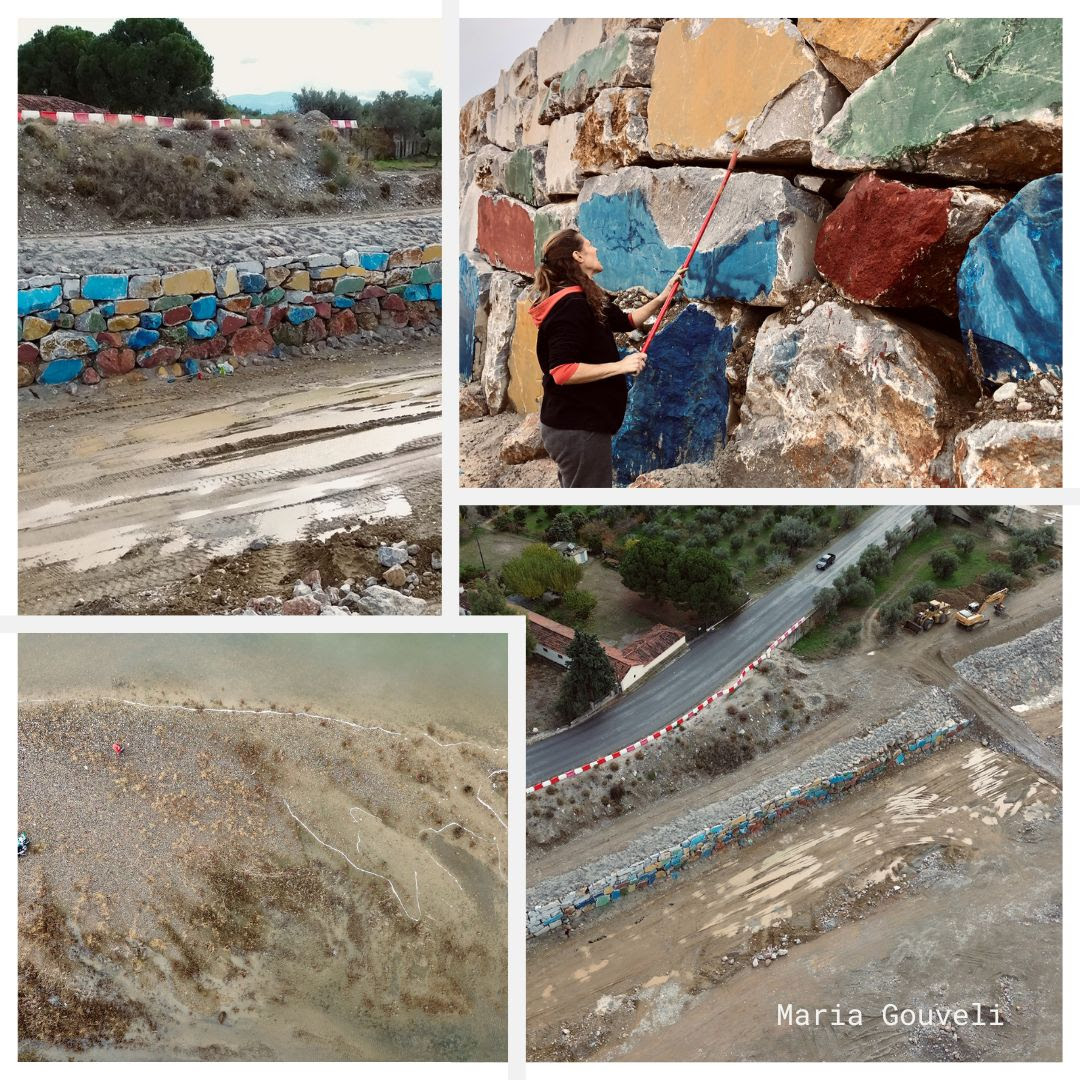
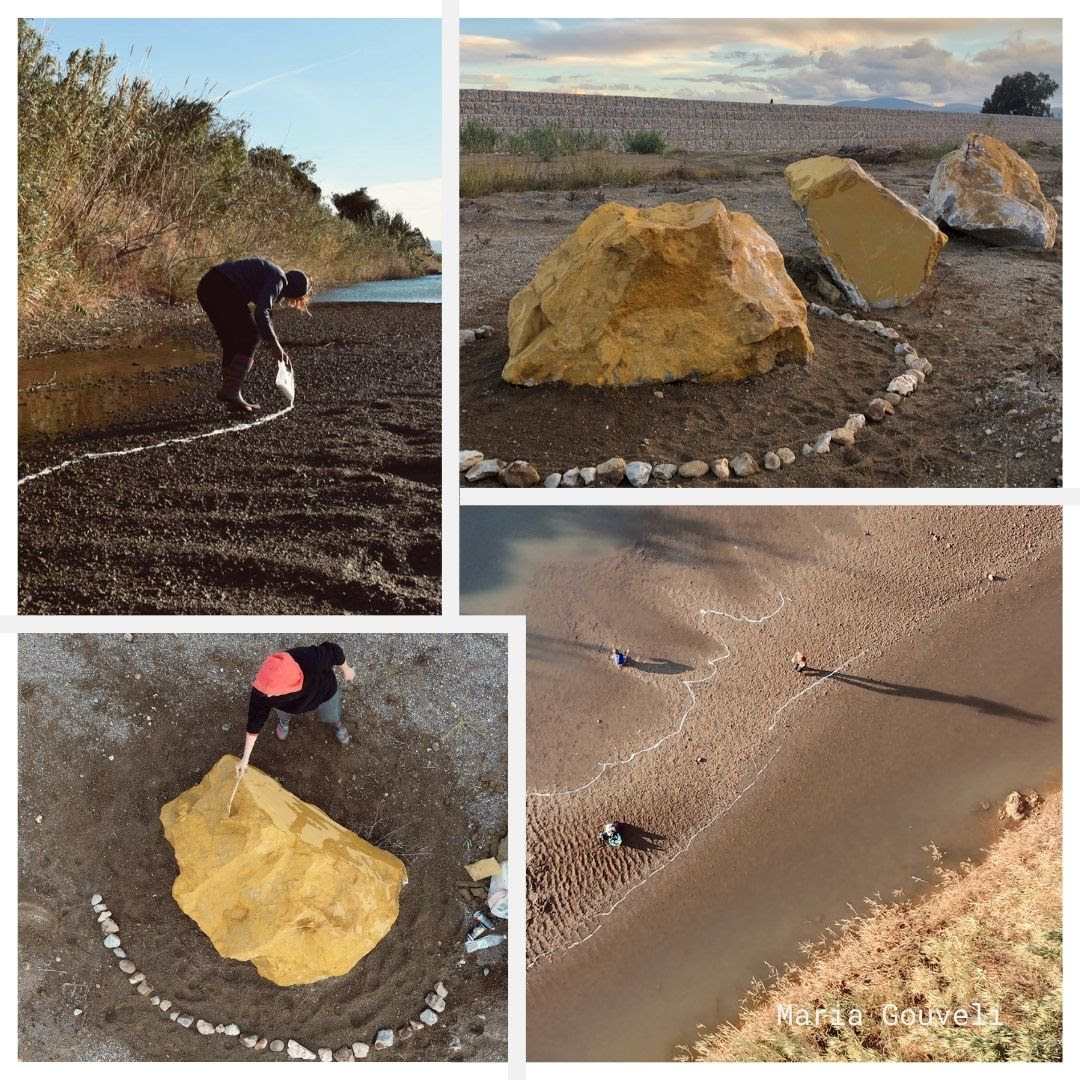
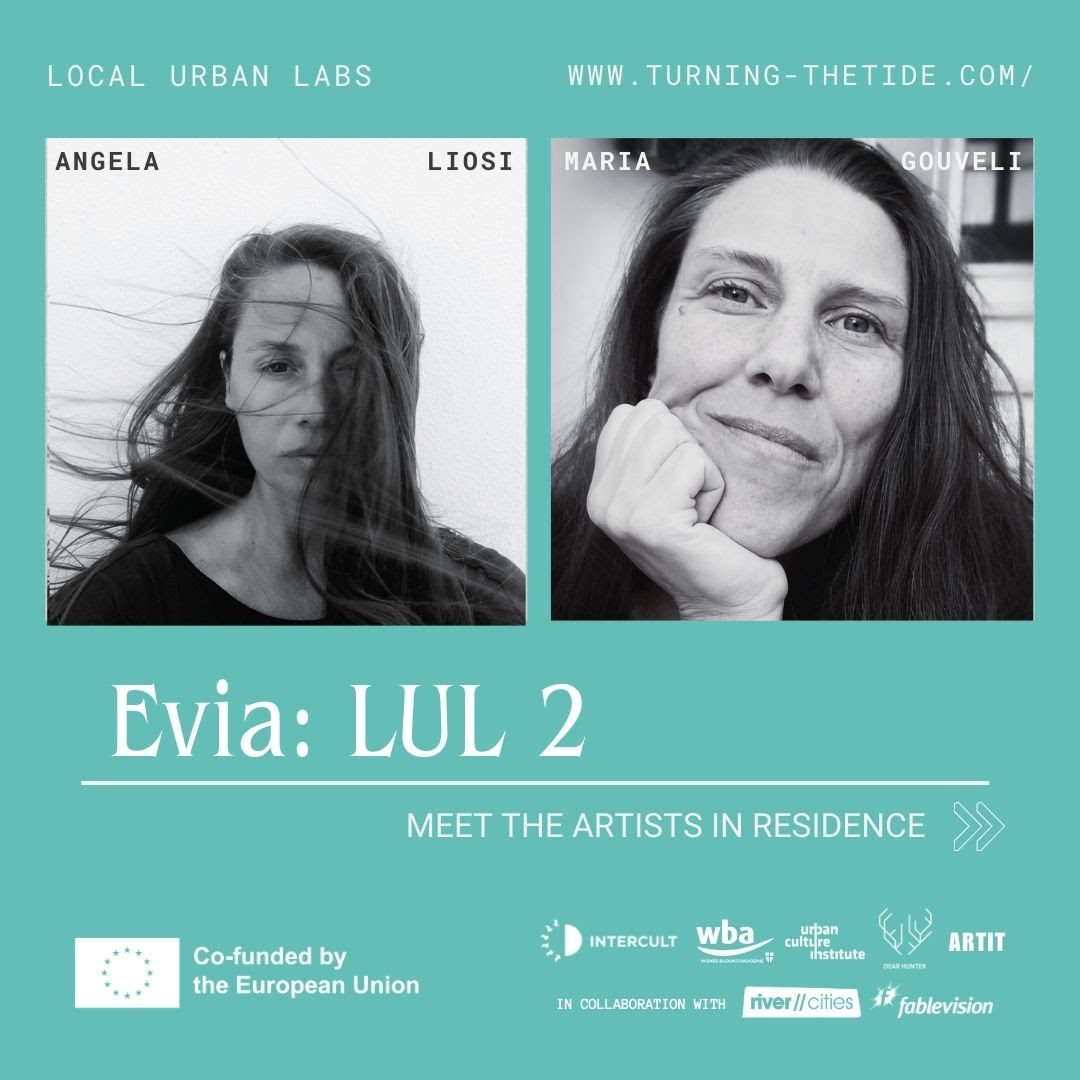
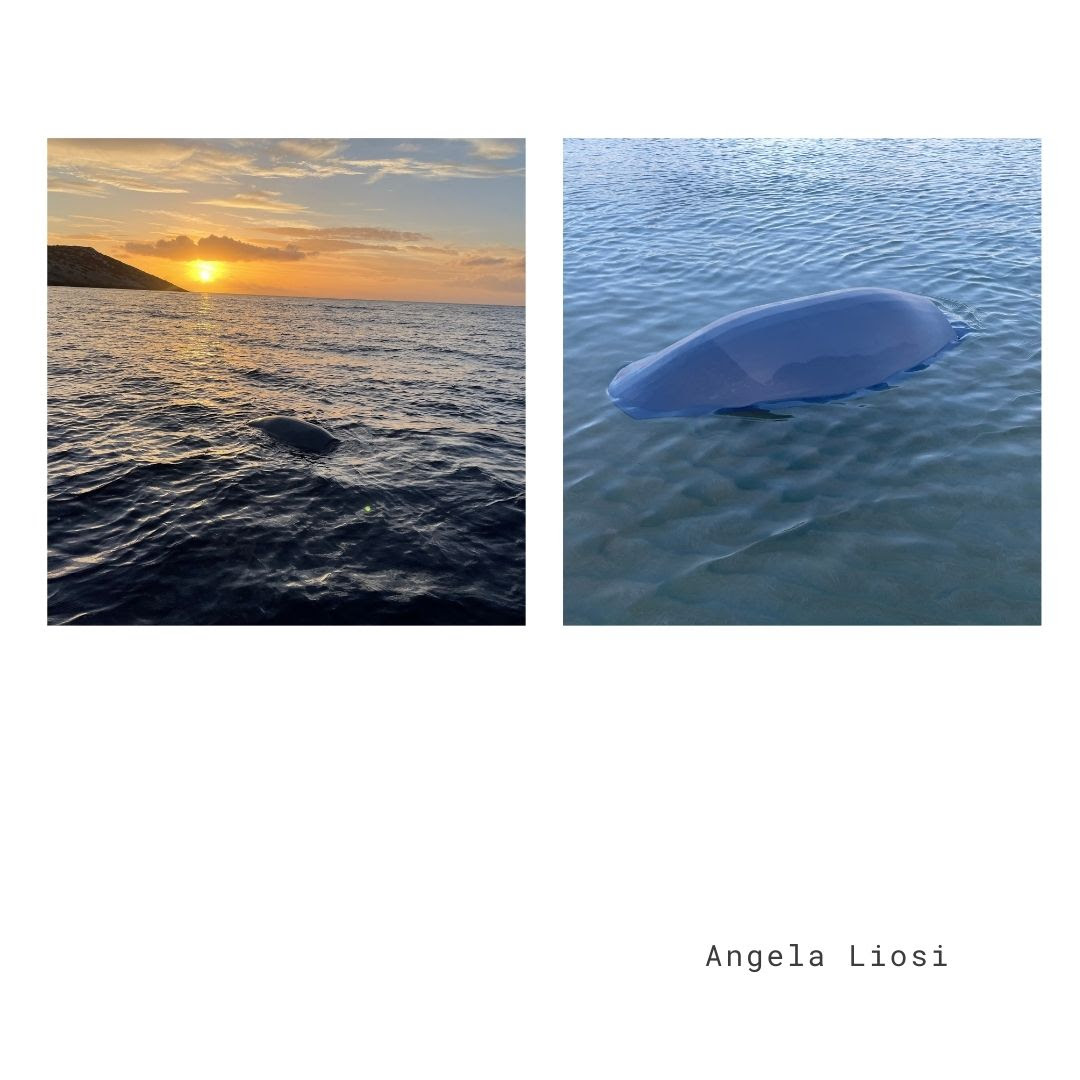
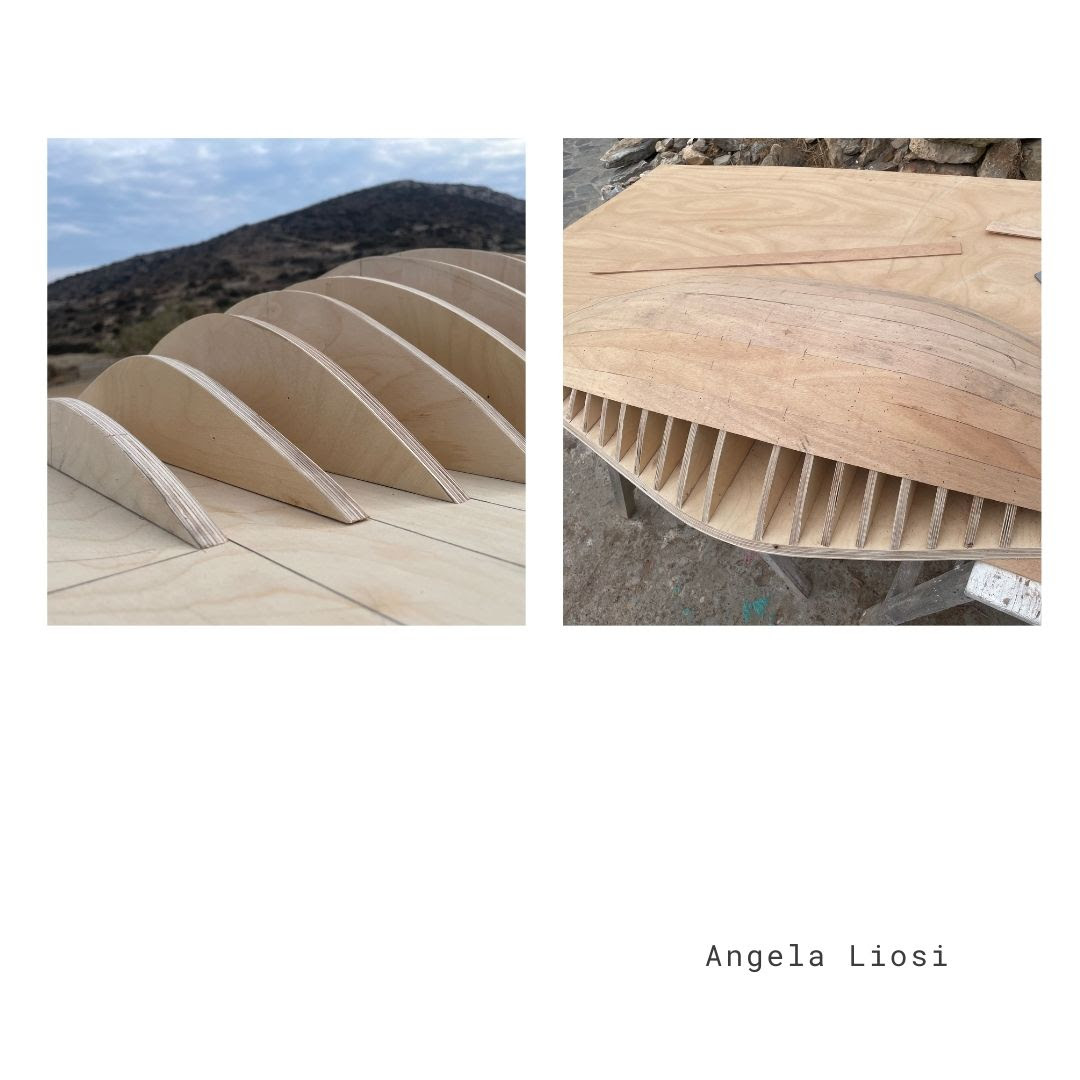
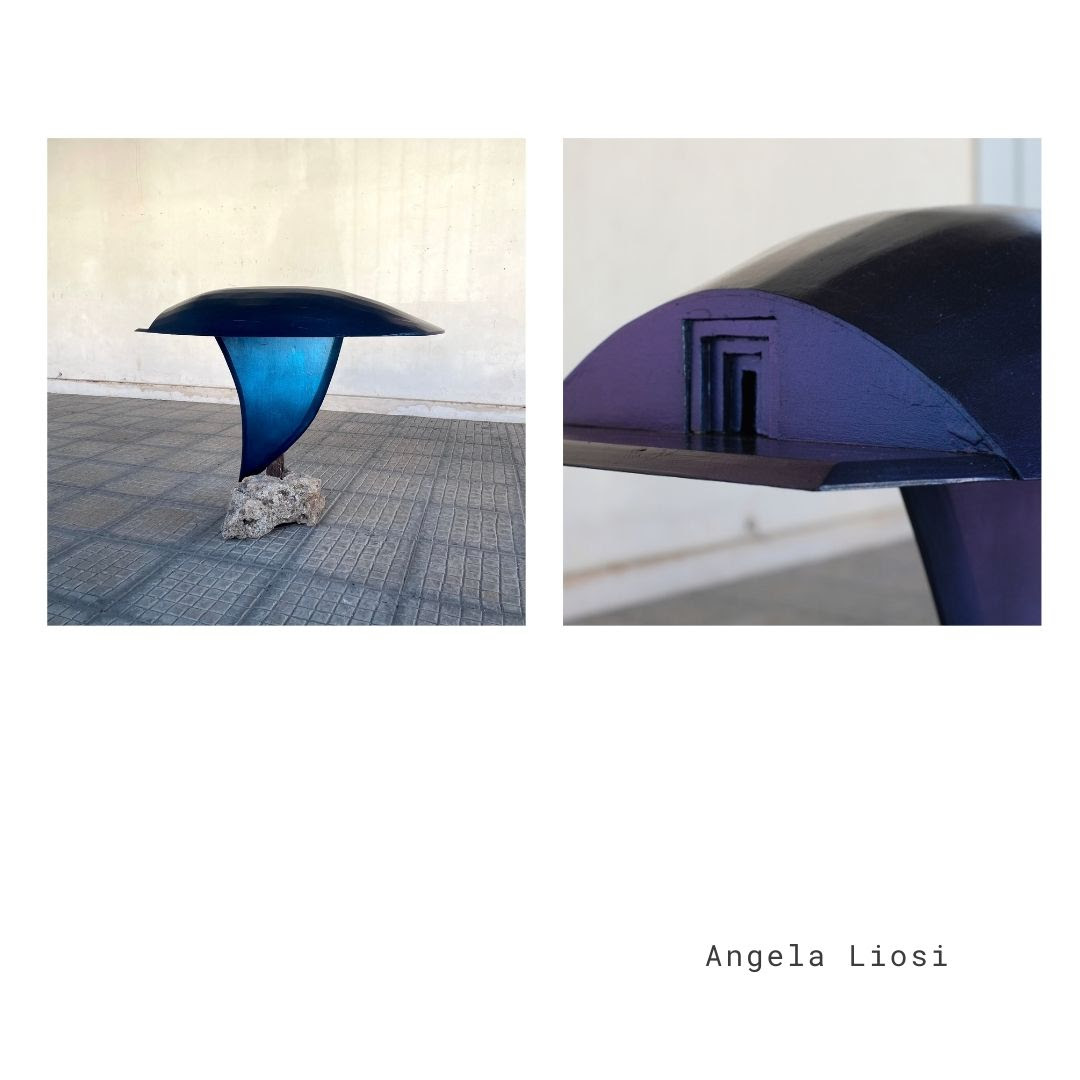
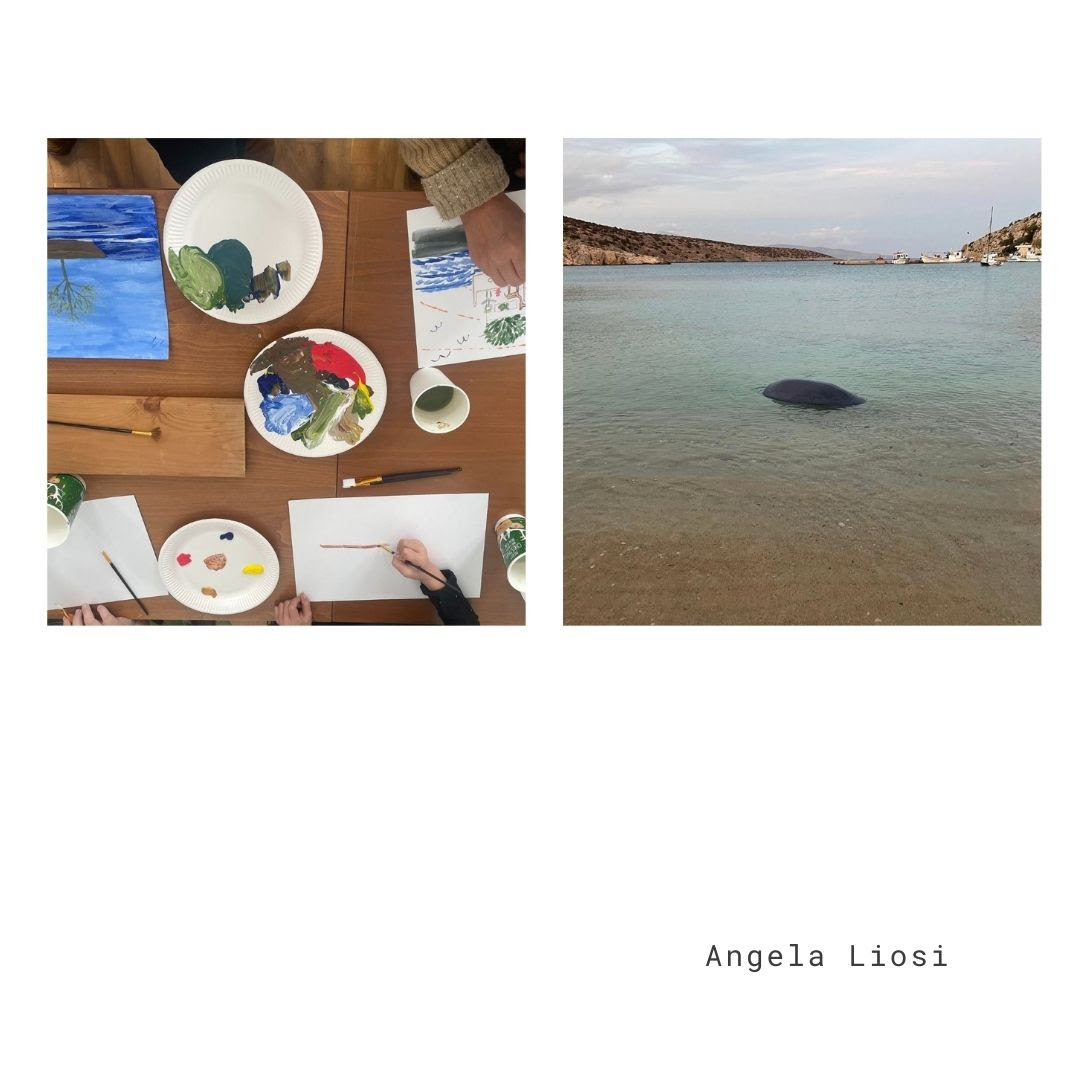
Introducing Zuzanna Kołodziej and Bartosh Zimniak
The talented artists Zuzanna Kołodziej and Bartosh Zimniak, selected by Instytut Kultury Miejskiej, participated in the second residency of our Gdańsk-based Local Urban Labs (LUL).
Zuzanna’s final piece for the project comprised two animations highlighting specific locations in the city where streams currently flow underground but have the potential to be renaturalised. By employing camera tracking and 3D design, she created immersive visualisations of how these areas might look following restoration, presenting a captivating vision of a more sustainable future.
Bartosh is working on a new artistic project that combines art and education. His endeavor takes the form of an educational game designed to raise awareness about endangered species inhabiting the Baltic Sea. Through an innovative approach, the project not only shares knowledge but also engages participants in an interactive way. The artist aims to highlight the importance of protecting marine biodiversity and encourage reflection on the ecological challenges facing the Baltic region. By merging creativity and a practical approach, his project has the potential to become a meaningful and impactful educational tool with artistic value, not only in the context of Poland but also on a European scale.
Meet the Artist – Zuzanna Kołodziej
Zuzanna Kolodziej/Vizuza is visual artist, whose work revolves around 3D animation, generative art and designing immersive experiences. In her creative work, she explores the sense of belonging to nature and the connection with own subconscious self, creating artworks that aim to resonate deeply with the audience. Her practice involves immersive projects that simultaneously stimulate the imagination and soothe the senses. Zuzanna is a graduate of the Faculty of Graphic Arts at the Academy of Fine Arts in Warsaw, currently living in Gdynia, Poland.
She has taken part in multiple exhibitions and shows, such as:
- Matrice – visuals for multisensory space by Joanna Jurga | Łódź Design Festival, 2020
- Ziemia / Soil | Solo Exhibition in ESKAEM Gallery, 2021
- Save the Earth – multimedia exhibition | Norblin Factory’s Artbox, Warsaw, 2022
- The Seed – audiovisual show with Martina Bertoni | Open Source Art Festival, Sopot, 2024
Meet the artist – Bartosh Zimniak
Bartosh Zimniak (b. 1991) is an interdisciplinary artist, art curator and cultural animator who combines performance, installation and socially engaged activities in his work.
He graduated in philosophy and social communication from the Adam Mickiewicz University in Poznań in 2013. He obtained his master’s degree in fine arts at the Academy of Fine Arts in Gdańsk, majoring in Intermedia, under the supervision of Katarzyna Krakowiak, PhD.
In 2017, he founded the art and comunnity engaded MEWKA Foundation in the seaside district of Gdańsk-Nowy Port. Together with the local community and artists, he organizes exhibitions, workshops and meetings with authors. Since 2021, he organises in MEWKA Foundation the “Port Artistic Residency” program, which has so far hosted artistic people from Polish, Ukraine and Tenerife.
He is currently a Goethe-Institute fellow in the Culture Moves Europe programme, during which he will carry out a project in the Canary Islands in cooperation with the University of La Laguna in Tenerife upcoming winter 2024/25.
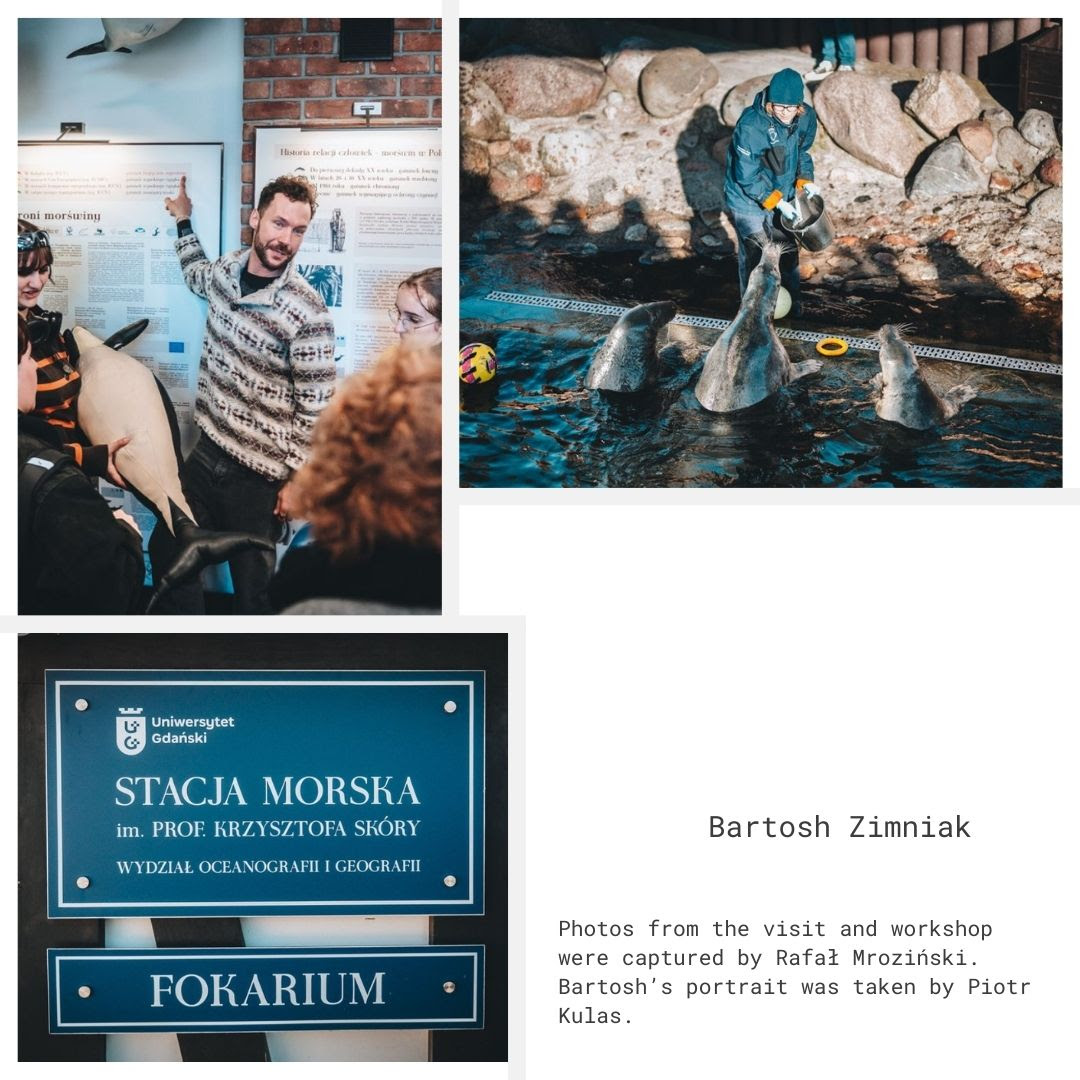
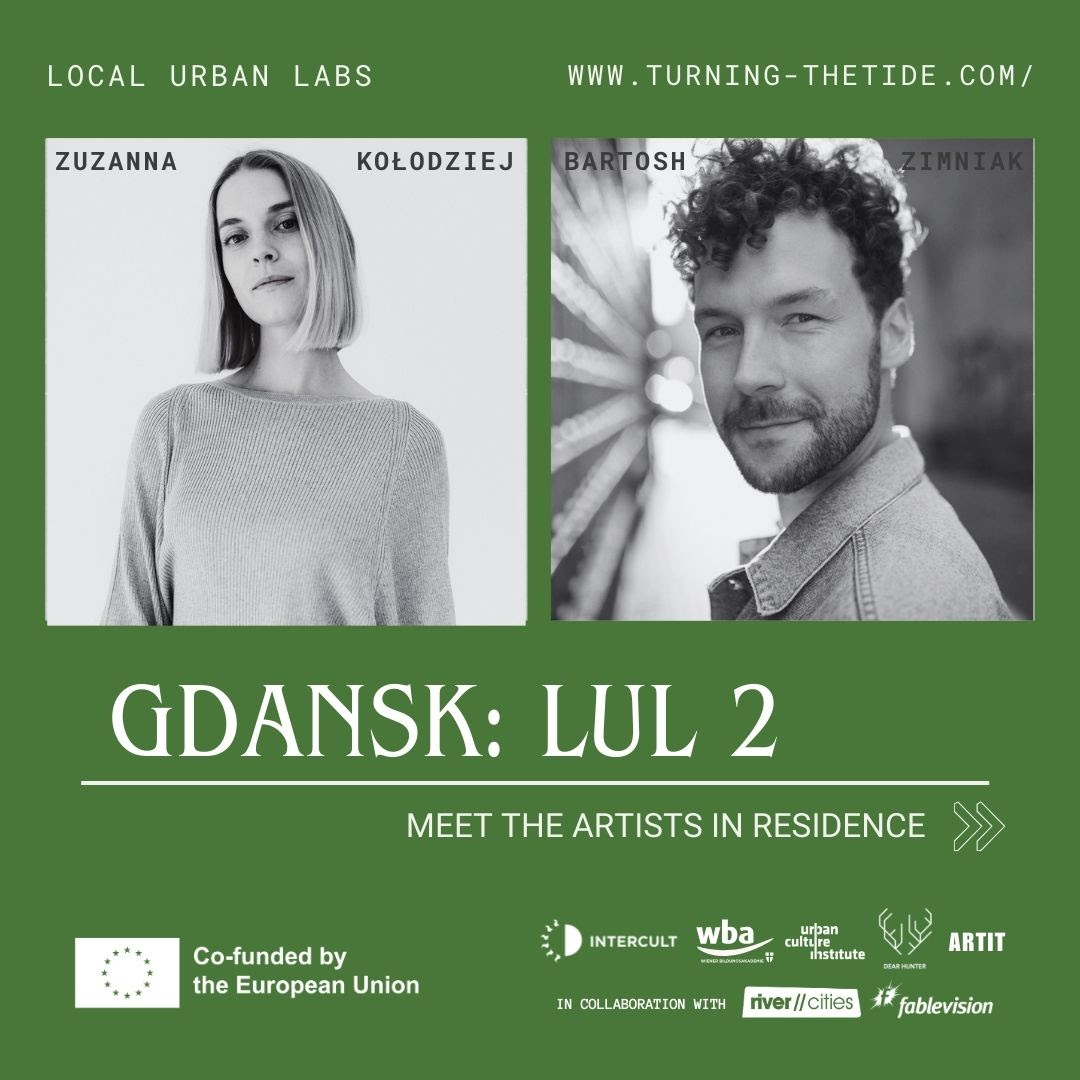
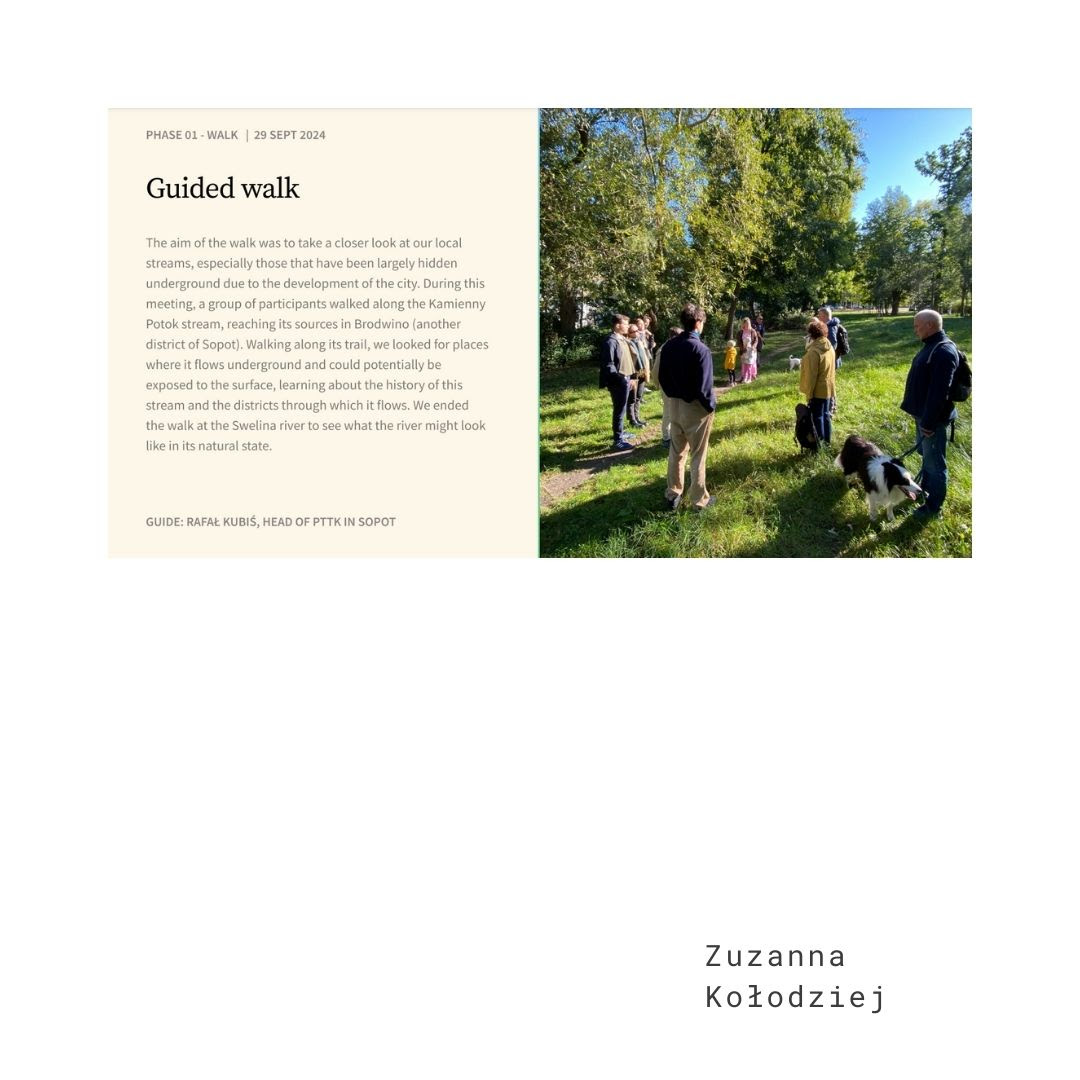
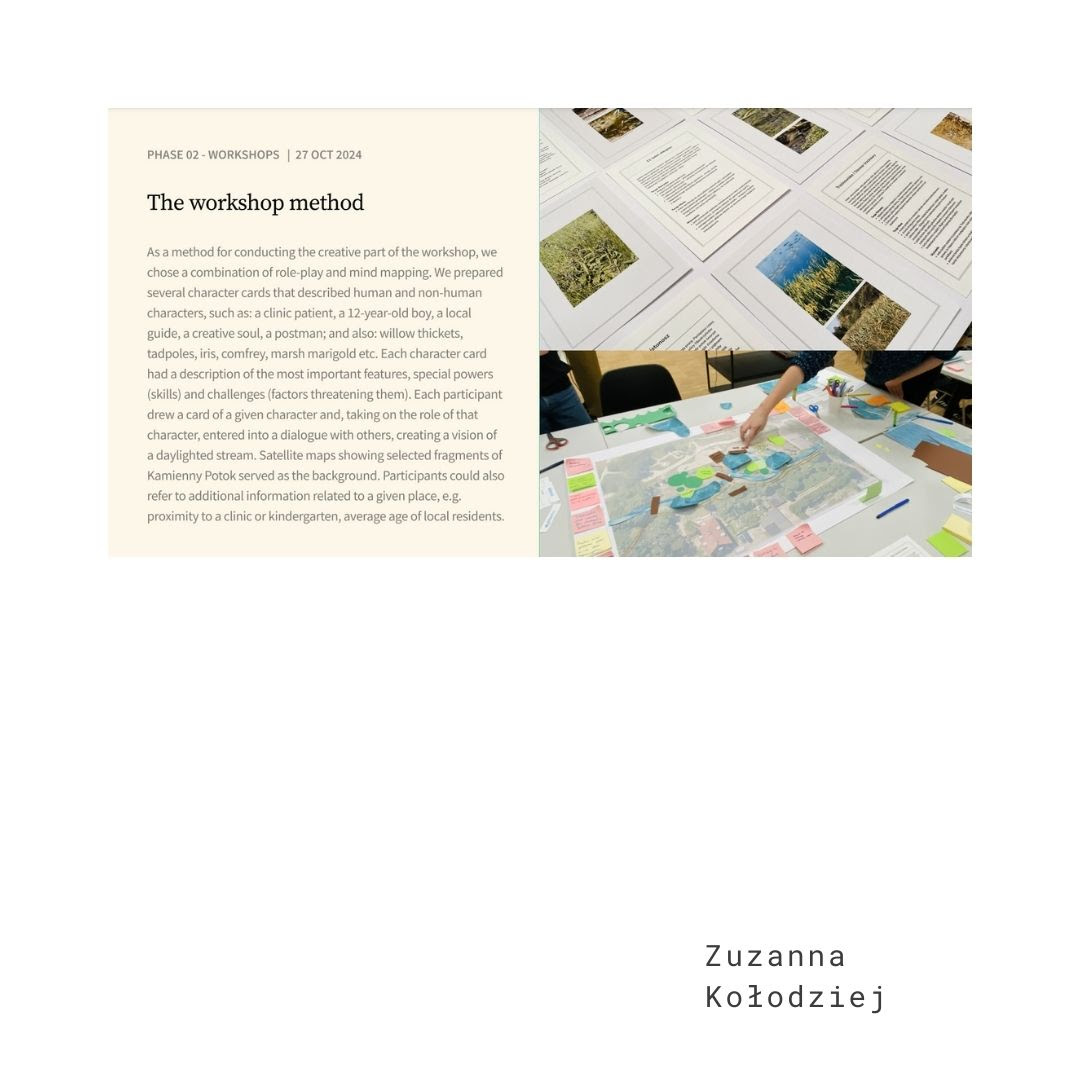
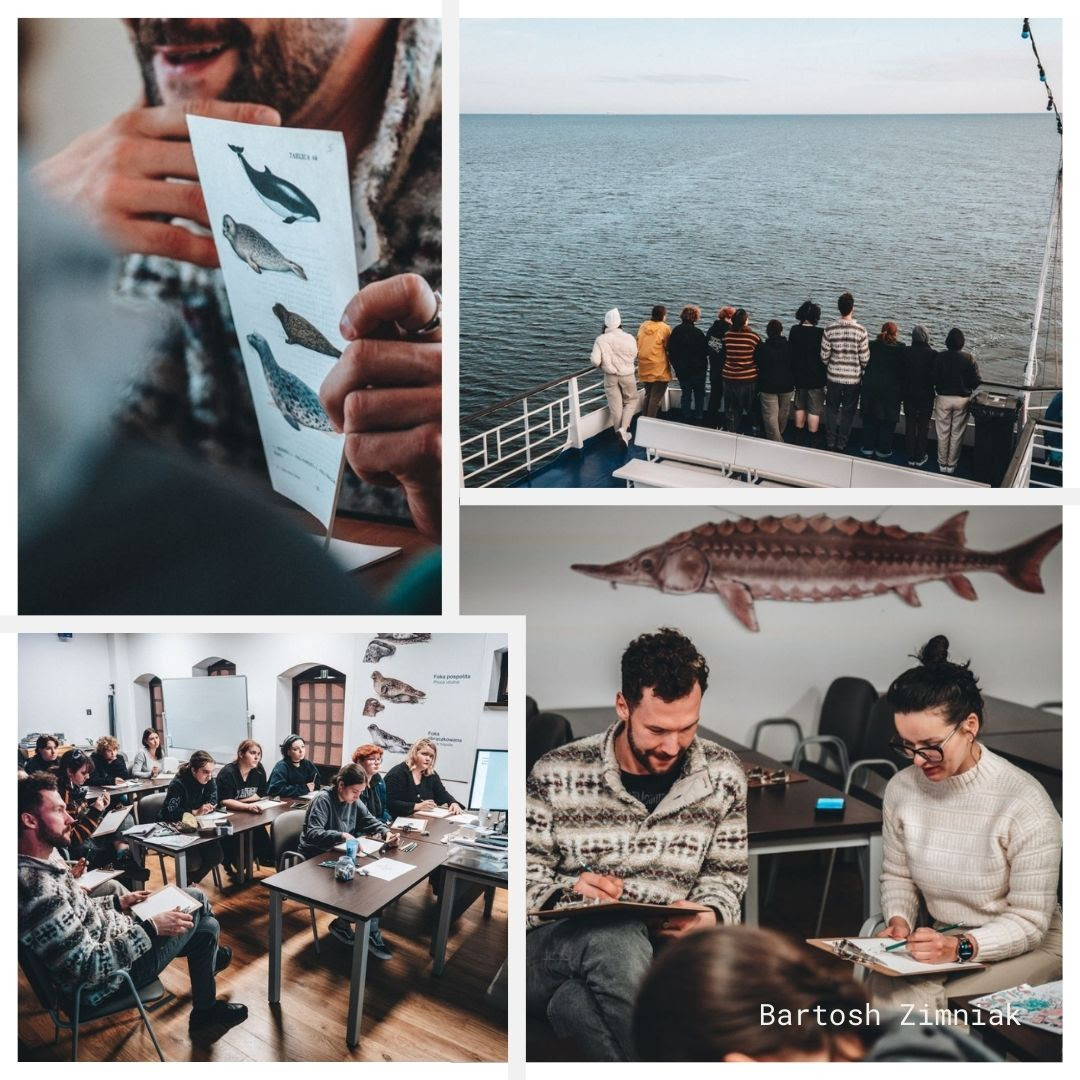
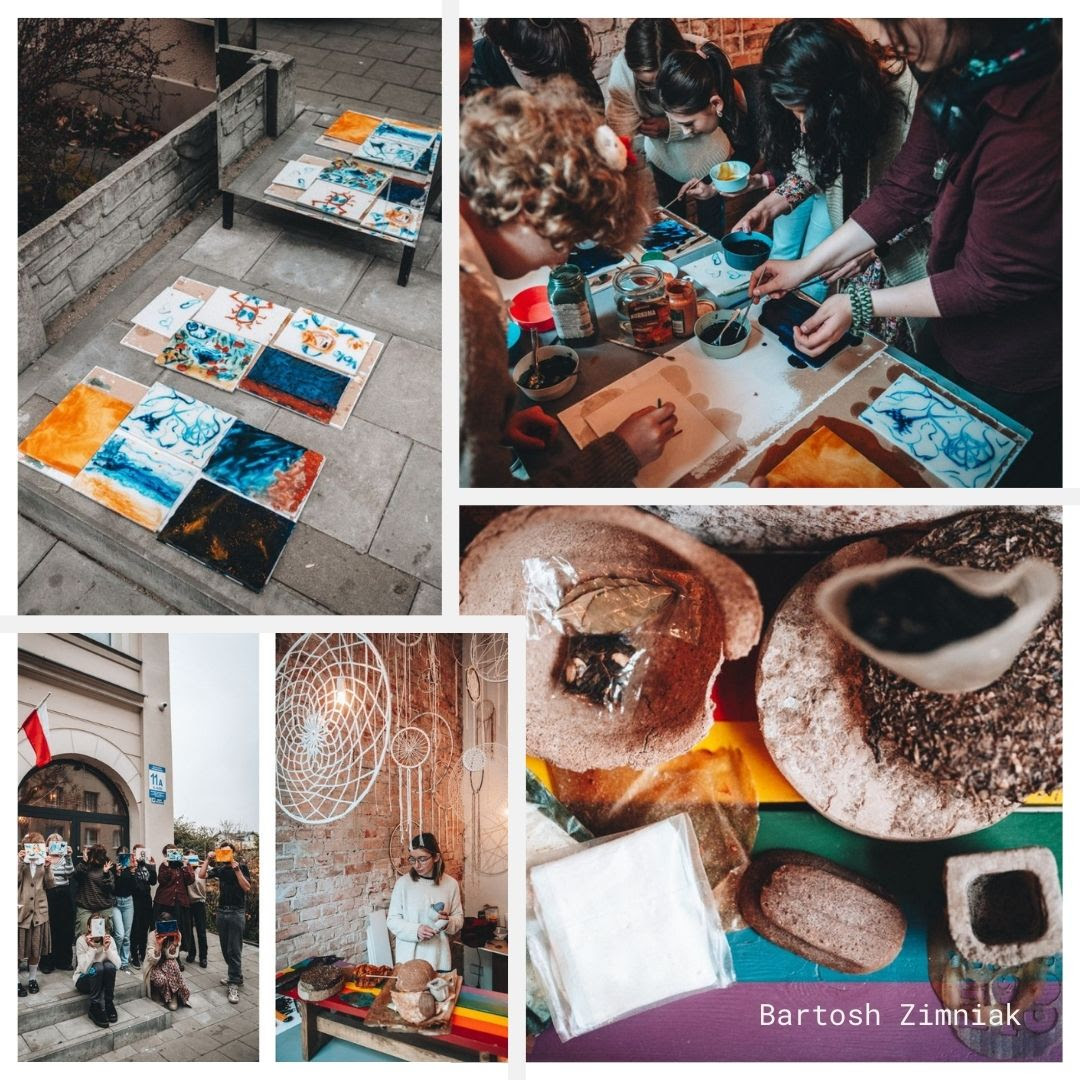
Open Call – Turning the Tide 2025 residencies in Evia, Greece – November 29, 2024
Are you an artist based in Austria (Vienna), Sweden (Stockholm) or Scotland who is passionate about leveraging art to address pressing environmental challenges in waterfront cities? Join us in our Climate x Art initiative, Turning the Tide (TTT), which seeks to creatively respond to the climate crisis and its threat to waterfront communities.
Through this unique residency opportunity, 3 international artists (one from each country) will have the opportunity to contribute to a transdisciplinary dialogue and create tangible works of art that amplify the local voices of Evia, Greece and raise awareness about the region’s climate challenges.
About Turning the Tide (TTT)
TTT is an ambitious artistic intervention and transdisciplinary dialogue project, designed to harness the power of art to spark conversations and drive action on climate change and climate justice. By collaborating with socially engaged artists and local communities in four waterfront cities, TTT aims to explore the role of art in reshaping the narrative on climate issues.
Turning the Tide is an initiative by Intercult (Sweden), Artit (Greece), Wiener Bildungsakademie (Austria), Dear Hunter (Netherlands), Urban Culture Institute (Poland), in collaboration with Fablevision (Scotland) and River//Cities network. For more information, please visit TTT’s website.
Residency Details
The residency in Evia, the second-largest island of Greece offers three selected artists a 28-day residency from April 19th, 2025 until May 17th, 2025. During this time, artists will have the opportunity to conduct cultural mapping, research, engage with the local community and co-create artistic works with the public’s support, inspired by their experiences and the insights gained during the residency. The final works will be presented in the planned Evia International Lab in the presence of all stakeholders between May 14-16th, 2025.
Expectations and Engagement
The selected artists participating in the residency are expected to produce tangible artistic works that reflect their engagement with the local context and climate-related themes. These works will be showcased both during the Evia International Lab in mid-May 2025, and digitally, via the TTT website thereafter, providing a platform for artists to share their perspectives with a global audience.
Artists will be further invited to actively participate in online meetings before, during, and after their residency to meet the team, discuss their ideas, and receive feedback and guidance. Moreover, they will be expected to engage in any upcoming local labs (in their respective country), facilitating artistic and social interactions with the local community and the other selected artists. These labs offer artists valuable opportunities to collaborate, exchange ideas, and gain insights into the cultural and environmental context of Evia.
Accommodation and Support
During the residency, the selected artists will be accommodated in designated spaces within Evia, providing a conducive environment for artistic exploration and community engagement. Our team will provide support and guidance throughout the residency to ensure that artists have a fulfilling and enriching experience.
So, join us in Evia and be part of a transformative journey where art meets activism to address the urgent challenges waterfront cities are facing.
Eligibility and Selection Criteria
This opportunity is exclusively open to Austria (Vienna)-based, Sweden (Stockholm)-based and Scotland-based artists who aspire to contribute to our transformative initiative in addressing climate change through art. Artists who wish to explore the intersection of art and environmental sustainability are encouraged to apply.
The selection process will be a joint effort – involving leading art organisations and curators from all associated partners. These esteemed professionals will collectively review applications and ensure a fair and inclusive selection process. The artist selection will be based on:
- The participant’s genuine interest and relevance to the theme of addressing the climate crisis through art.
- Their ability and readiness to actively participate in the art residency and offer diverse perspectives.
- Their focus on community engagement and participative processes.
- Their collaborative spirit and willingness to contribute to the overall project and work alongside fellow local and international artists during the residency.
- Their ability to demonstrate strong time management and excellent communication skills.
- Proficiency in English.
Previous experience in similar projects will be considered a plus but is not required.
Residency Awards and Artist Benefits
Three selected international artists will get to travel to Evia, Greece and will receive the following:
- Compensation: A gross amount of €2600, to cover the costs of stay and artist compensation during the residency. The final amount paid to the artist will be subject to deductions based on the national tax regulations of the country in which the artist resides, as well as the national law of the organising body.
- Residency Logistics Support: Additional comprehensive coverage for travel expenses and accommodation throughout the residency period.
- Production Budget: A production budget (up to €600), upon approval, to support the creative process and the realization of artistic projects.
- Participation in Physical & Online Exhibition: Showcase your artwork at the end of the International Lab and to a global audience by digitally exhibiting your process and final works on TTT’s platform, amplifying your voice on climate action.
- Media Exposure: Gain exposure through media channels, sharing your perspectives and artistic vision with a broader audience.
- Networking and Educational Opportunities: Engage in workshops, discussions, and networking events and activities with fellow artists, scholars, activists and experts, fostering collaboration and growth.
- Community Engagement: Participate in local labs and community events, fostering meaningful connections and collaboration with the local community.
- Professional Development: Enhance your artistic practice and broaden your horizons through diverse cultural experiences and exchanges.
This residency is not just an award – it’s a transformative experience that empowers artists to make a difference through their creativity. Join us in Evia and be part of a global movement using art to drive positive change.
If you are interested in the residency in Evia, Greece (April 19th, 2025 until May 17th, 2025) you are welcome to apply via these links by the 1st of February 2025.
- Google form – Austria (Vienna): https://shorturl.at/vI3Qp
- Google form – Sweden (Stockholm): https://shorturl.at/cqpNl
- Google form – Scotland: https://shorturl.at/uSoEY
The applicants will get information about the decision by the second week of February.
International Artists Jenny Marketou and Kamila Chomicz Spend their First Week in Vienna
With the arrival of the two internationally renowned artists Jenny Marketou from Greece and Kamila Chomicz from Poland, an intensive and inspiring first stay in Seestadt began. These two artists are part of the Turning the Tide project, which deals with the role of art and culture in addressing climate change. In their first week in Vienna, they experienced a varied program full of new impressions, discussions, and encounters.
Meeting with Gabriele Plank
At the beginning of the week, Jenny and Kamila met Gabriele Plank, District Councilor of Donaustadt and an enthusiastic advocate of Seestadt. In their first meeting, the artists exchanged ideas and projects they plan to develop during their four-week stay. Gabriele Plank, who plays an important role in urban development, provided valuable insights into the dynamic structure of Seestadt and ongoing developments. She was particularly interested in the ecological approaches and sustainable aspects of Jenny and Kamila’s artistic work.
Extensive Tour with Gunther Laher
A highlight of the first week was an extensive tour of Seestadt, led by Gunther Laher, program manager of the City of Vienna and responsible for urban development projects such as Seestadt. Together with the artists, Gabriele Plank, and other participants, Seestadt was explored in all its facets. Gunther Laher provided insights into the urban planning vision of Seestadt while also highlighting the ecological challenges that lie ahead. During the tour, innovative sustainable water usage projects and the importance of green spaces for the microclimate of Seestadt were also discussed.
Discussions and Workshops with Dear Hunter
A central part of the week was the intense discussions and workshops with Dear Hunter (Marlies Vermeulen and Remy Kroese). The Dutch artist duo has created a detailed map of Seestadt over the past few weeks, focusing on the element of water. In joint sessions, Jenny, Kamila, and Dear Hunter discussed artistic approaches, the connection between humans and nature, and how urban environments influence artistic projects. These discussions served as an essential foundation for the further work of the two artists within the Turning the Tide project.
Meeting with Peter Filipczak from the WBA
Another highlight of the week was the meeting with Peter Filipczak, a renowned expert and biologist who works for the Wiener Bildungsakademie. In a detailed discussion, Jenny and Kamila exchanged ideas with Peter about the biodiversity in Seestadt. Peter, who has a deep passion for Vienna’s flora and fauna, shared his knowledge of the local plant and animal life and the challenges posed by climate change. This meeting inspired the artists to incorporate ecological issues into their works and engage more deeply with Seestadt’s natural surroundings.
Meeting with Christian Haas and Pia Maria Wieninger
An important meeting during the first week was the exchange with Christian Haas, District Councilor of Donaustadt and an expert in sustainable energy and electricity supply. In a lively conversation, Jenny and Kamila discussed the challenges associated with the energy transition and climate change. Christian Haas explained the current renewable energy projects in Vienna and how they are integrated into sustainable urban development. In addition, the artists had the opportunity to meet with Pia Maria Wieninger, a councillor, and discuss women’s political issues in Vienna and Austria, which play a central role in local governance.
Visit to the Natural History Museum
A special excursion took Jenny and Kamila to the Natural History Museum of Vienna, where they engaged with the rich yet highly endangered biodiversity. Together with museum experts, they discussed the effects of species extinction and the global loss of biodiversity. These discussions sharpened the artist’s awareness of the ecological challenges we face and offered new inspiration for their artistic work, which deals with the relationship between humans and nature.
Visit to the Weekly Market
The visit to the weekly market in Seestadt provided a pleasant conclusion to the first week. Here, Jenny and Kamila experienced the vibrant community of Seestadt residents firsthand and immersed themselves in the daily life of the district. The market not only offered them the opportunity to discover local products but also to connect with the people of Seestadt and gain initial impressions of the neighbourhood’s social structure.
Dear Hunter Visit Kaiserbrunn
Dear Hunter had the opportunity to visit Kaiserbrunn, the place where one of the high spring water pipelines begins, that transports fresh spring water to Vienna. Kaiserbrunn, located in the Lower Austrian Alps, plays a central role in Vienna’s water supply. The crystal-clear water, which is delivered untreated directly into the city via the high spring pipelines, originates here. The visit provided Dear Hunter with fascinating insights into the technical achievement and the ecological balance necessary to ensure a sustainable water supply for Vienna.
The first week of Jenny Marketou and Kamila Chomicz was a promising and inspiring start to their artistic stay in Seestadt. They gained deep insights into the urban structure and the natural environment of this unique district while experiencing the connections between humans, nature, and architecture in a completely new way. Both artists were impressed by the diversity and richness of the urban and natural ecosystems that play such a central role in Seestadt.
The discussions about environmental protection, sustainability, and the importance of biodiversity have awakened a deep awareness in both artists of the challenges of our time. The initial ideas they developed during this intensive week are not only artistic responses to ecological questions but also a plea for more respect and mindfulness toward the environment. They emphasize the need to rethink the relationships between the city and nature, humans, and the environment in the age of climate change.
In the context of Turning the Tide, their work will draw attention to important issues such as the significance of water as a source of life, the preservation of biodiversity, and the promotion of sustainable urban development. Through collaboration with other artists, scientists, and the local community, a platform for exchanging ideas will be created to strengthen our relationship with nature and lead to a deeper understanding of the ecological and social challenges we face. The coming weeks promise to delve further into these themes and transform them into impressive artistic works that will attract attention both in Seestadt and internationally, inviting reflection.
In summary, two weeks since the project’s start in Vienna, Bernd Herger, project manager for the Wiener Bildungsakademie in the context of Turning the Tide, says: ‘Art and culture have the power to spark change and reach people in ways that go beyond words. In times of climate crisis, it is crucial to use these tools in solidarity to raise awareness of the challenges we face and develop solutions together. Through collaboration, creativity, and societal solidarity, we can shape a more sustainable and just future.’
*Special Announcement: Gallery Day in Seestadt on October 11th*
At the end of their first week, Jenny and Kamila are looking forward to the upcoming events, especially Gallery Day in Seestadt on October 11th. As part of this event, the two international artists, along with other local artists, will present an exhibition that showcases their works and insights from their first weeks in Seestadt. This group exhibition is part of the Turning the Tide project and will unite both local and international perspectives on ecological and societal issues. Stay tuned for more info!
Vienna International Lab – Final Event – October 1, 2024
On October 18th and 19th, the final event of the International Lab in Vienna, as part of the Turning the Tide project, will take place at the Kunstraum Seestadt, located at Maria Tusch Straße 22, 1220 Vienna. This two-day event will showcase the creative works of international artists Jenny Marketou (Greece) and Kamila Chomicz (Poland), alongside contributions from local Viennese artists who have participated in the lab. These exhibitions and presentations mark the culmination of months of interdisciplinary collaboration, exploring how art and culture can respond to climate change and inspire environmental action.
A particular highlight of the event will be the presentation of a map of Seestadt Aspern, created by the Dutch artists Dear Hunter – Marlies Vermeulen and Remy Kroese. Their innovative mapping method has documented not only the physical aspects of the Seestadt area but also the interactions between its residents and their urban environment. This detailed visual narrative will be a central piece of the event, highlighting the relationship between community and space in the face of climate challenges.
Adding to this is a special discussion with Johannes Tovatt, the renowned architect behind the master plan of Seestadt Aspern, who will provide insights into the forward-thinking urban design and how it integrates environmental sustainability. Tovatt’s work on the Seestadt masterplan is internationally recognised for its focus on creating an inclusive, environmentally resilient urban space. This conversation will touch on the vision behind Seestadt as a model for future cities and its efforts to address the impact of climate change through innovative urban planning.
The Turning the Tide project is a transformative European cooperation initiative co-funded by Creative Europe. It brings together six partner organisations from Austria, Poland, Sweden, the Netherlands, and Greece, each working on creative solutions to climate change, particularly focusing on waterfront zones. The Polish partner, IKM – Urban Culture Institute, is particularly involved in fostering urban cultural practices that engage communities in addressing environmental challenges. The project aims to explore the role of art and culture as dynamic forces in environmental action, empowering local communities to respond to the ongoing climate crisis.
Vienna’s International Lab is one of several labs held across Europe, with each city addressing unique environmental challenges. The final event in Vienna will bring together artists, cultural practitioners, environmental experts, and local leaders to engage in discussions, exhibitions, and workshops. The focus will be on the role of water in urban life, with Seestadt Aspern serving as a key example of how sustainable urban design can respond to climate change. The presentations and discussions will provide a platform to reflect on the intersection of art, culture, and environmental stewardship.
Seestadt Aspern is one of the largest urban development projects in Europe, designed as a model for sustainable living. The project focuses on integrating green spaces, energy-efficient buildings, and sustainable transport solutions to create an environmentally friendly and livable urban district. The artificial lake at the heart of Seestadt serves not only as a recreational area but also plays a key role in the district’s water management, reflecting the “sponge city” principle of allowing rainwater to permeate the ground rather than flow into the sewage system.
In addition to the artistic presentations, the event will feature panel discussions, where experts from the fields of art, urban planning, and environmental science will share their perspectives on how creative practices can raise awareness of climate challenges. The program will also highlight the work of Wiener Bildungsakademie (WBA), an institution dedicated to promoting civic engagement, education, and cultural projects that address sustainability and social issues. WBA has been an integral part of the Turning the Tide project, supporting its activities in Vienna.
A detailed program for Seestadt Symposium will be released soon, but the event timings are as follows:
- Friday, October 18th: 17:00 to 21:00
- Saturday, October 19th: 10:00 to 14:00
The event will take place at Kunstraum Seestadt, Maria Tusch Straße 22, 1220 Vienna, and is open to the public. Attendees are encouraged to join the discussions, view the exhibitions, and engage with the artists and experts who are contributing to this important conversation on climate action and urban sustainability.
For more details and the upcoming program, keep an eye on our website and follow us on social media!
Evia Local Urban Labs: Round 1 – September 16, 2024
On October 18th and 19th, the final event of the International Lab in Vienna, as part of the Turning the Tide project, will take place at the Kunstraum Seestadt, located at Maria Tusch Straße 22, 1220 Vienna. This two-day event will showcase the creative works of international artists Jenny Marketou (Greece) and Kamila Chomicz (Poland), alongside contributions from local Viennese artists who have participated in the lab. These exhibitions and presentations mark the culmination of months of interdisciplinary collaboration, exploring how art and culture can respond to climate change and inspire environmental action.
A particular highlight of the event will be the presentation of a map of Seestadt Aspern, created by the Dutch artists Dear Hunter – Marlies Vermeulen and Remy Kroese. Their innovative mapping method has documented not only the physical aspects of the Seestadt area but also the interactions between its residents and their urban environment. This detailed visual narrative will be a central piece of the event, highlighting the relationship between community and space in the face of climate challenges.
Adding to this is a special discussion with Johannes Tovatt, the renowned architect behind the master plan of Seestadt Aspern, who will provide insights into the forward-thinking urban design and how it integrates environmental sustainability. Tovatt’s work on the Seestadt masterplan is internationally recognised for its focus on creating an inclusive, environmentally resilient urban space. This conversation will touch on the vision behind Seestadt as a model for future cities and its efforts to address the impact of climate change through innovative urban planning.
The Turning the Tide project is a transformative European cooperation initiative co-funded by Creative Europe. It brings together six partner organisations from Austria, Poland, Sweden, the Netherlands, and Greece, each working on creative solutions to climate change, particularly focusing on waterfront zones. The Polish partner, IKM – Urban Culture Institute, is particularly involved in fostering urban cultural practices that engage communities in addressing environmental challenges. The project aims to explore the role of art and culture as dynamic forces in environmental action, empowering local communities to respond to the ongoing climate crisis.
Vienna’s International Lab is one of several labs held across Europe, with each city addressing unique environmental challenges. The final event in Vienna will bring together artists, cultural practitioners, environmental experts, and local leaders to engage in discussions, exhibitions, and workshops. The focus will be on the role of water in urban life, with Seestadt Aspern serving as a key example of how sustainable urban design can respond to climate change. The presentations and discussions will provide a platform to reflect on the intersection of art, culture, and environmental stewardship.
Seestadt Aspern is one of the largest urban development projects in Europe, designed as a model for sustainable living. The project focuses on integrating green spaces, energy-efficient buildings, and sustainable transport solutions to create an environmentally friendly and livable urban district. The artificial lake at the heart of Seestadt serves not only as a recreational area but also plays a key role in the district’s water management, reflecting the “sponge city” principle of allowing rainwater to permeate the ground rather than flow into the sewage system.
In addition to the artistic presentations, the event will feature panel discussions, where experts from the fields of art, urban planning, and environmental science will share their perspectives on how creative practices can raise awareness of climate challenges. The program will also highlight the work of Wiener Bildungsakademie (WBA), an institution dedicated to promoting civic engagement, education, and cultural projects that address sustainability and social issues. WBA has been an integral part of the Turning the Tide project, supporting its activities in Vienna.
A detailed program for Seestadt Symposium will be released soon, but the event timings are as follows:
- Friday, October 18th: 17:00 to 21:00
- Saturday, October 19th: 10:00 to 14:00
The event will take place at Kunstraum Seestadt, Maria Tusch Straße 22, 1220 Vienna, and is open to the public. Attendees are encouraged to join the discussions, view the exhibitions, and engage with the artists and experts who are contributing to this important conversation on climate action and urban sustainability.
For more details and the upcoming program, keep an eye on our website and follow us on social media!
Symposium Day in Gdansk
The 25th June, 2024, was Instyut Kultury Miejskiej’s (Poland), turn to host the partners – Fablevision, Scotland – Intercult, Sweden – Wiener Bildungs Akademie, Austria – Artit, Greece and Dear Hunter, Netherlands) – as part of the Turning the Tide initiative.
This all-day symposium will bring together experts, artists, and cultural activists to discuss water-related challenges and climate change.
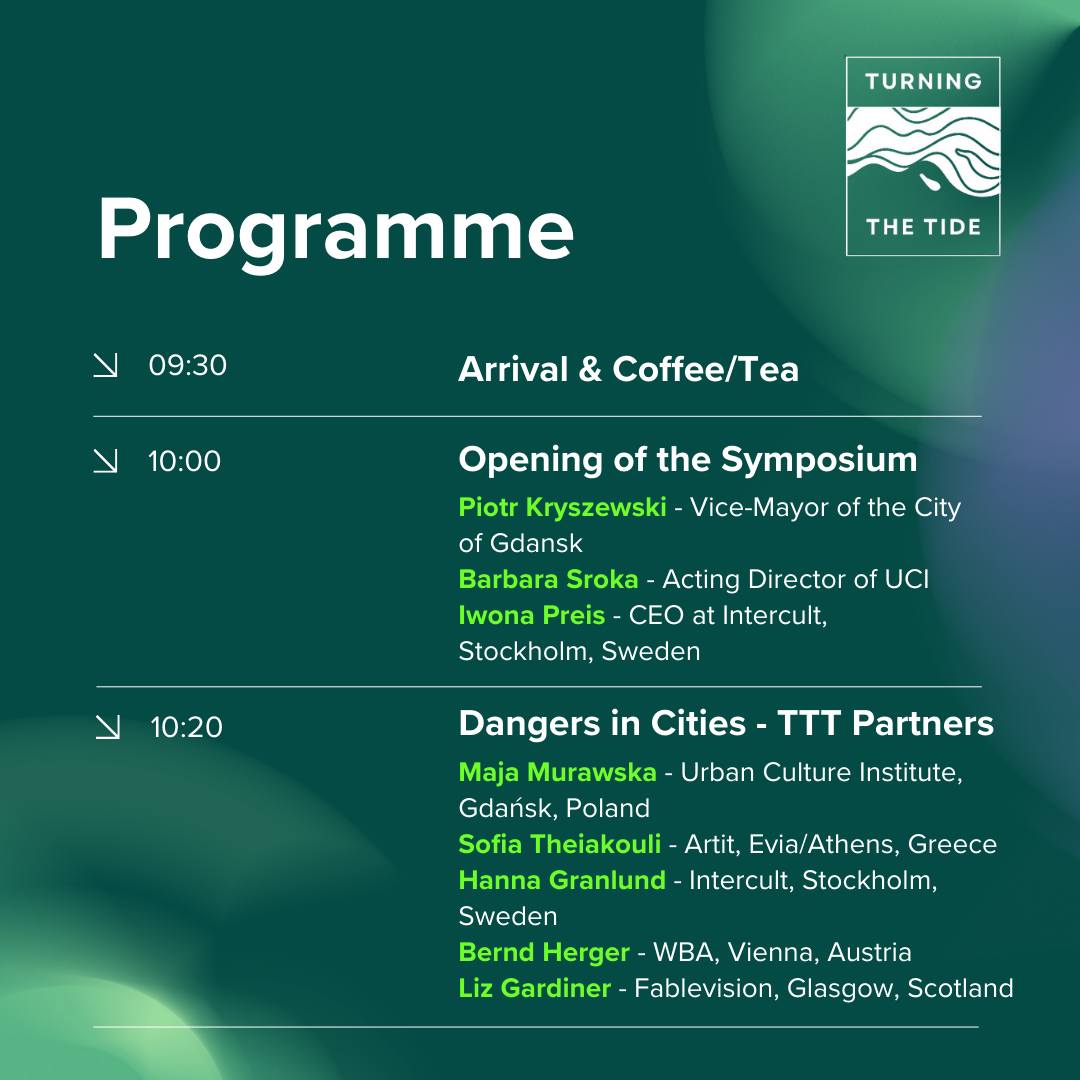
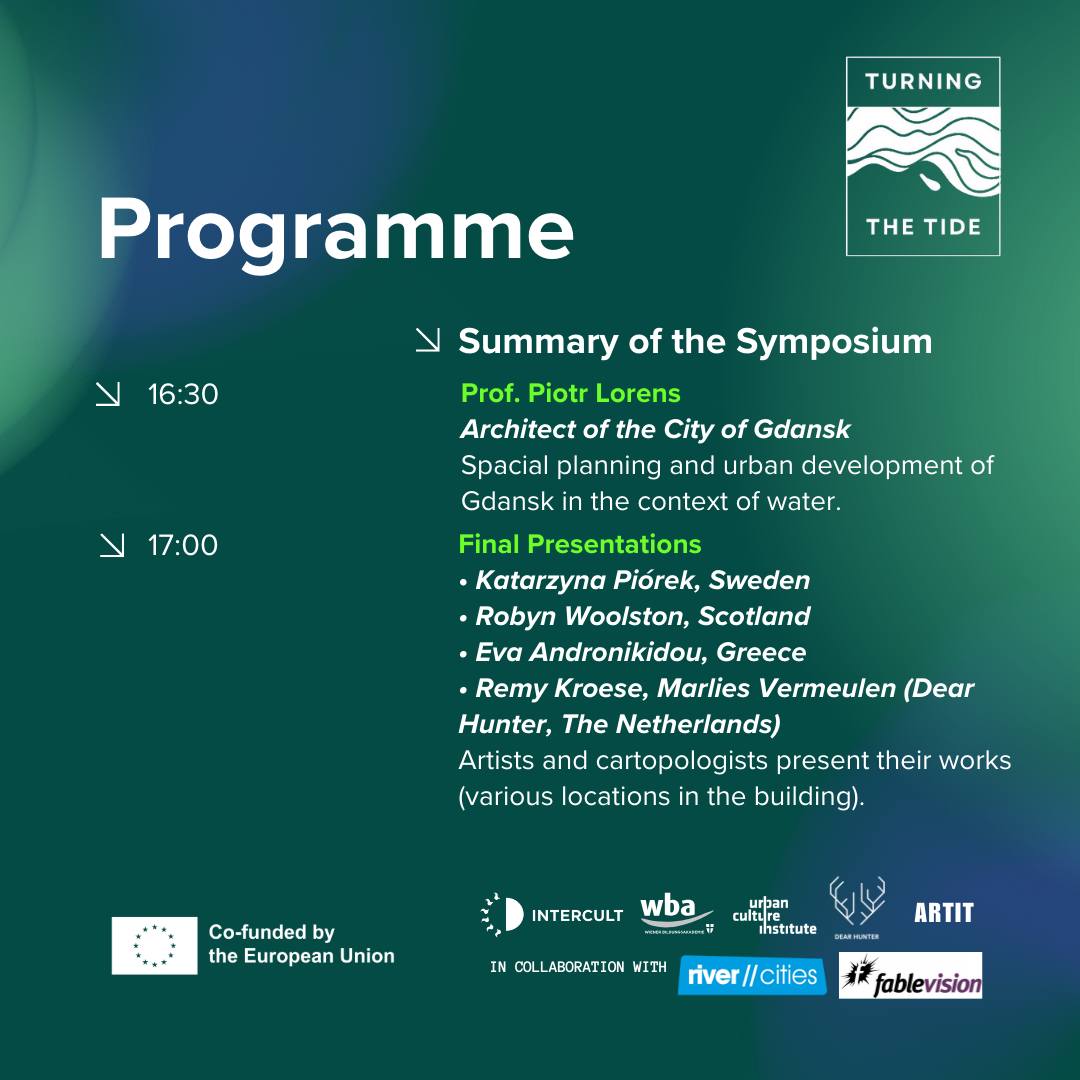
Summit Up
On 25th April, Turning the Tide’s six partners – Fablevision, Scotland – Intercult, Sweden – Instyut Kultury Miejskiej, Poland – Wiener Bildungs Akademie, Austria – Artit, Greece and Dear Hunter, Netherlands) – come together for the Climate and Culture Summit at Glasgow’s Centre for Contemporary Arts (CCA).
For further details of the event, programme and guest speakers, the click here!
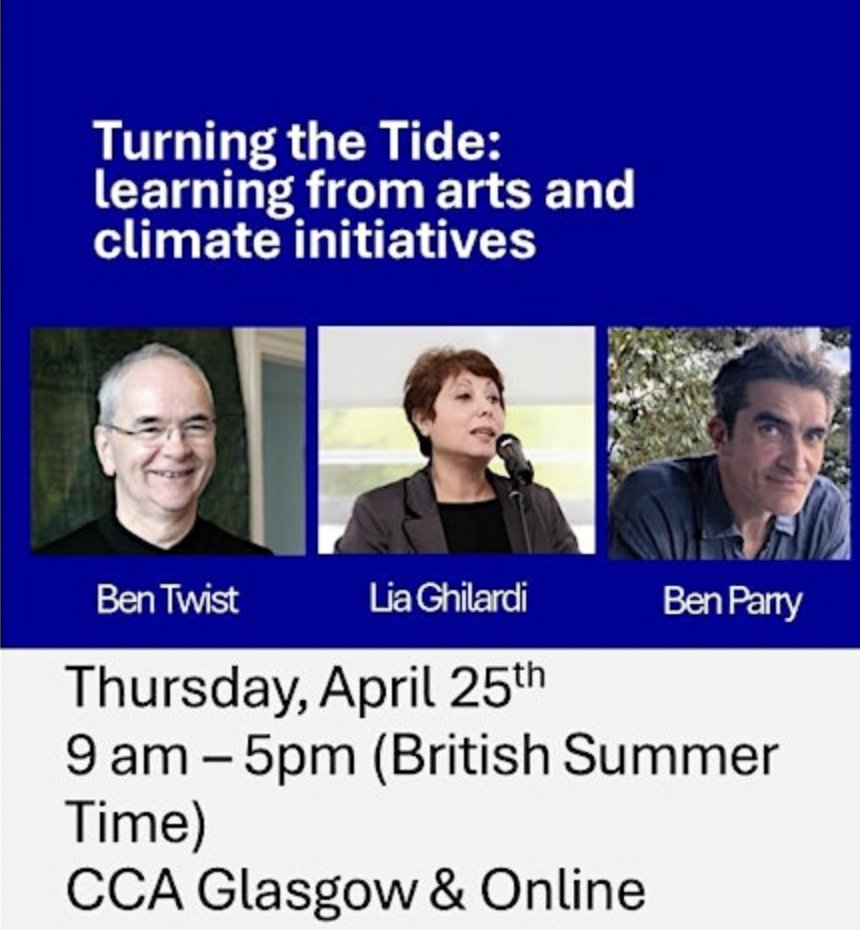
Exploring Social Engaged Practice
As we all grappled with the ‘how to’ impact the narratives and realities of global climate change, this webinar explored the potential of interventionist artists employing socially engaged practices to empower local communities and amplify hitherto unheard voices. With questions like: “What exactly is socially-engaged practice or social practice?; What does art/culture have to offer when science can’t fix climate change?; and “Which communities/whose communities are Turning the Tide on climate change?” Drs. Beall and Gardiner (Fablevision), experienced practitioners, address questions which practitioners, policymakers, planners, students and the public are grappling with in respect of finding new, innovative solutions to the problems of the climate change.
These questions form the basis of a large-scale, five-city co-operative co-Creative Europe co-funded project called Turning the Tide (TTT) – involving members of the River Cities network (www.river//cities.net) – which aims to foster ideas and discussion around artists and socially engaged practices within local communities on waterfronts threatened by climate change.
Thumbnail image Dr. t s Beall: Chris Lesley
Cultural Planning – Growing Communities
The seminar delved into the intriguing intersection of cultural mapping and cultural planning, revealing hidden resources in various locations for incorporation into future plans. Featuring Lia Ghilardi, a distinguished European cultural planner, as the esteemed speaker, the session included a thought-provoking presentation followed by a moderated Q&A session by Liz Gardiner. Tailored for artists, socially engaged practitioners, cultural planners, urban planners, policy makers, community leaders, and stakeholders, the event was part of the Turning the Tide (TTT) project. This five-city cooperation initiative, within the River Cities network (www.river//cities.net), aimed to stimulate discussions on artists and socially engaged practices in communities facing climate change threats along waterfronts.
Methodologies of Cultural Mapping
Welcome to the groundbreaking third webinar of the Turning the Tide Project, where innovation meets urban resilience. In this session, we delve into the transformative power of mapping practices and their pivotal role in shaping our cities’ future amidst the challenges of climate change. Our esteemed panel features trailblazers in the field: Dr. Mitch Miller, renowned artist, researcher, and educator, known for pioneering the Dialectogram Illustrative style; Marlies Vermeulen, a visionary PhD candidate and cartopologist, spearheading the field of cartopology; and Remy Kroese, a dynamic researcher, educator, and project manager, driving forward the mission of Dear Hunter & the Institute of Cartopology.
Guiding our dialogue is Dr. Liz Gardiner, a luminary in cultural planning and the executive director of Fablevision.
Turning the Tide Tackles Climate Change
Members of the River Cities Network worked together during the exciting and hugely successful Memory of Water project. Some of the members of that collaboration have continued working together – looking at shared challenges on waterfronts and the possibilities and limitations of artists’ interventions to support future building narratives. In spite of Brexit, the partners have been determined to keep Glasgow and Fablevision in the frame and we are delighted to announce that the follow-on project, called Turning the Tide (TTT) has been successful in achieving a large cooperation project grant for 2024-26. An international Climate & Culture Summit in Glasgow in April 2024 will ‘kick off’ the whole pan European project – a platform for artists and local citizens to impact ‘expert’ dialogue with politicians, developers and planners in Scotland and Europe. The delegation will visit Glasgow during the week of the 22 April 2024 – an opportunity to keep Scotland at the cutting edge of cultural innovation and we are determined to overcome the challenges posed by Brexit that mitigate against ongoing participation. Led by Intercult (Sweden) with members of the River Cities Network, TTT is a creative response to the threat of climate crisis on waterfront cities: inspiring trans-disciplinary dialogue through artistic co-creation, creative cartopological mapping and international cross-sectoral dialogue. With five partners (Intercult, Sweden – Instyut Kultury Miejskiej, Poland – Wiener Bildungs Akademie, Austria – Artit, Greece and Dear Hunter, Netherlands), TTT’s premise assumes climate change can be impacted through cultural planning led by artists and informed participation. Although inspired by Fablevision’s longitudinal practice over 10 years – 6 years supported by Creative Scotland and the City of Glasgow: Riverside Solidarity, 2017-19 and Memory of Water, 2019-2022 – Brexit means exclusion from Creative Europe. Scottish expertise in socially-engaged practice, however, qualifies Fablevision in a consultancy role.

